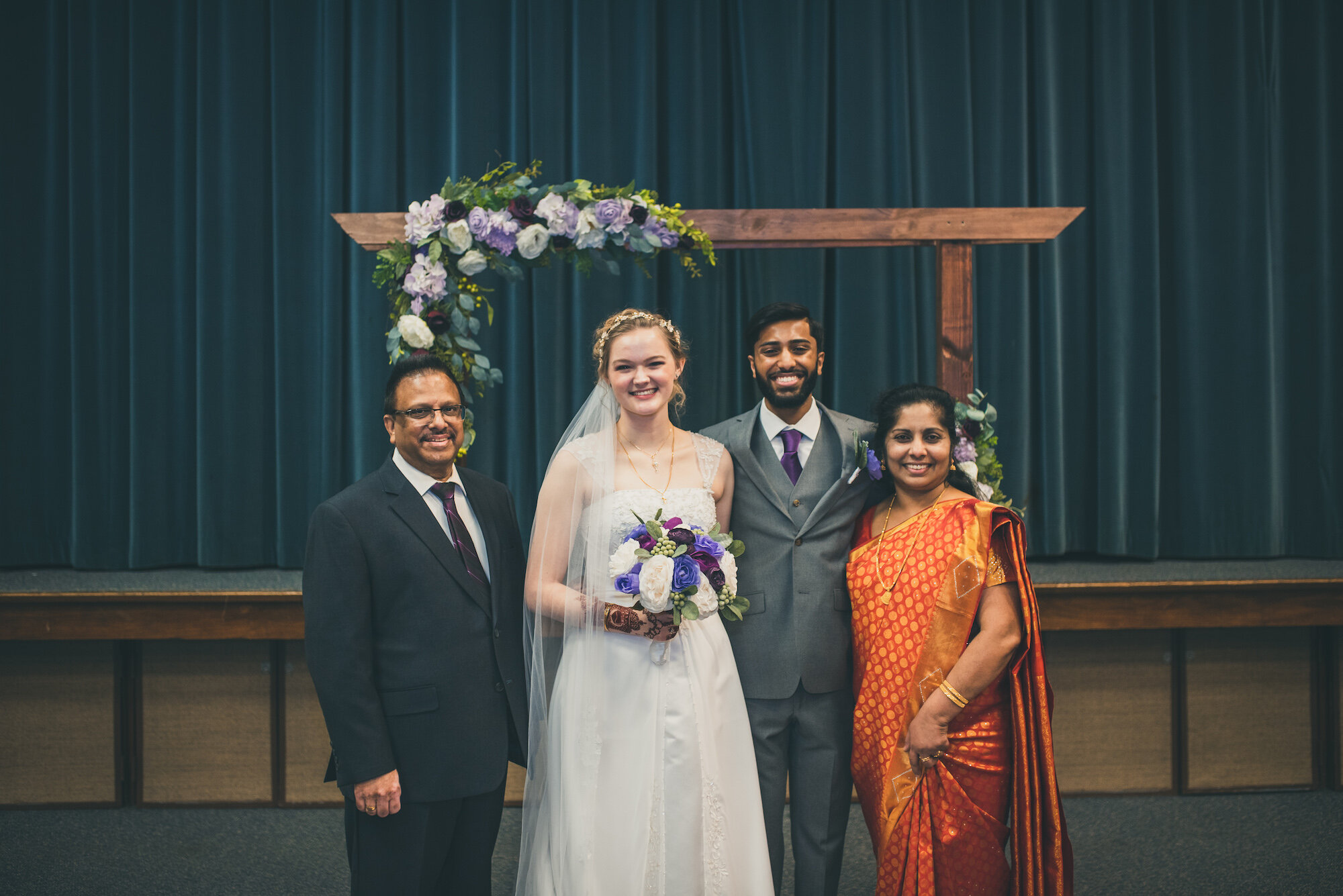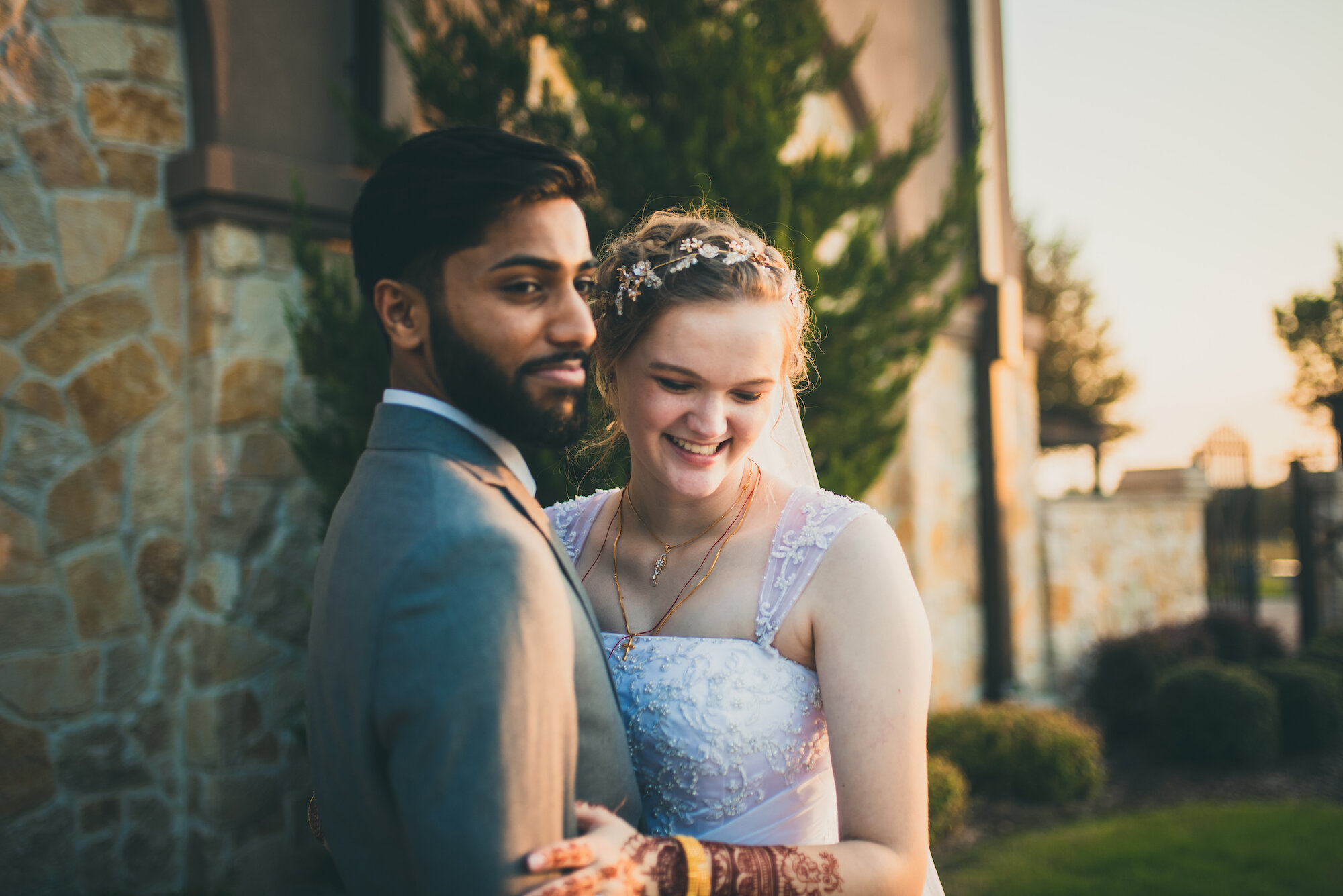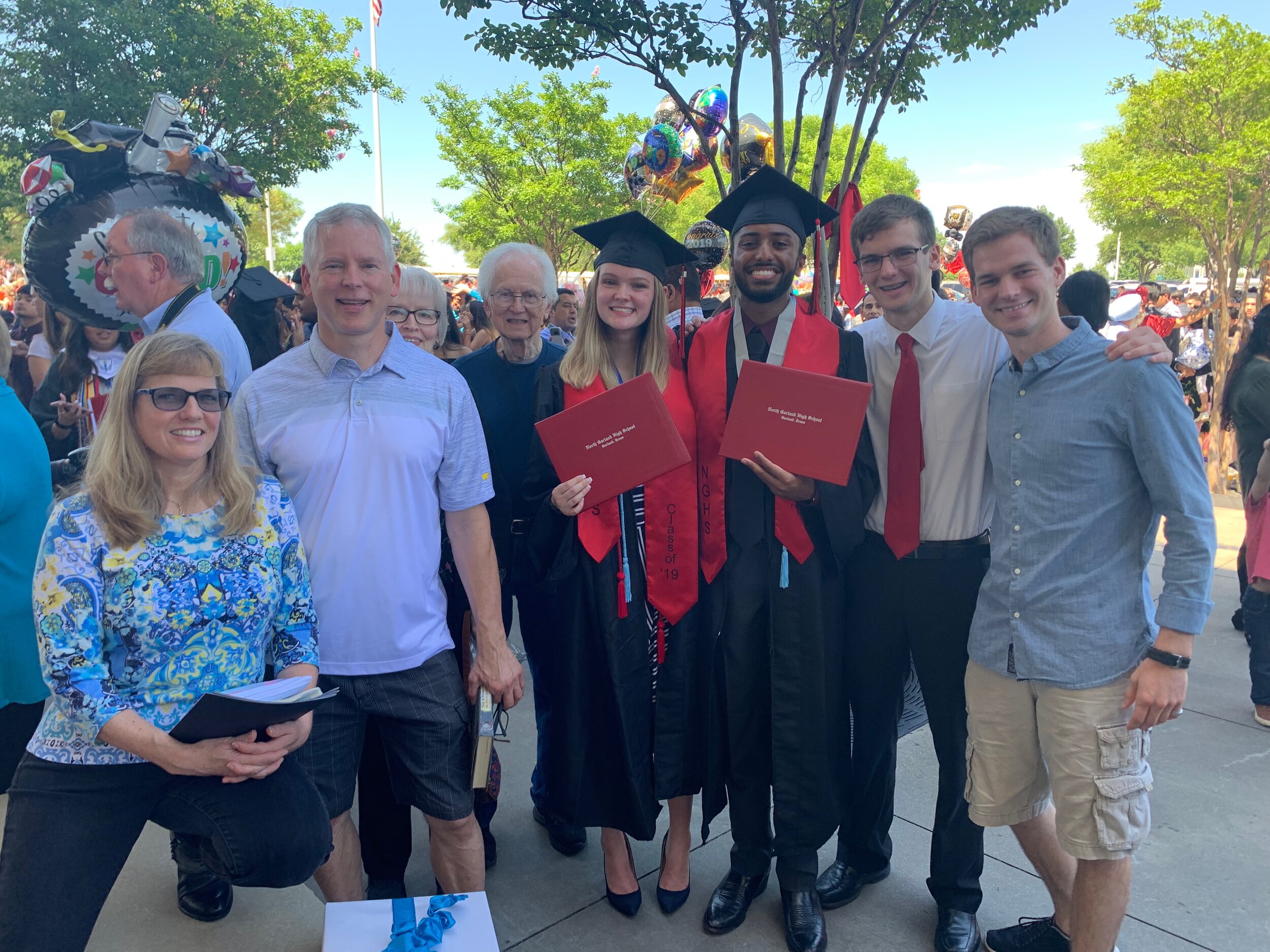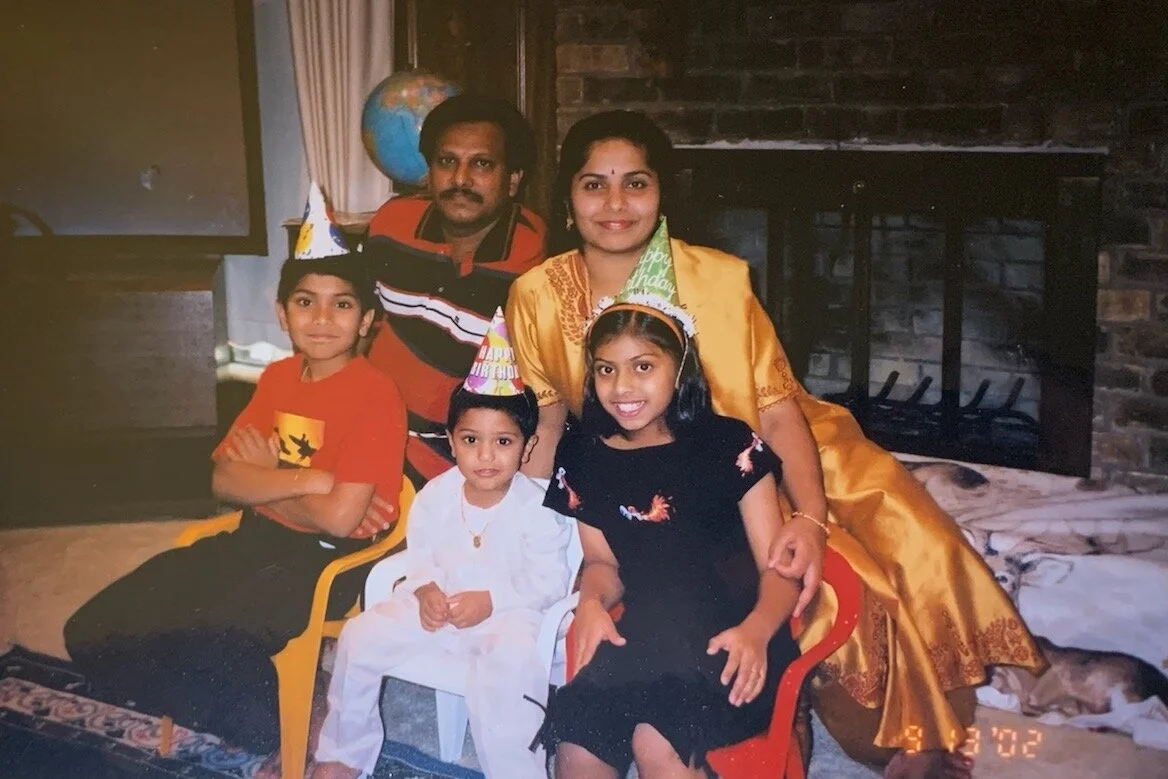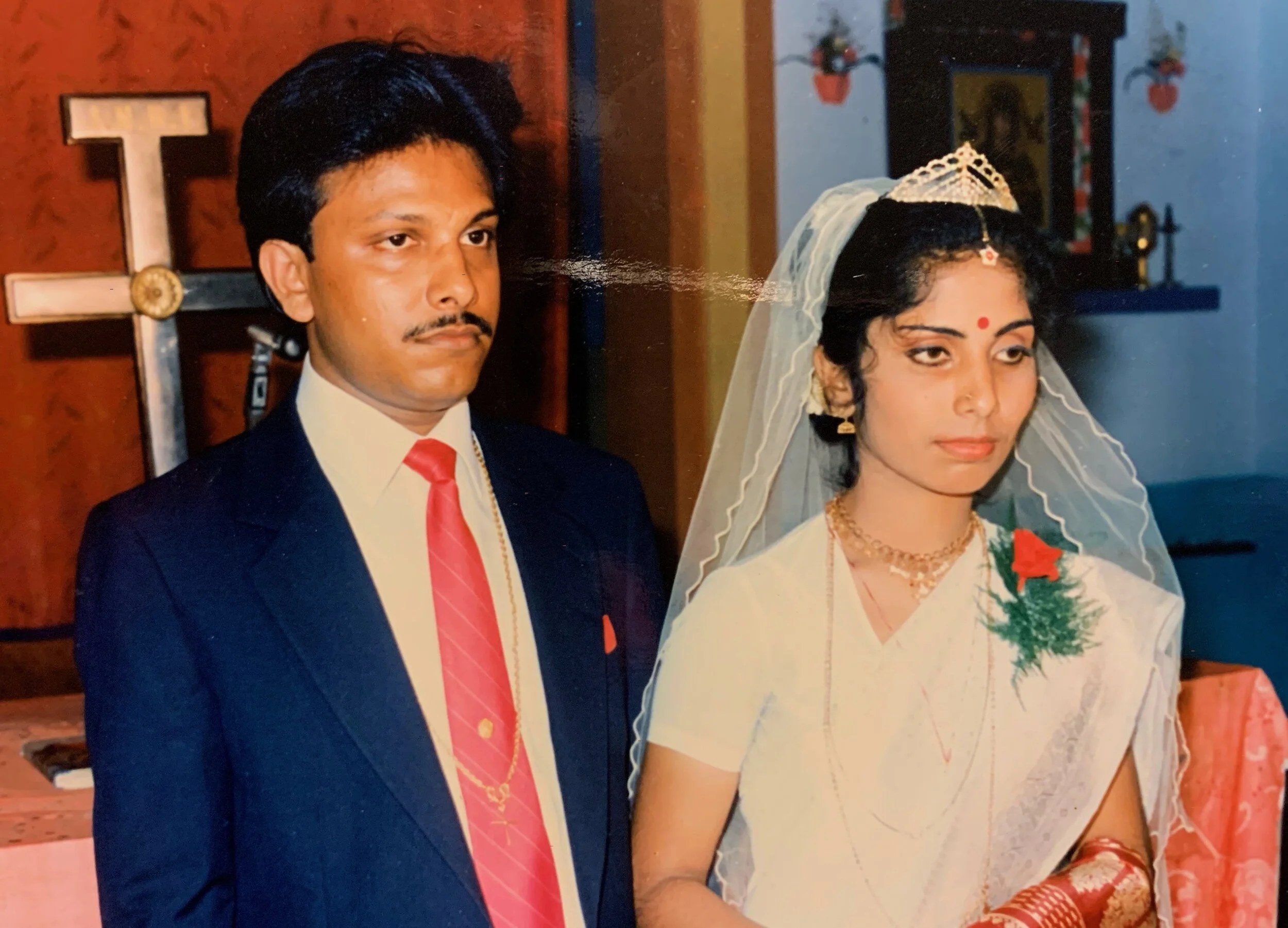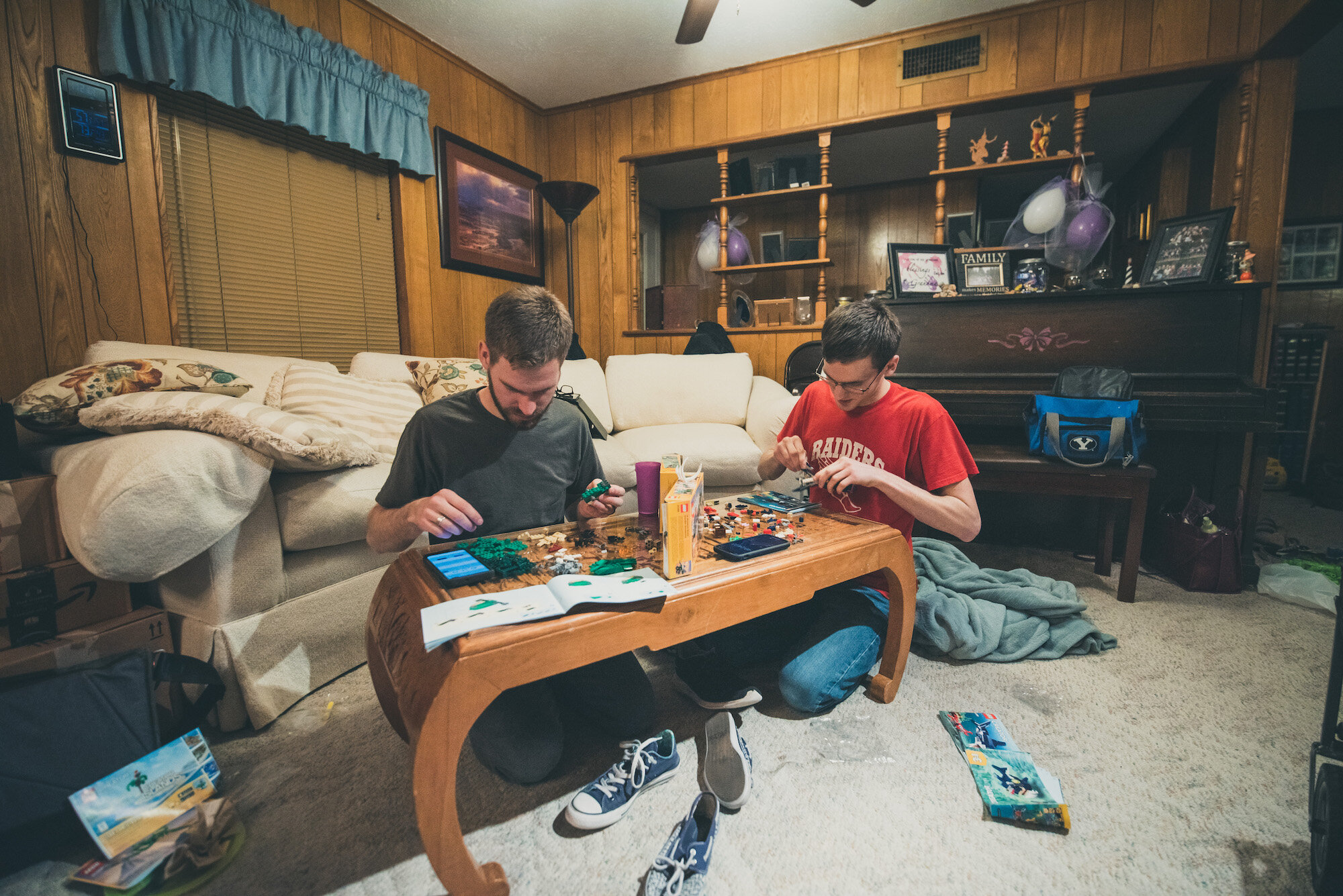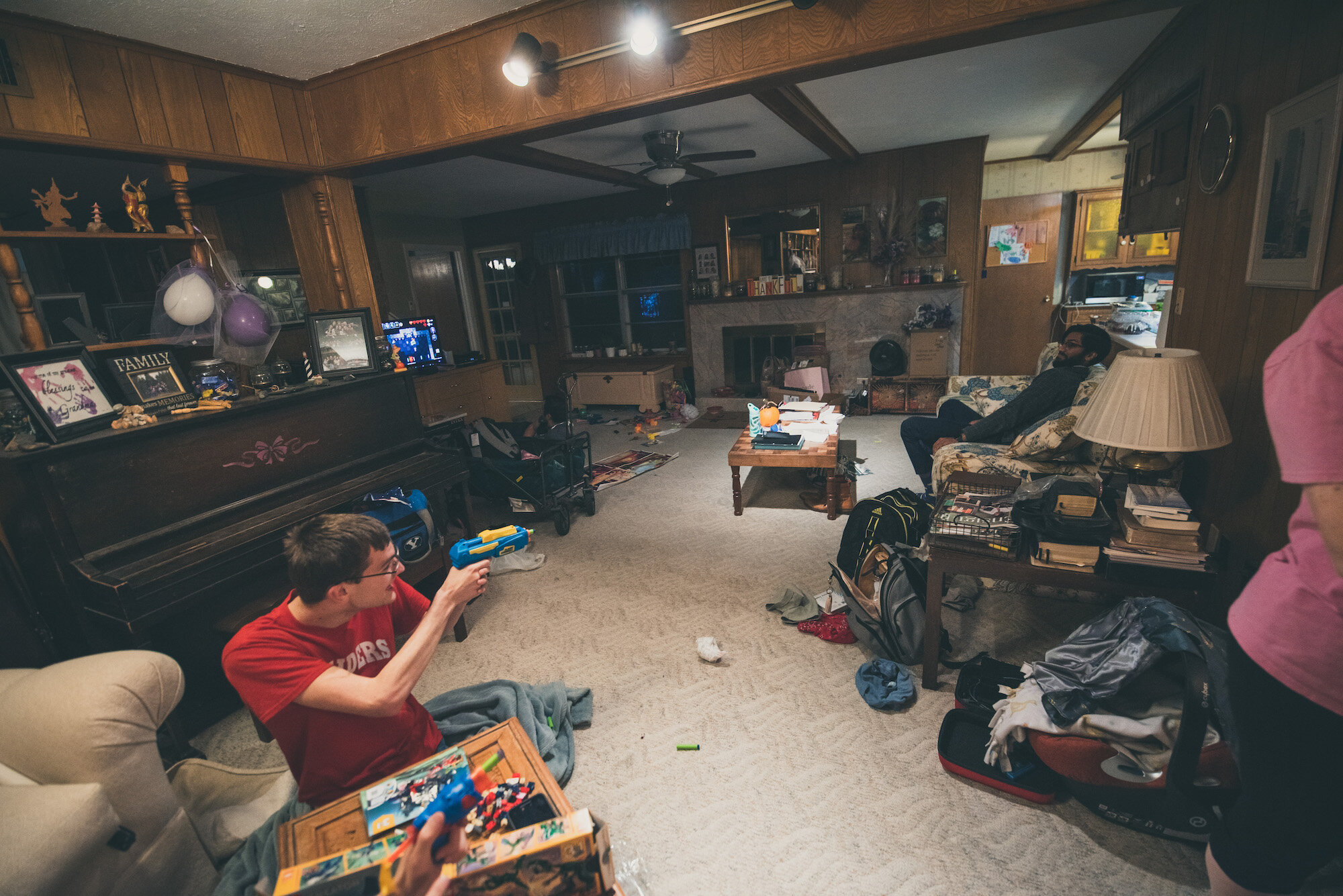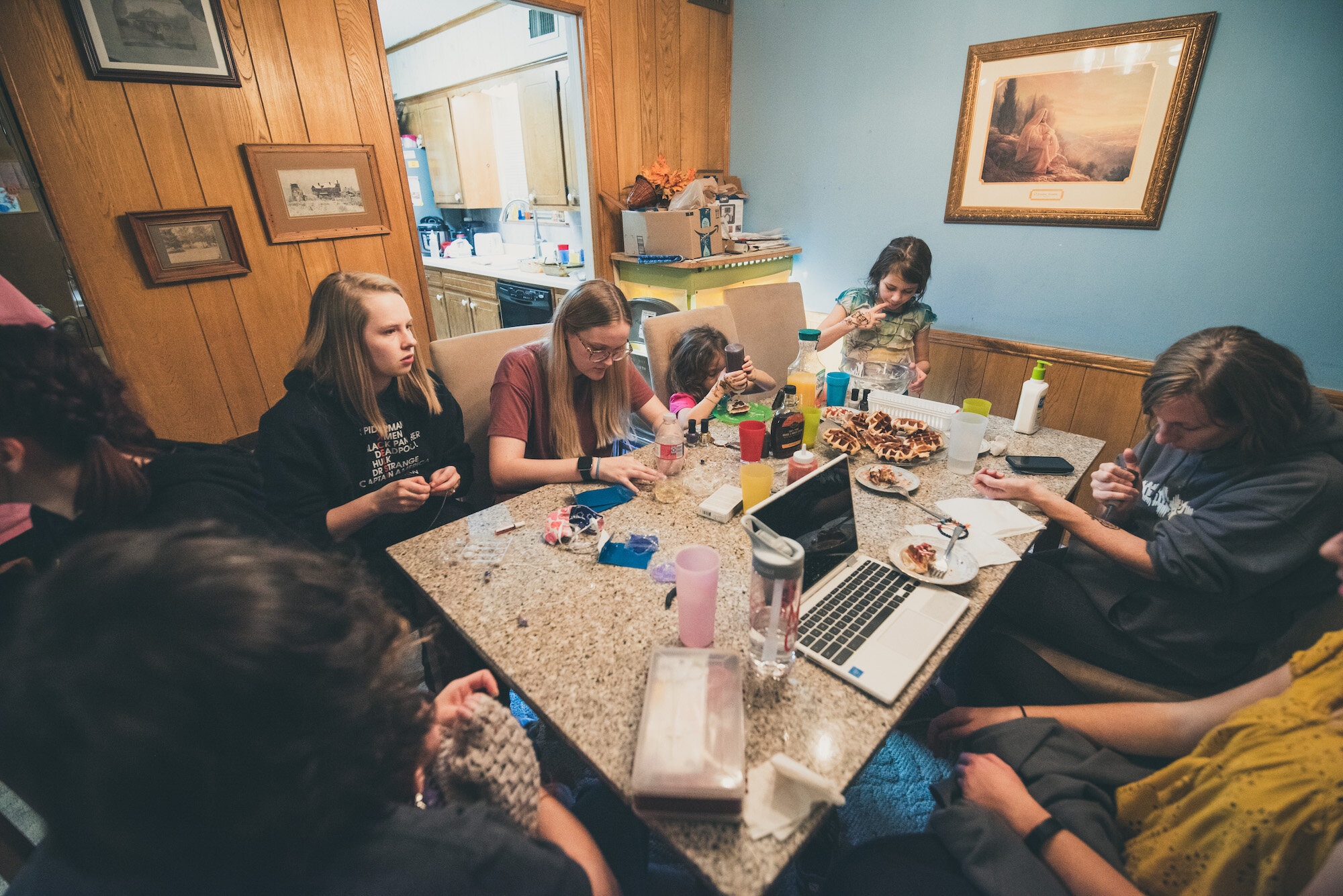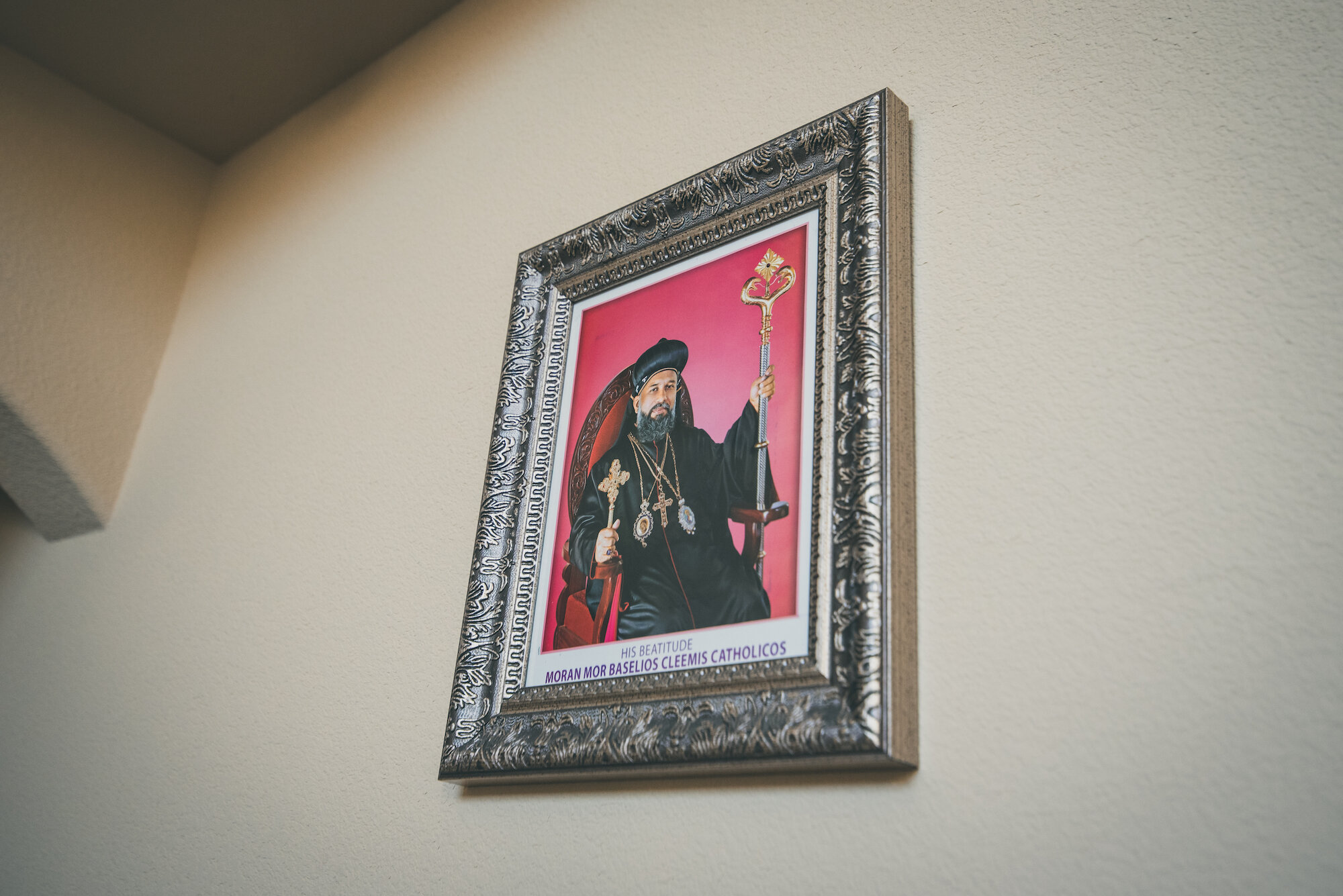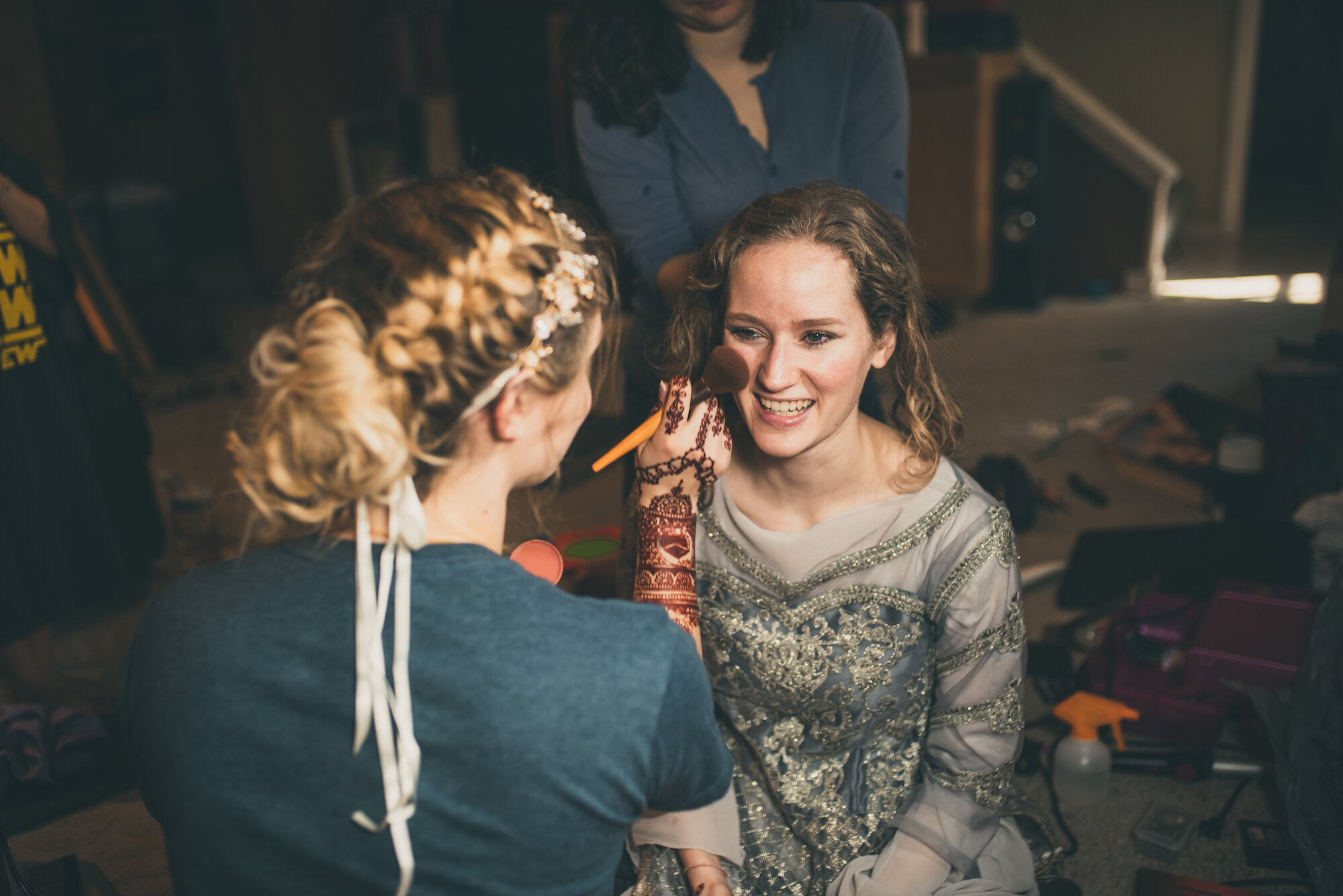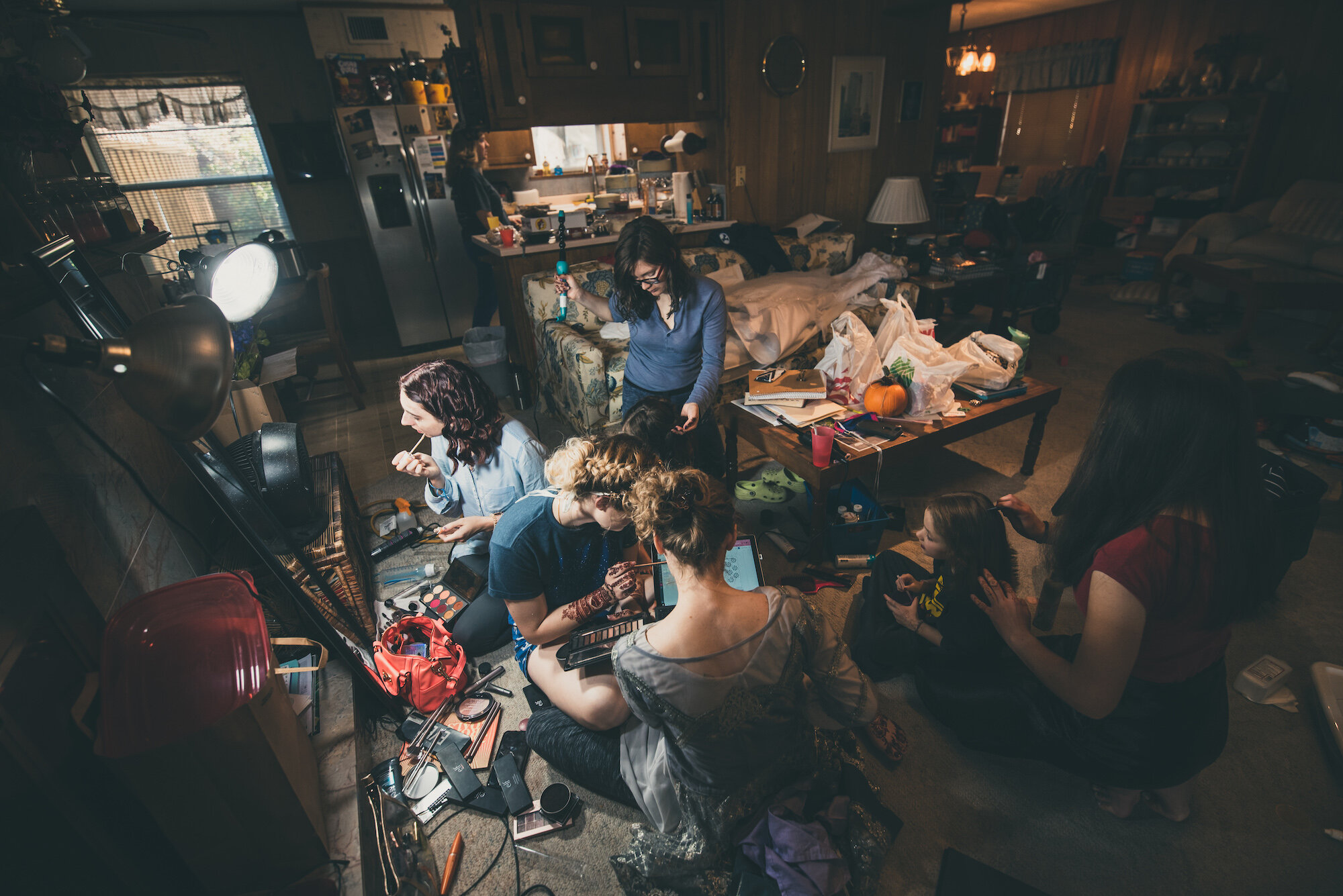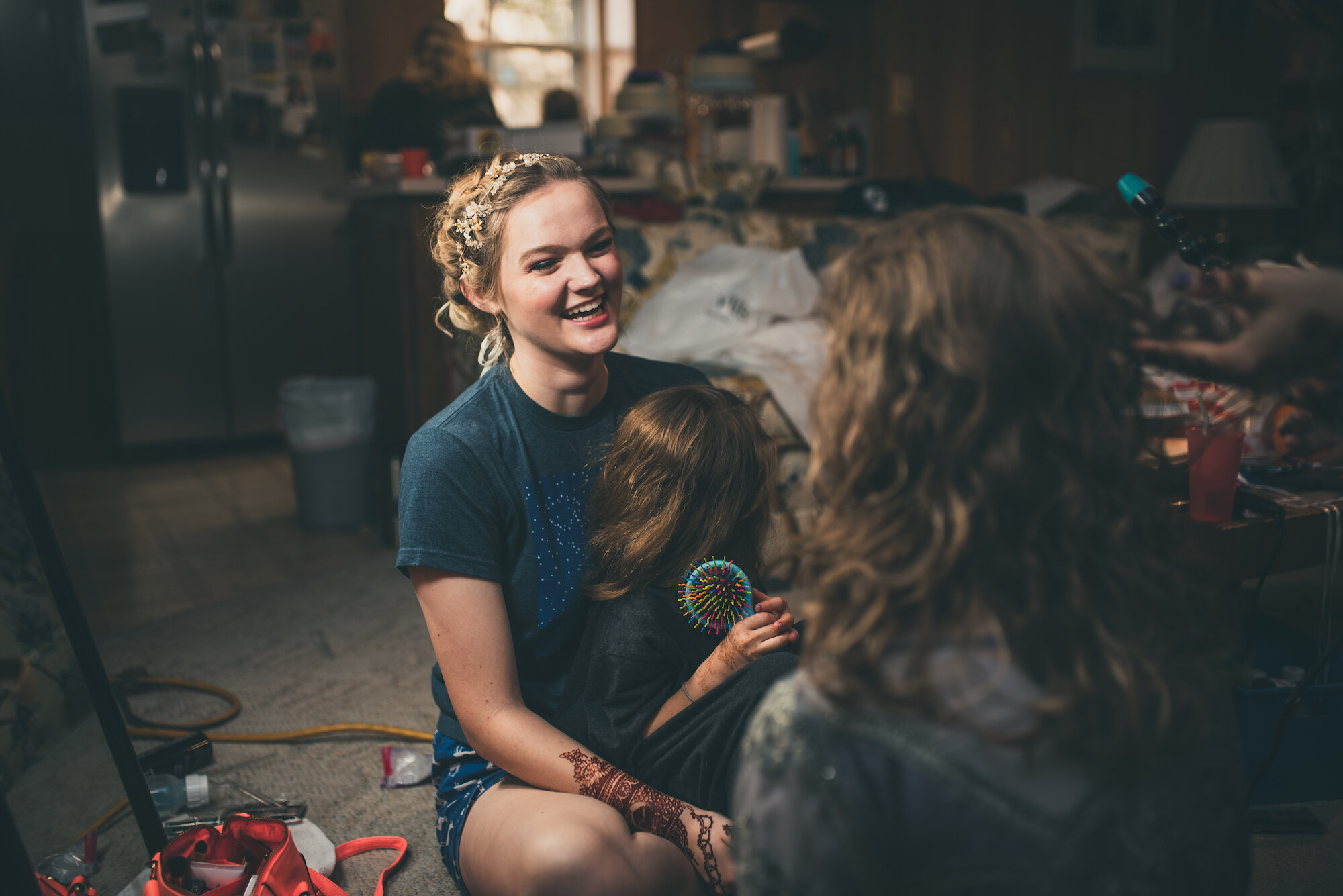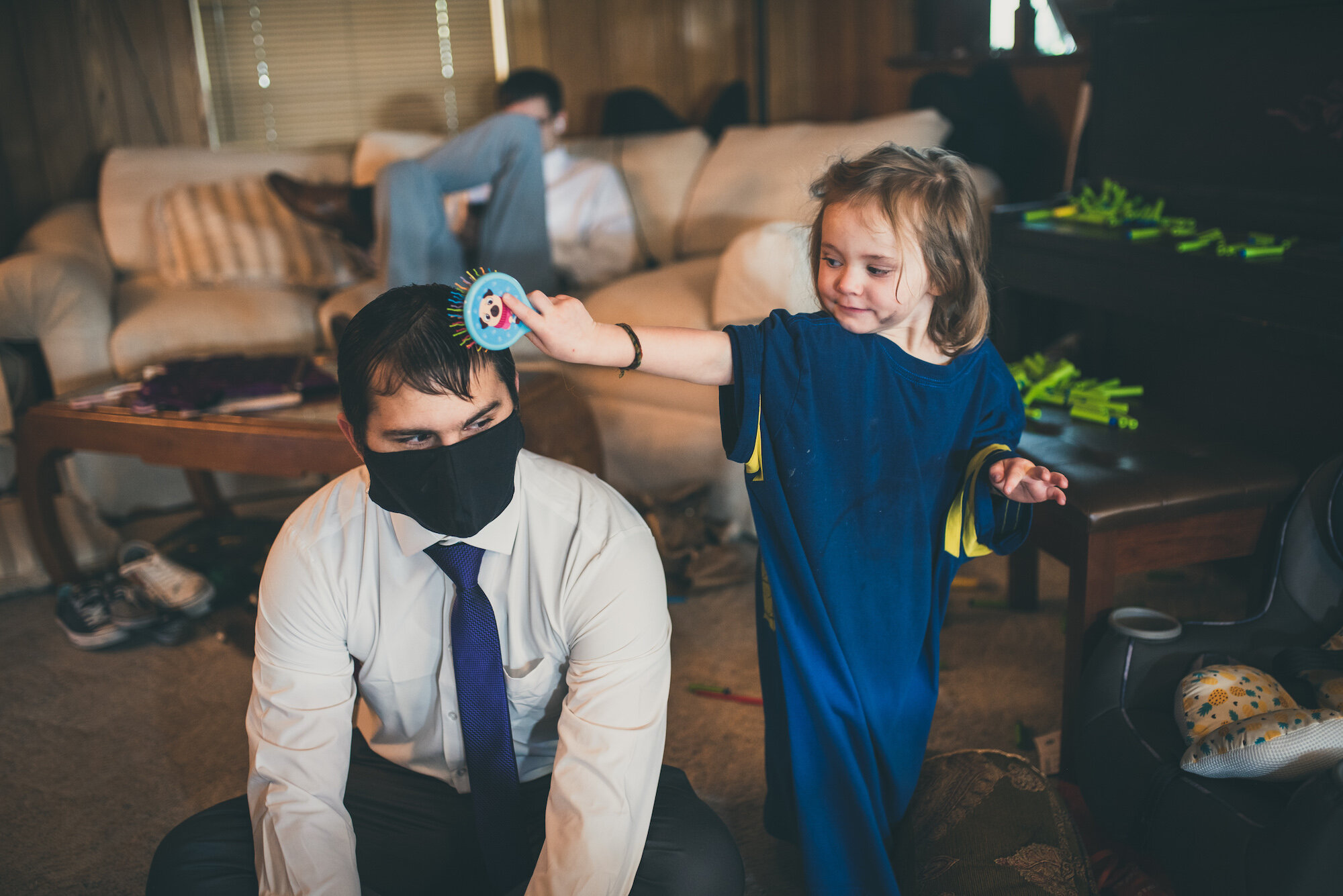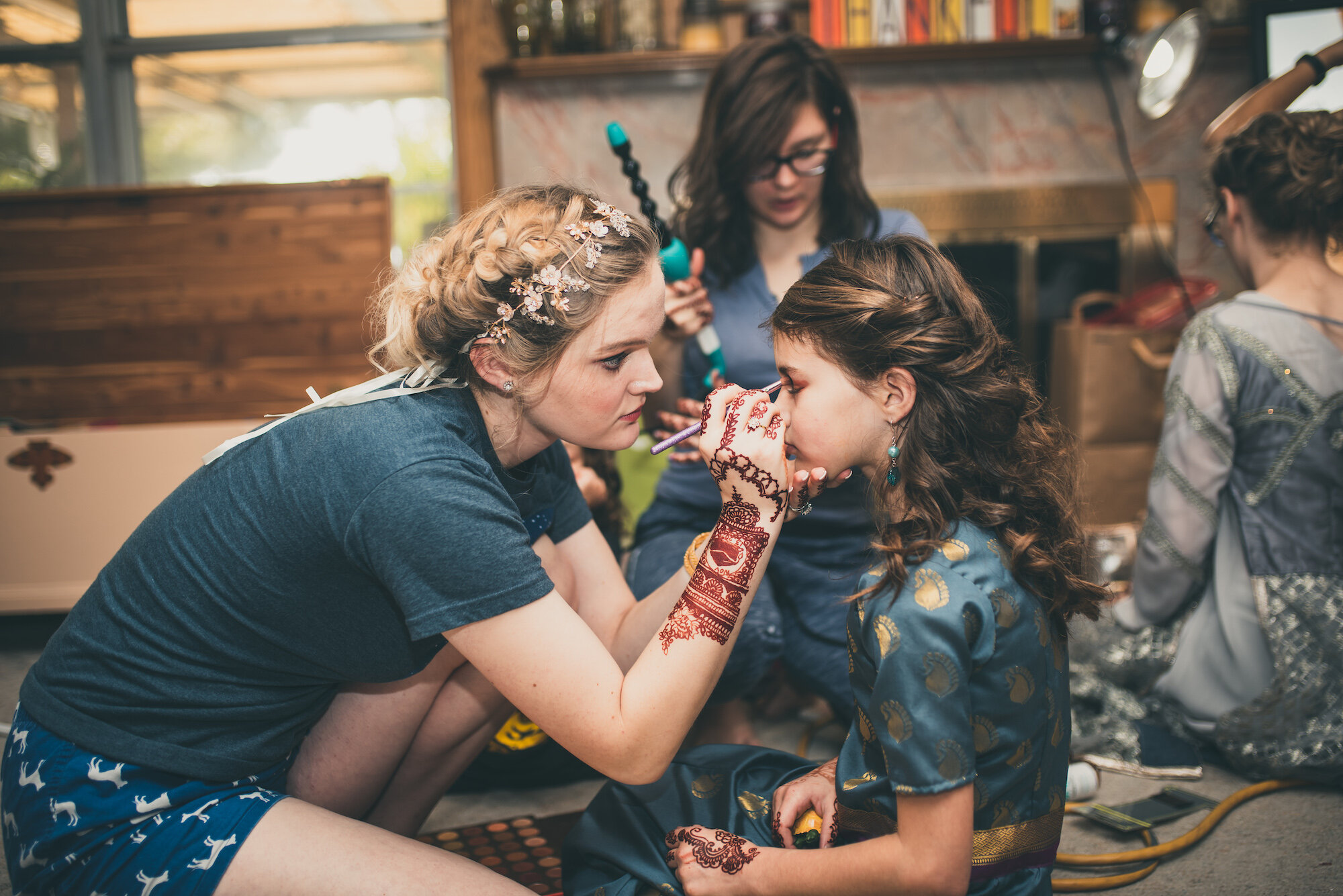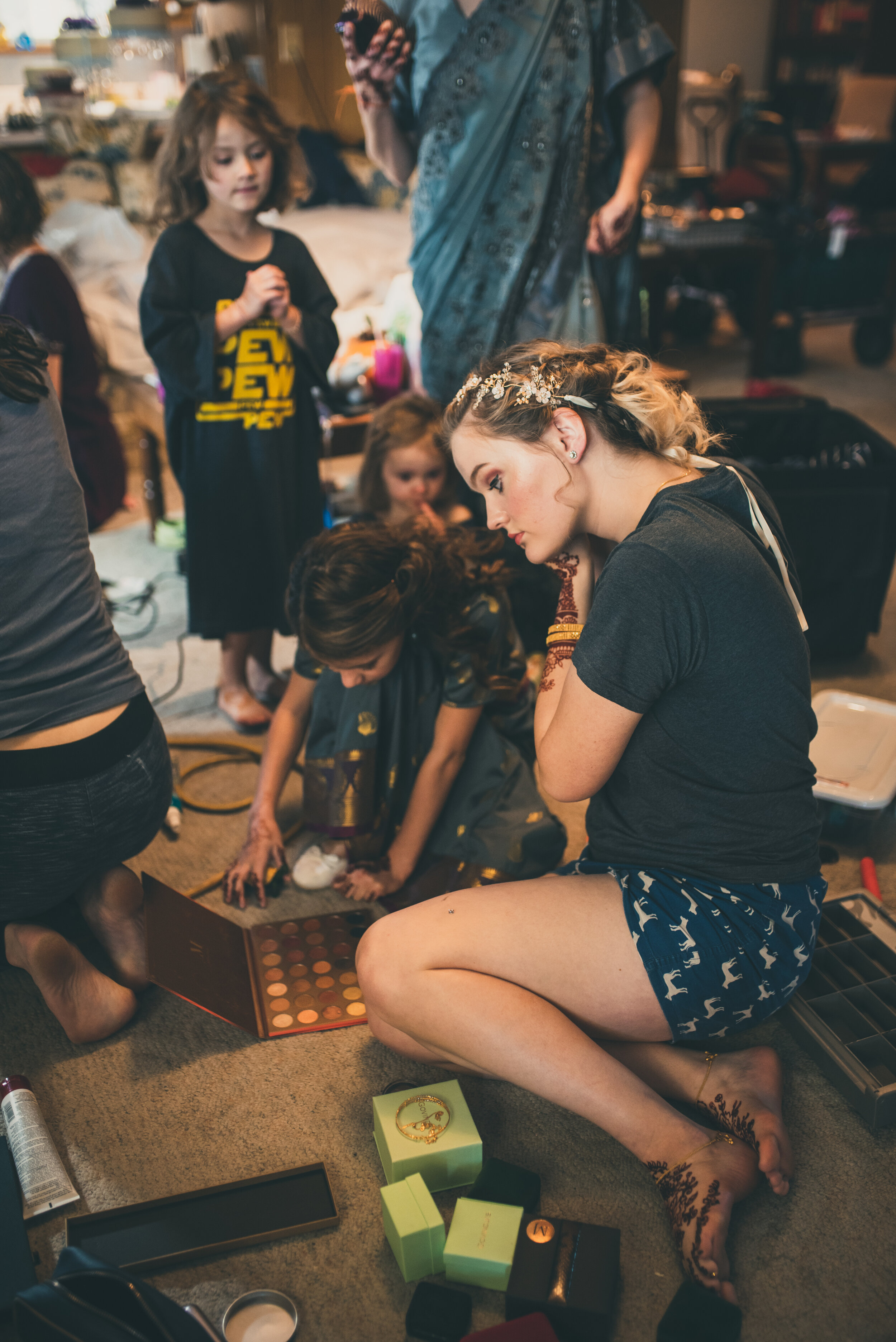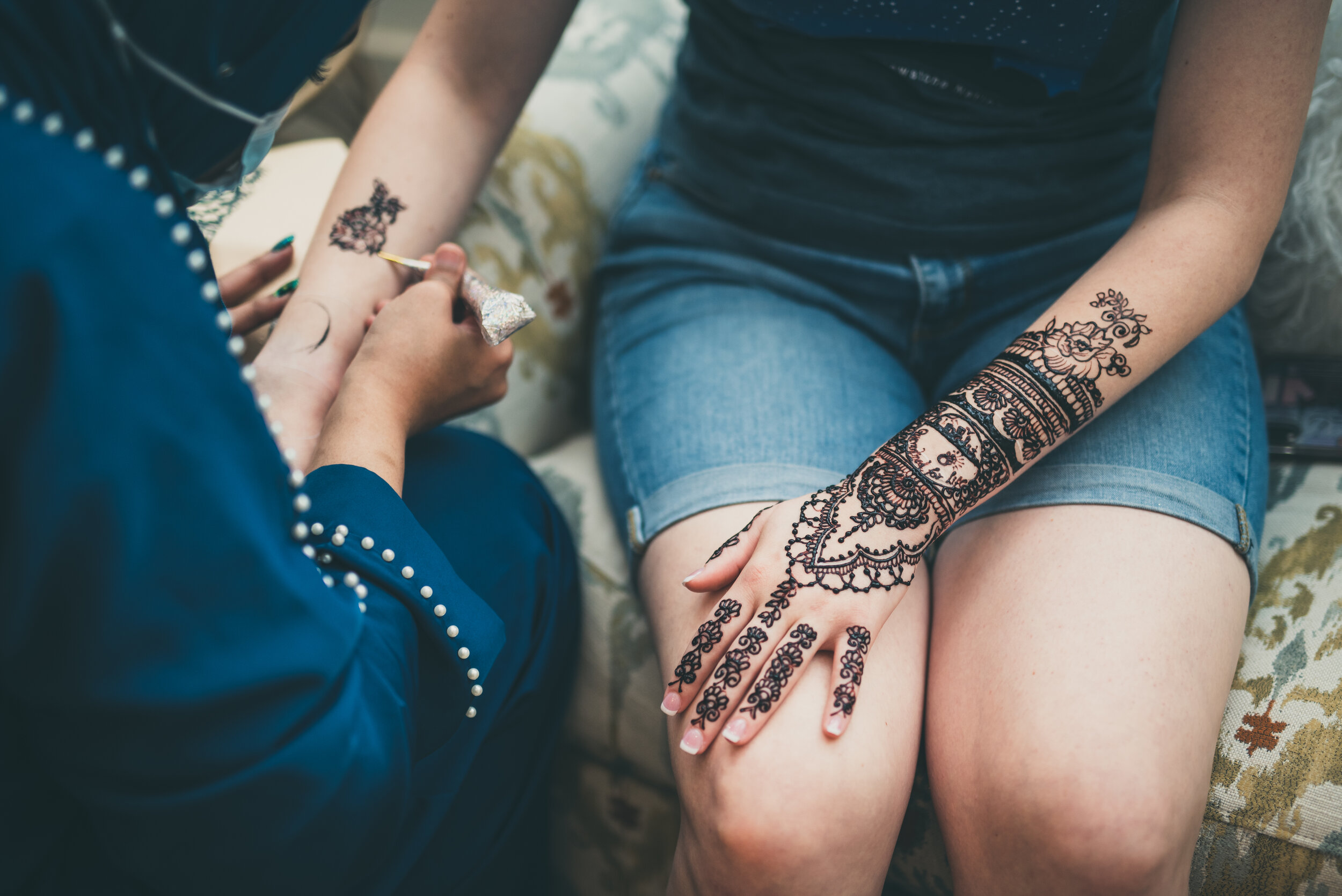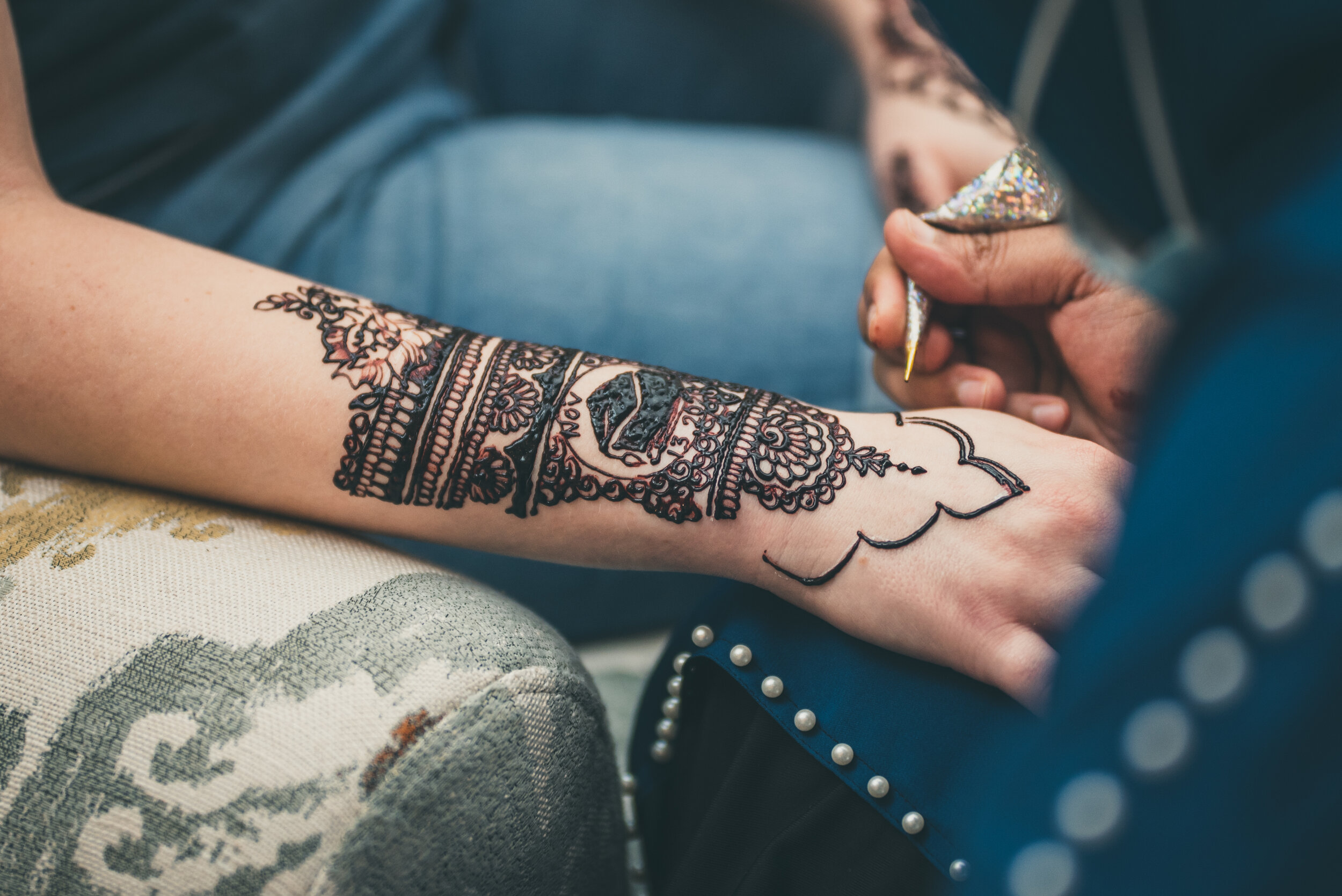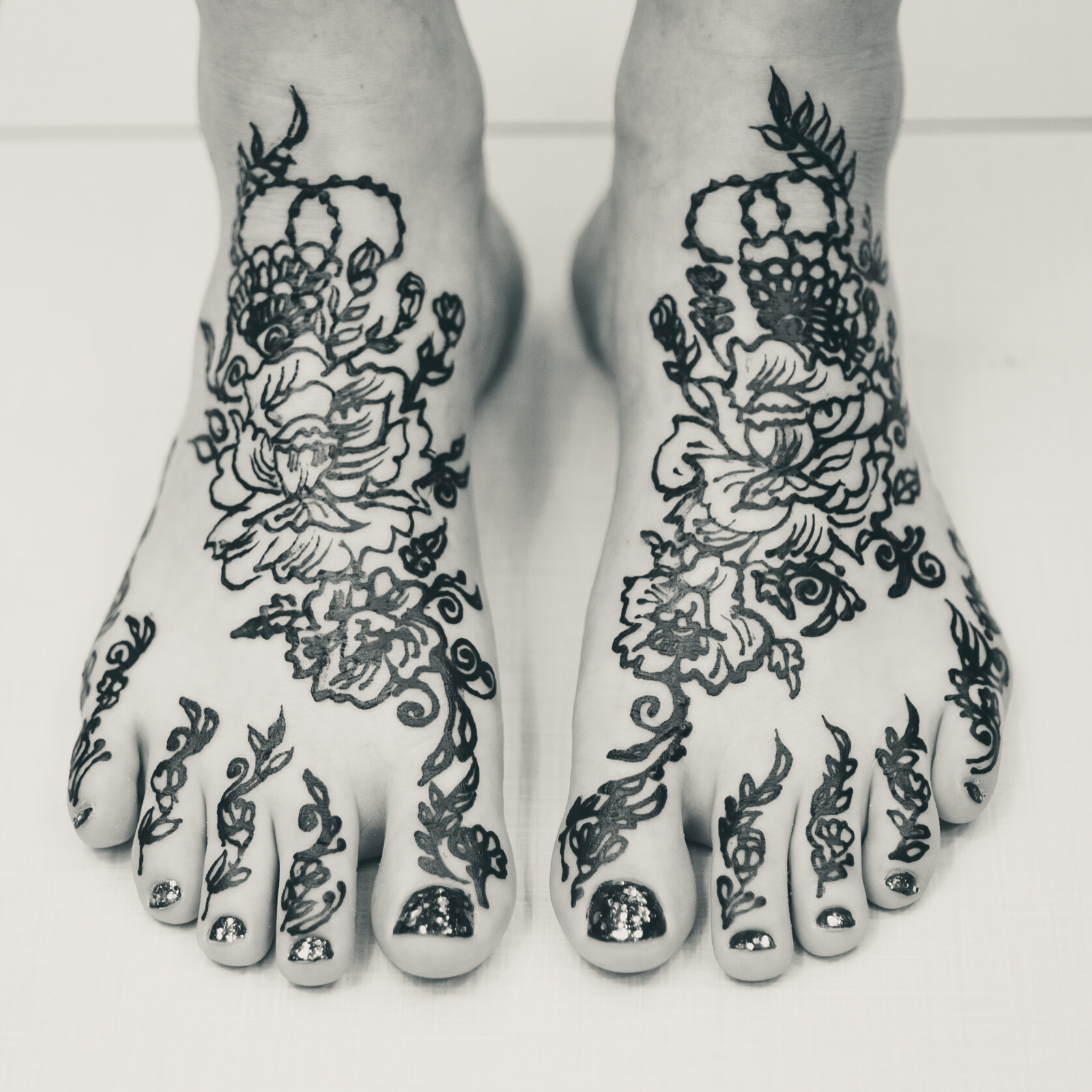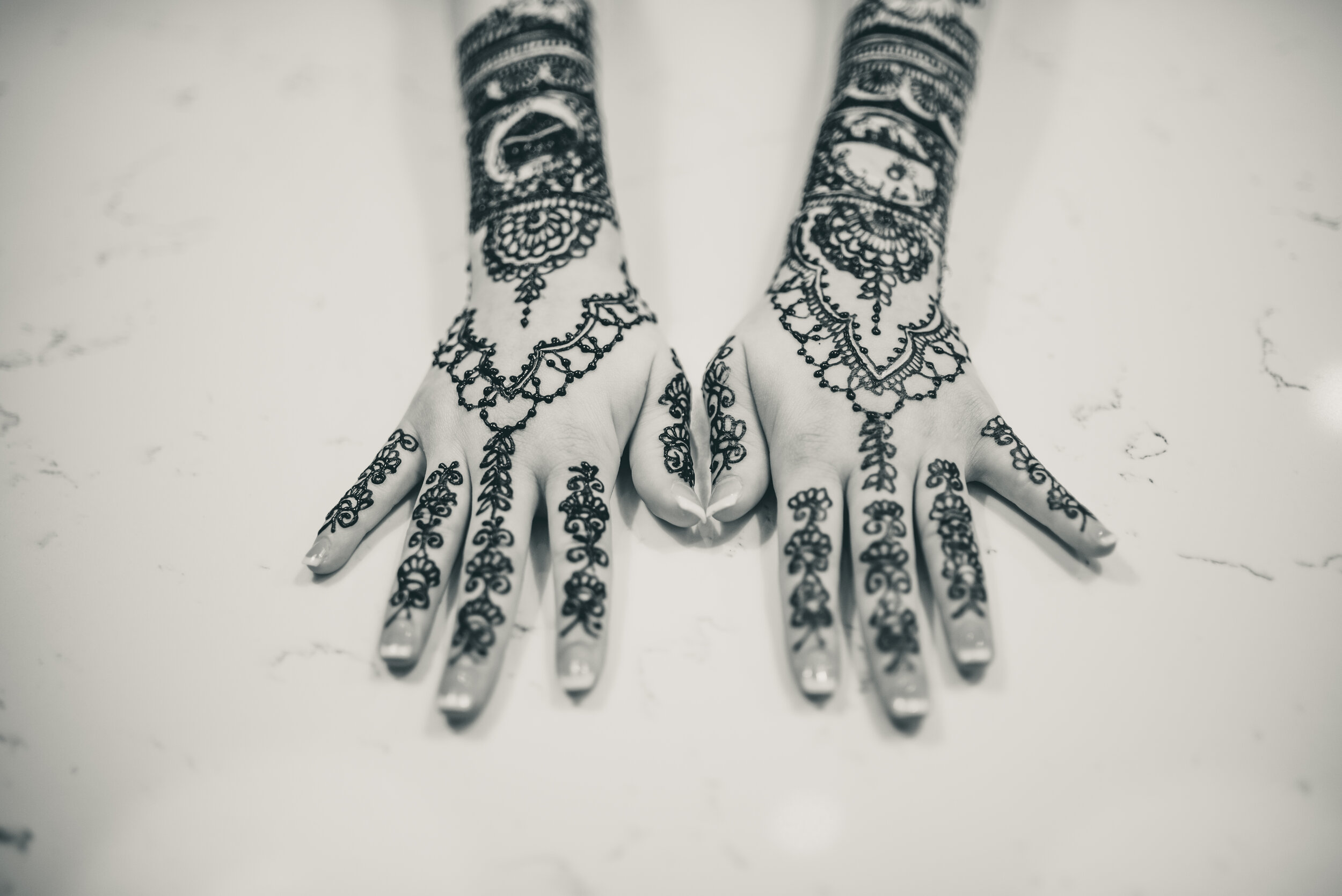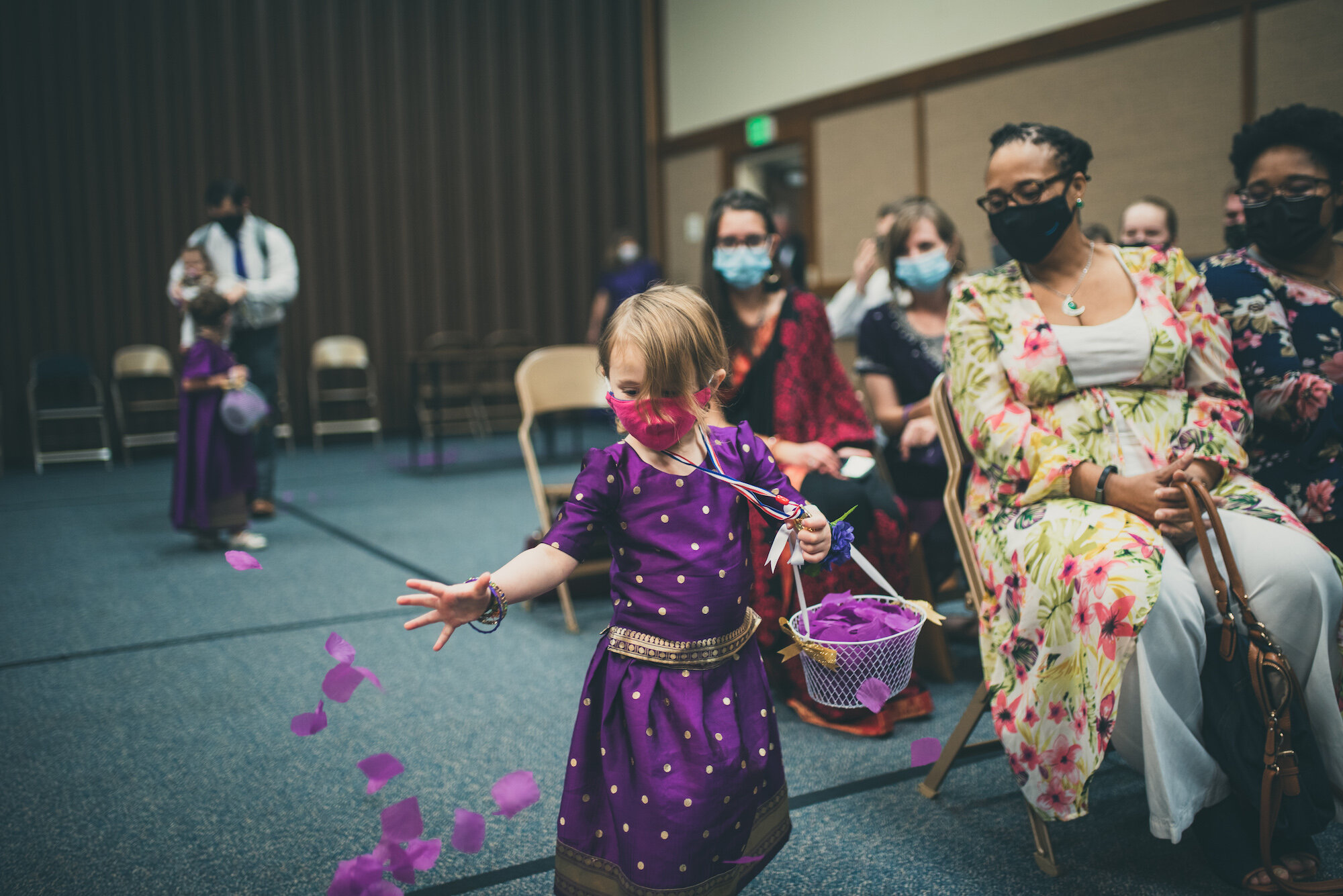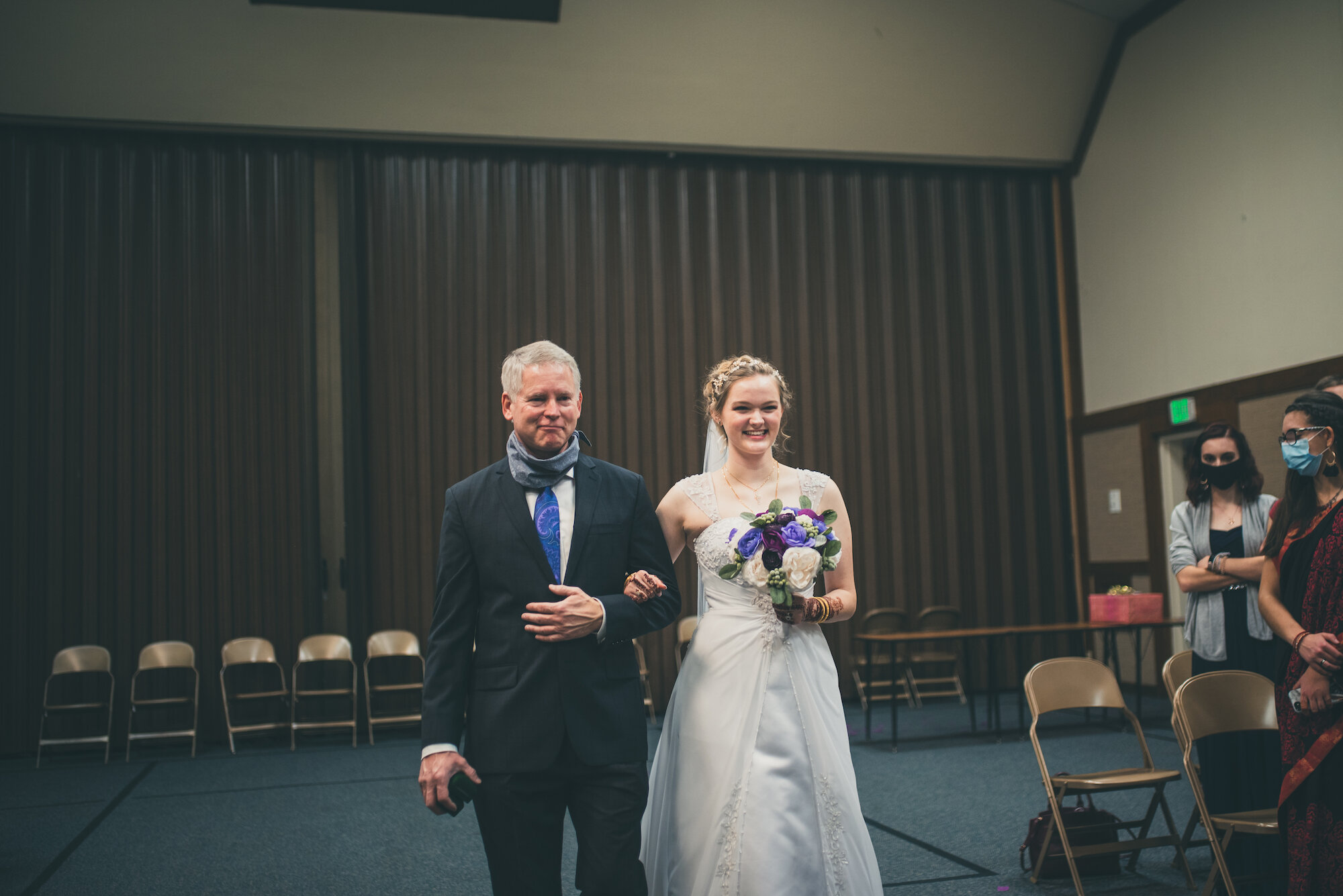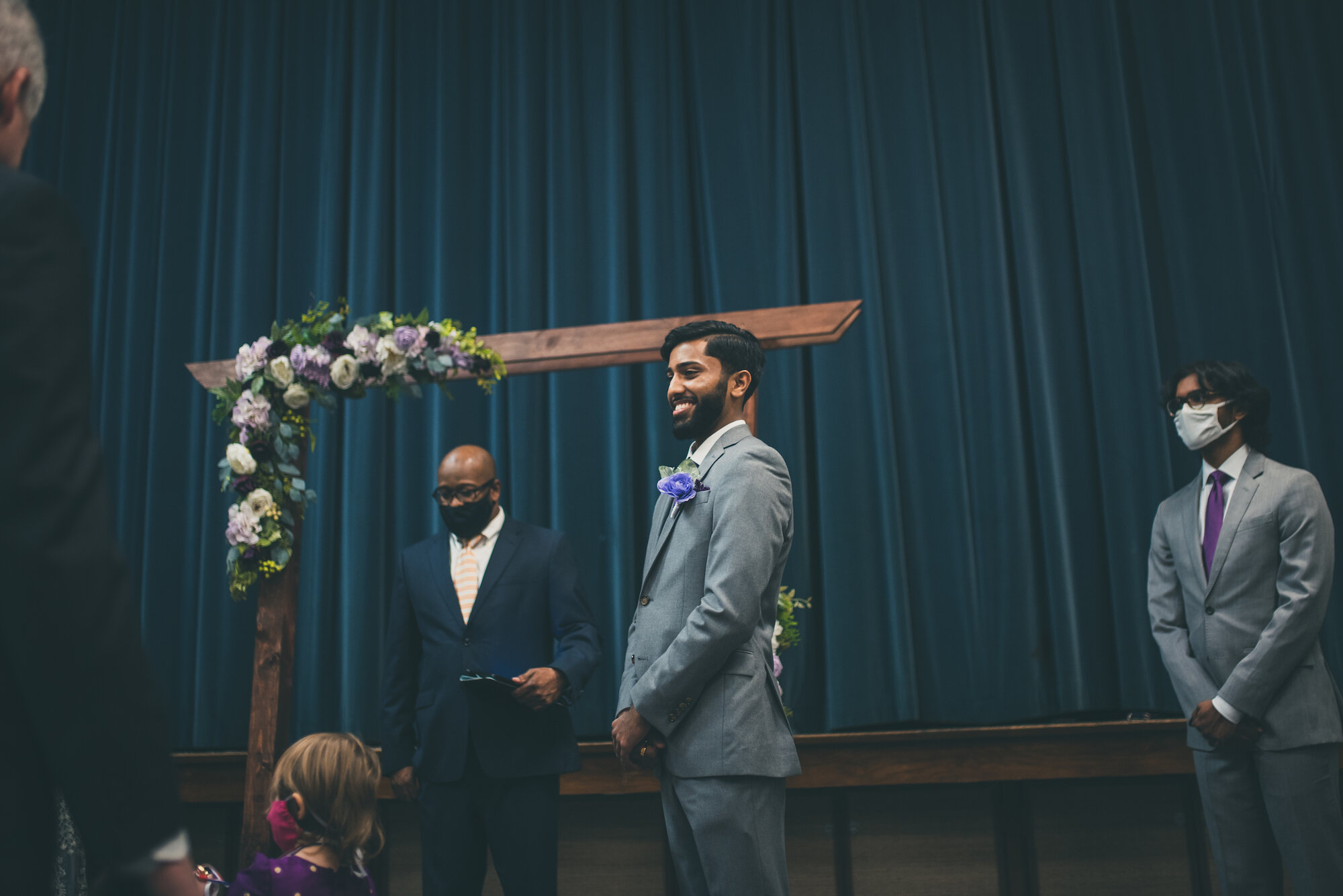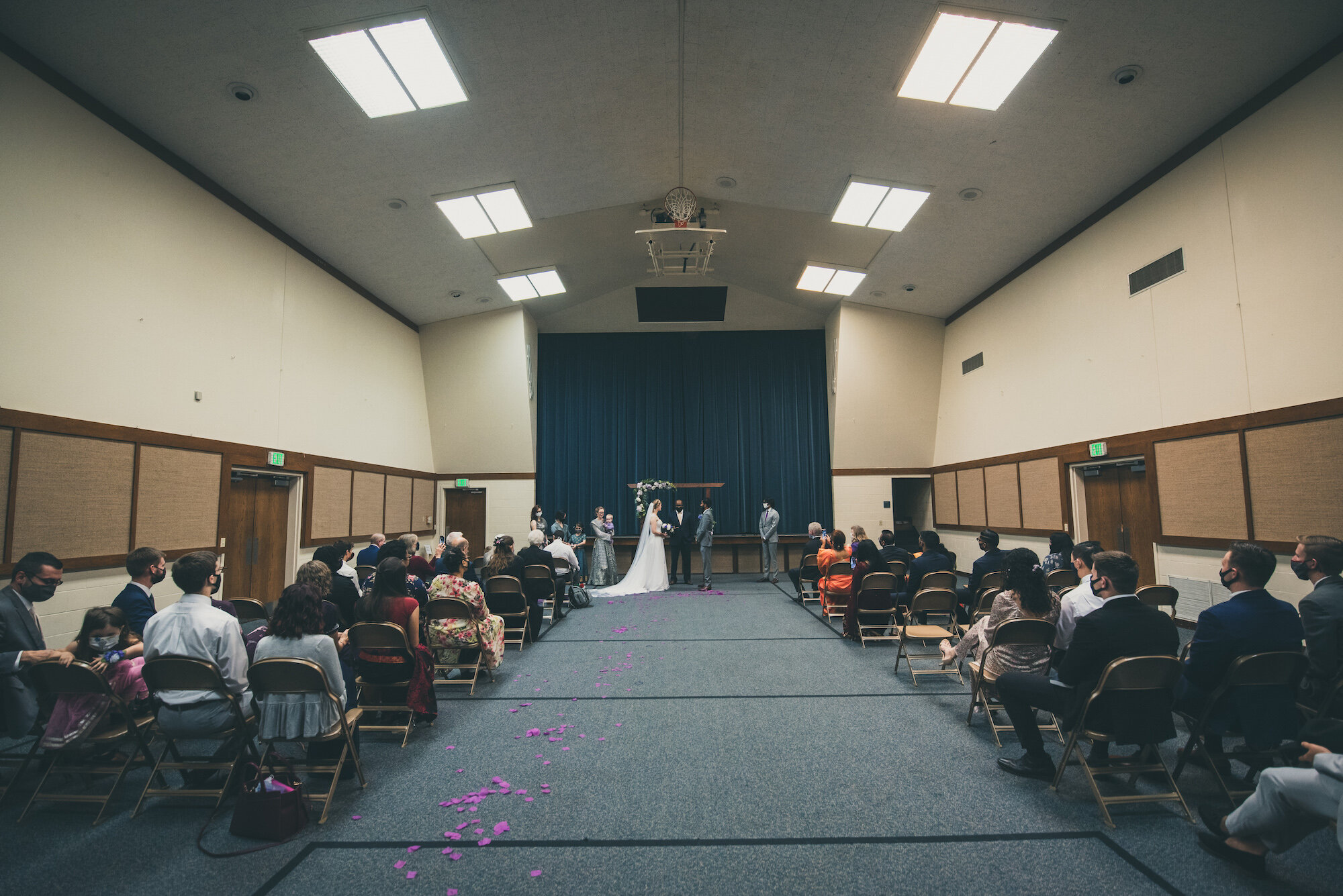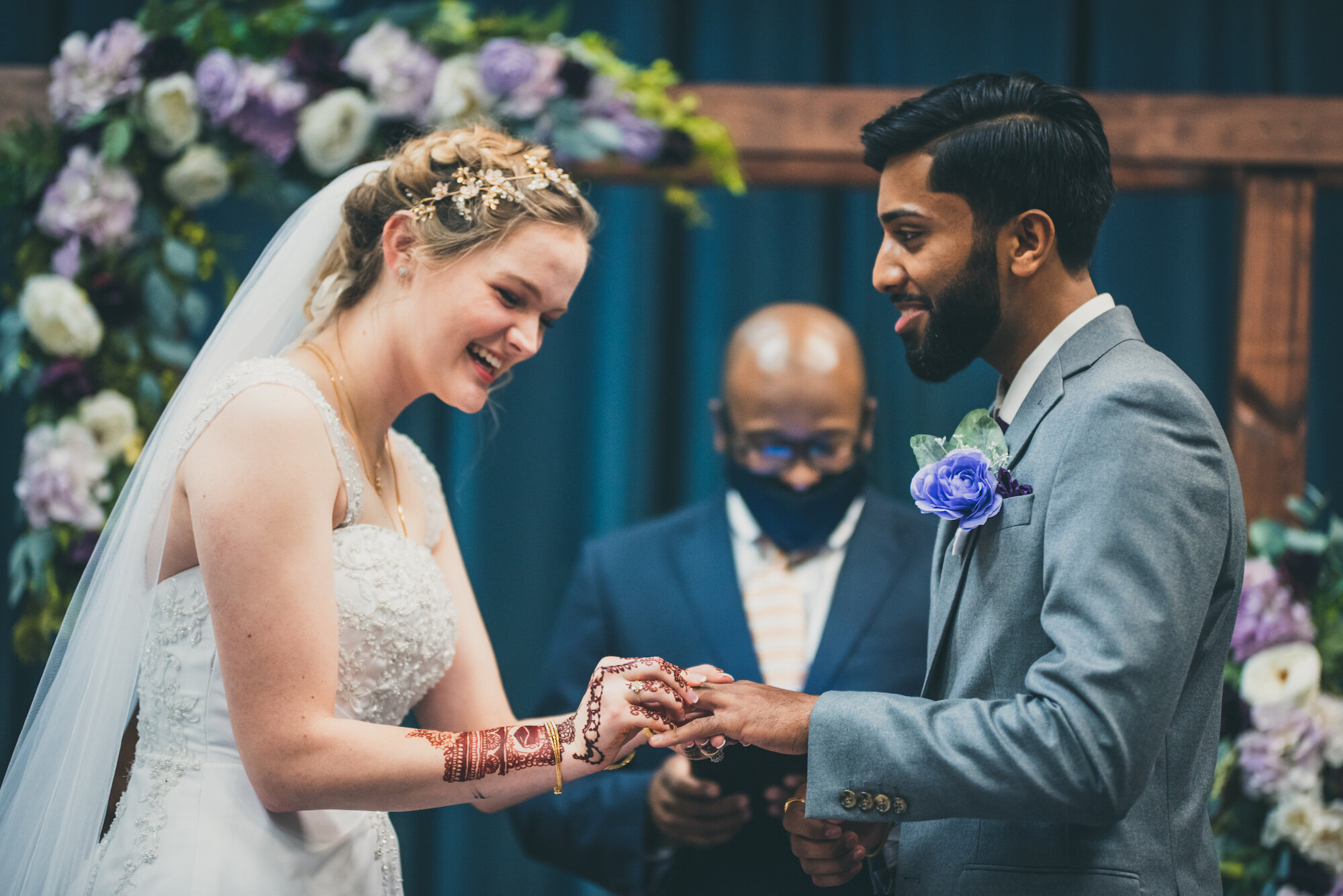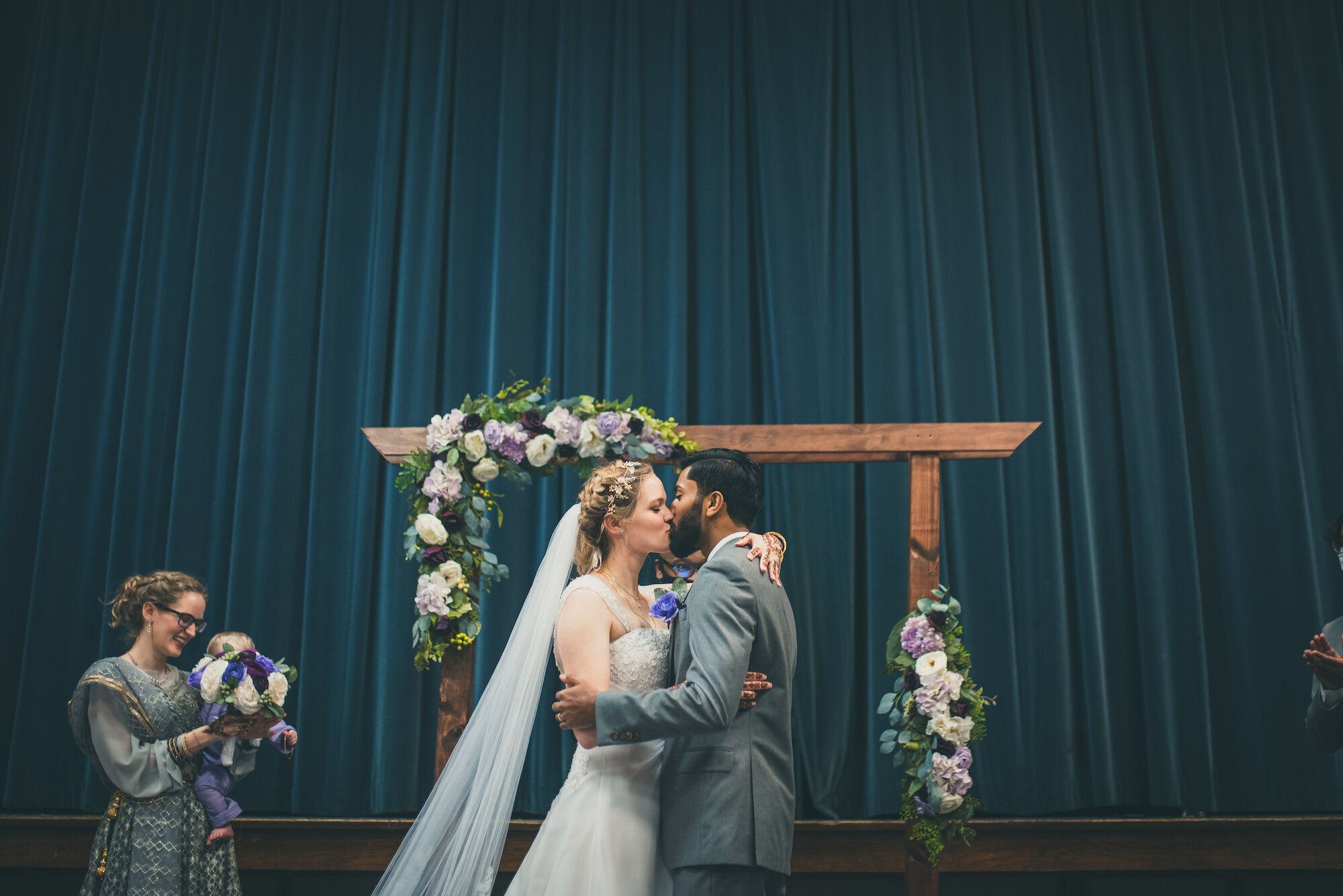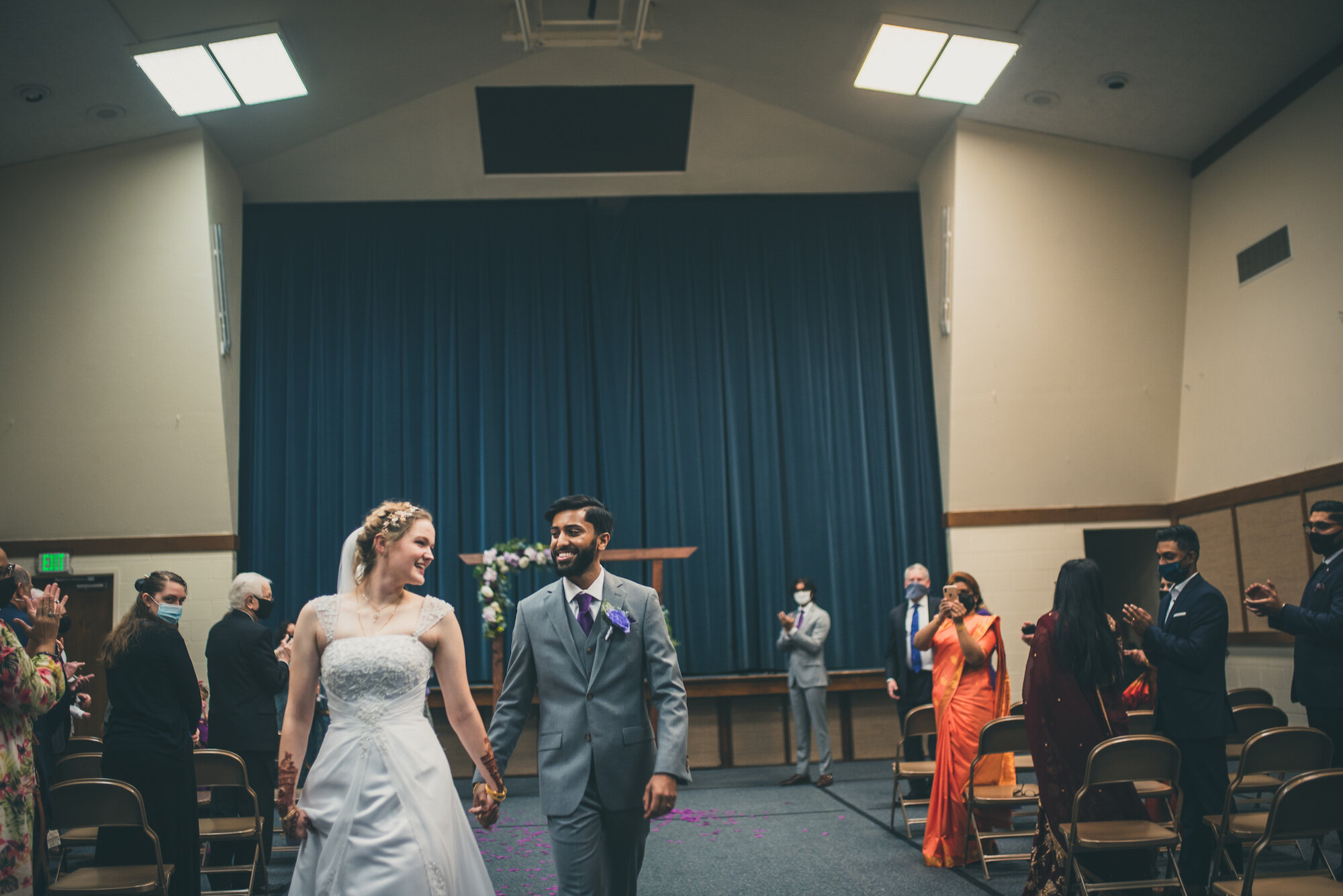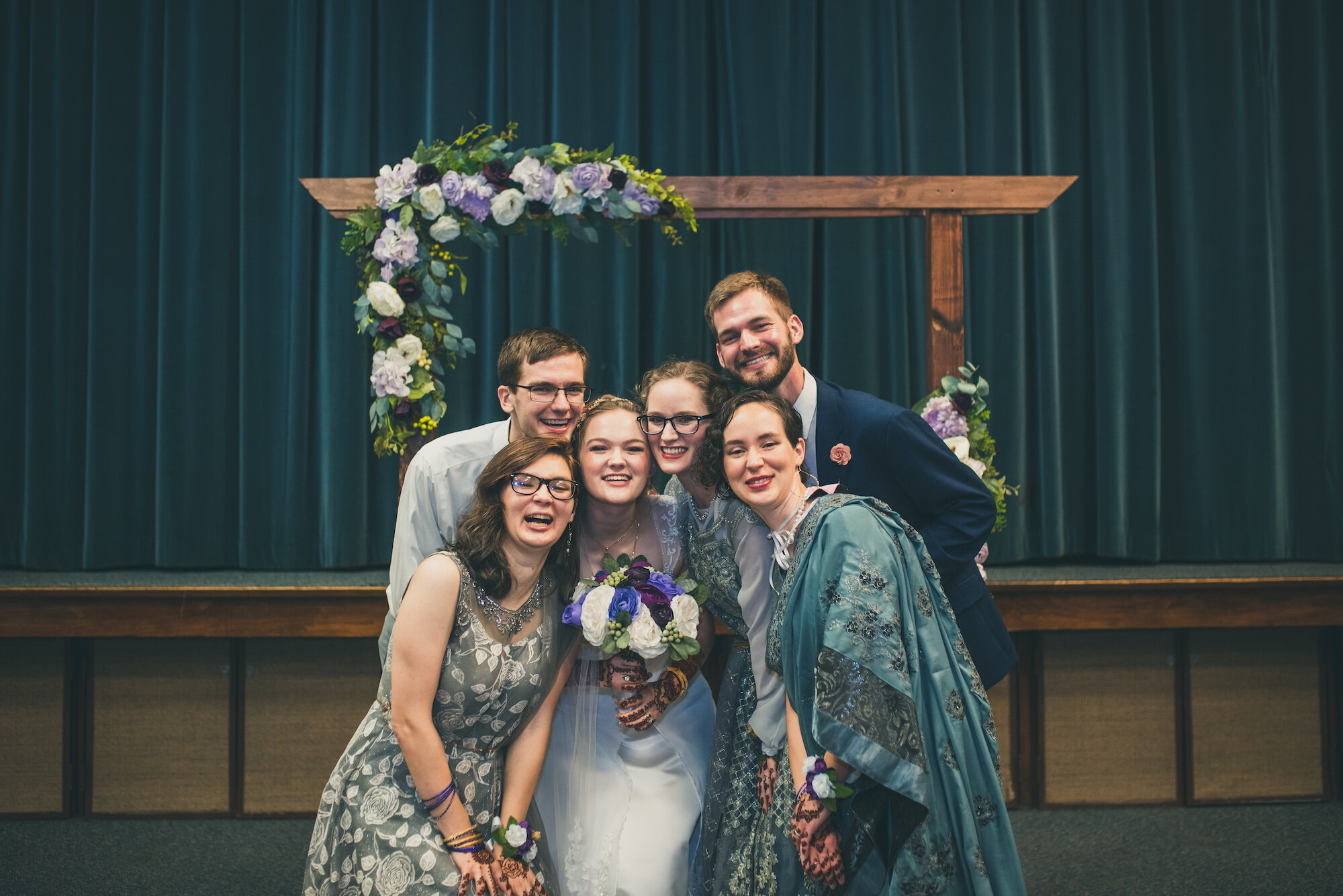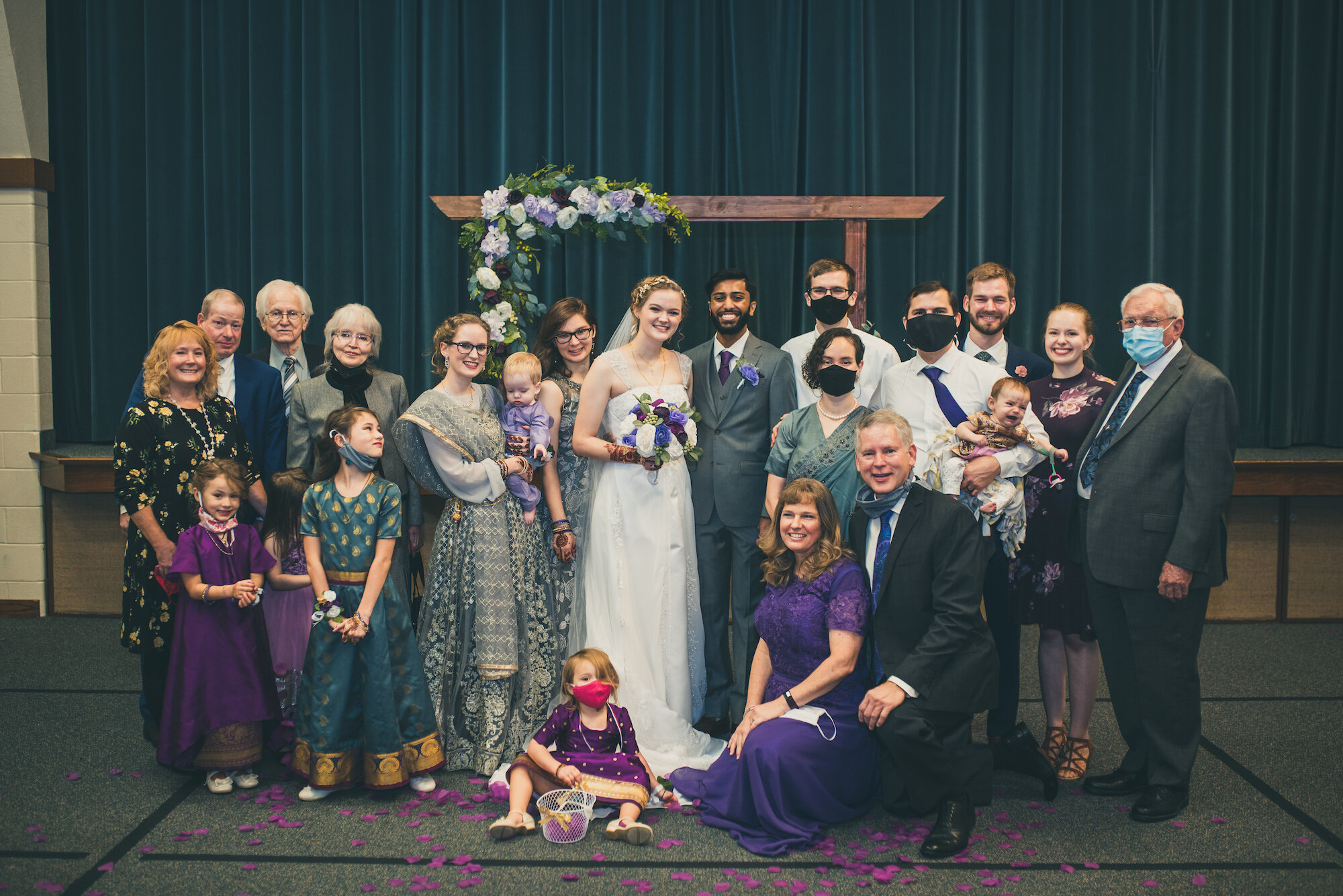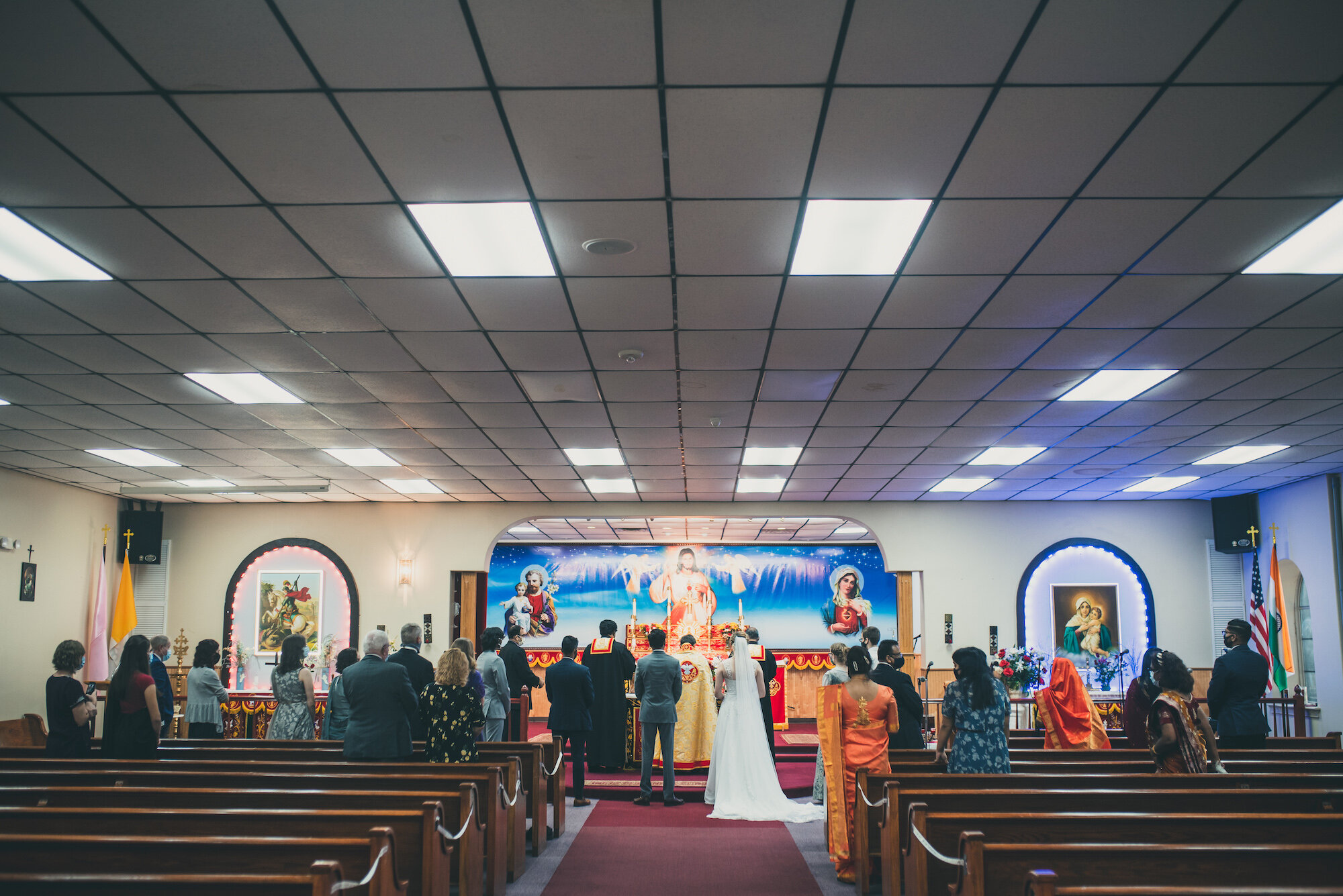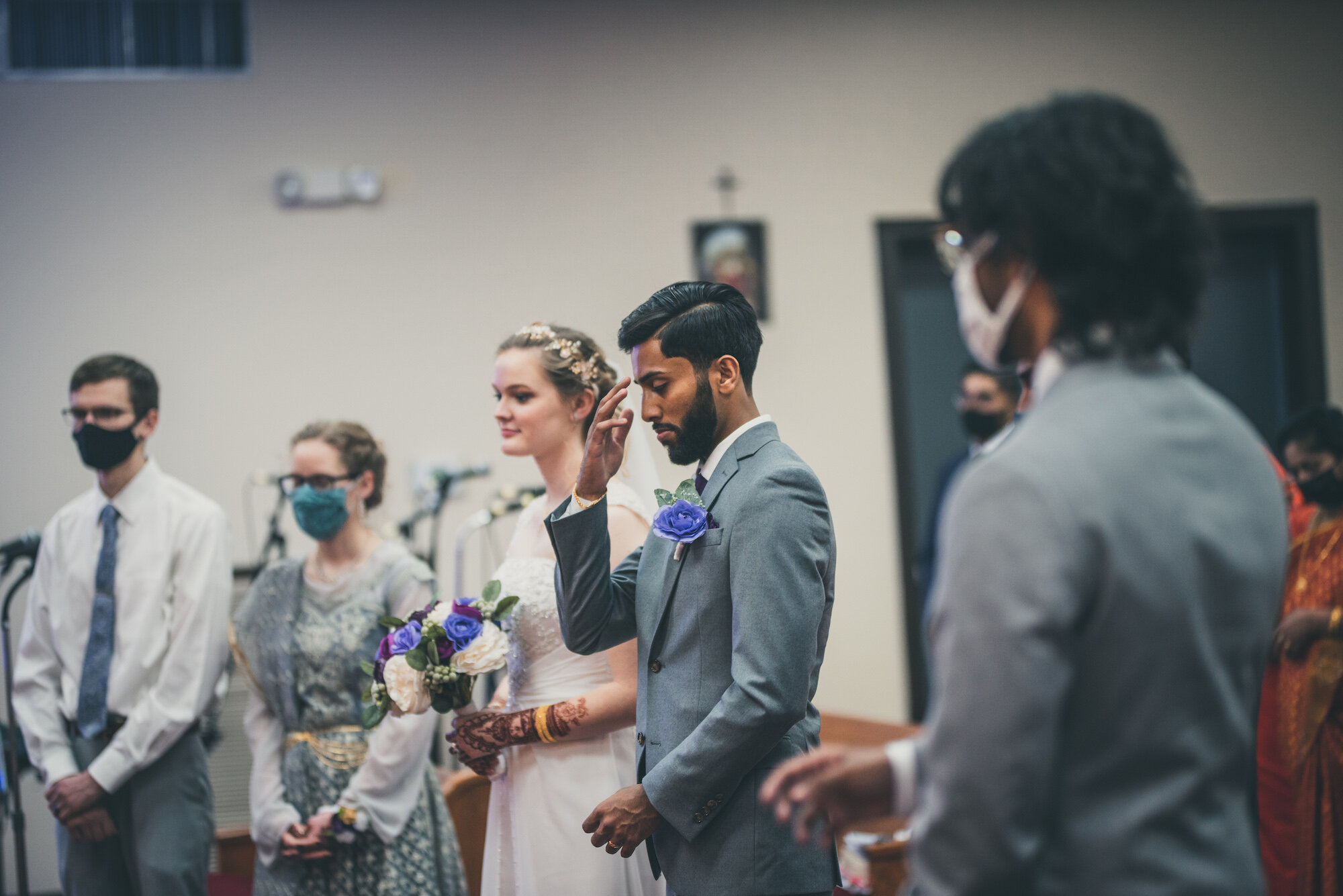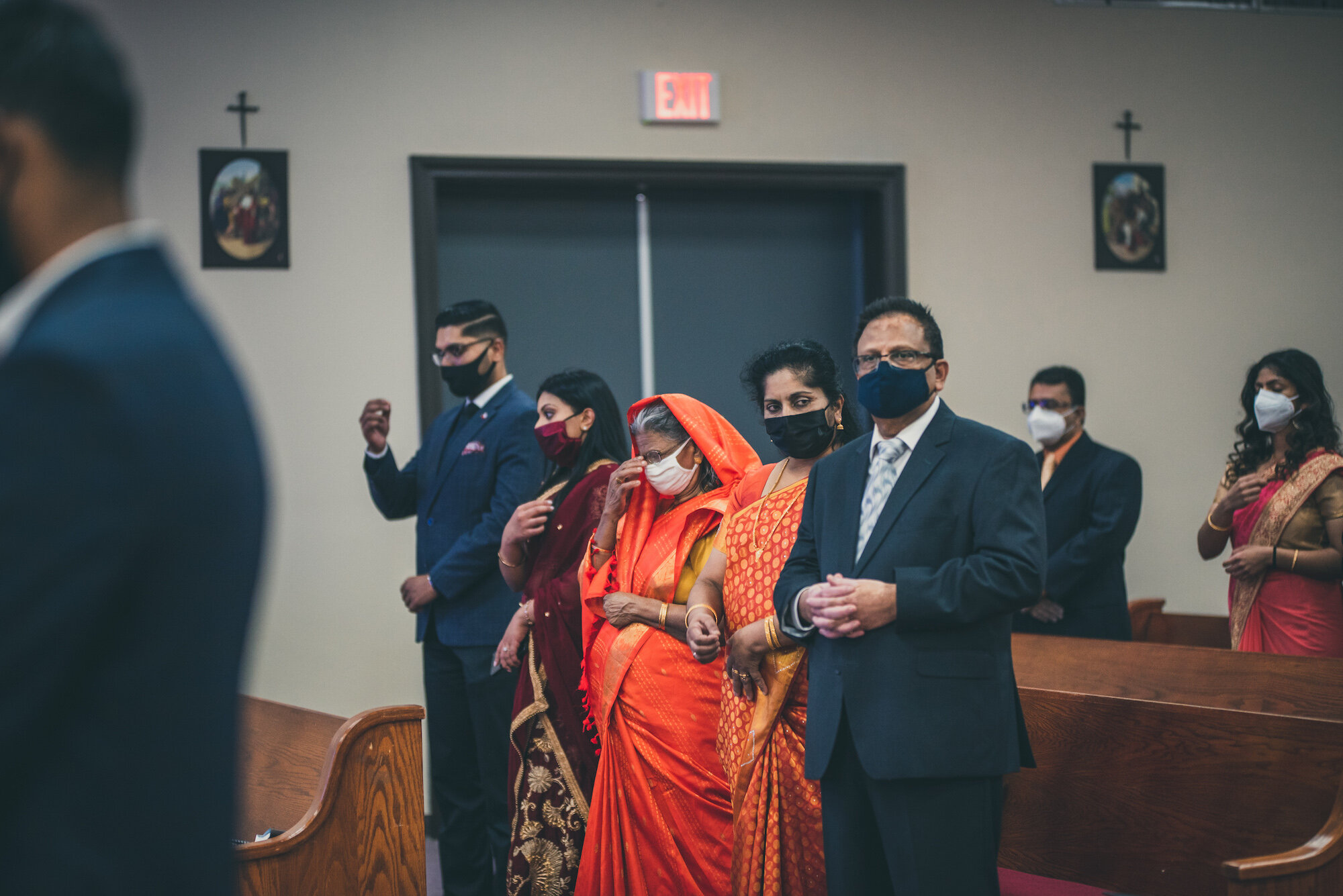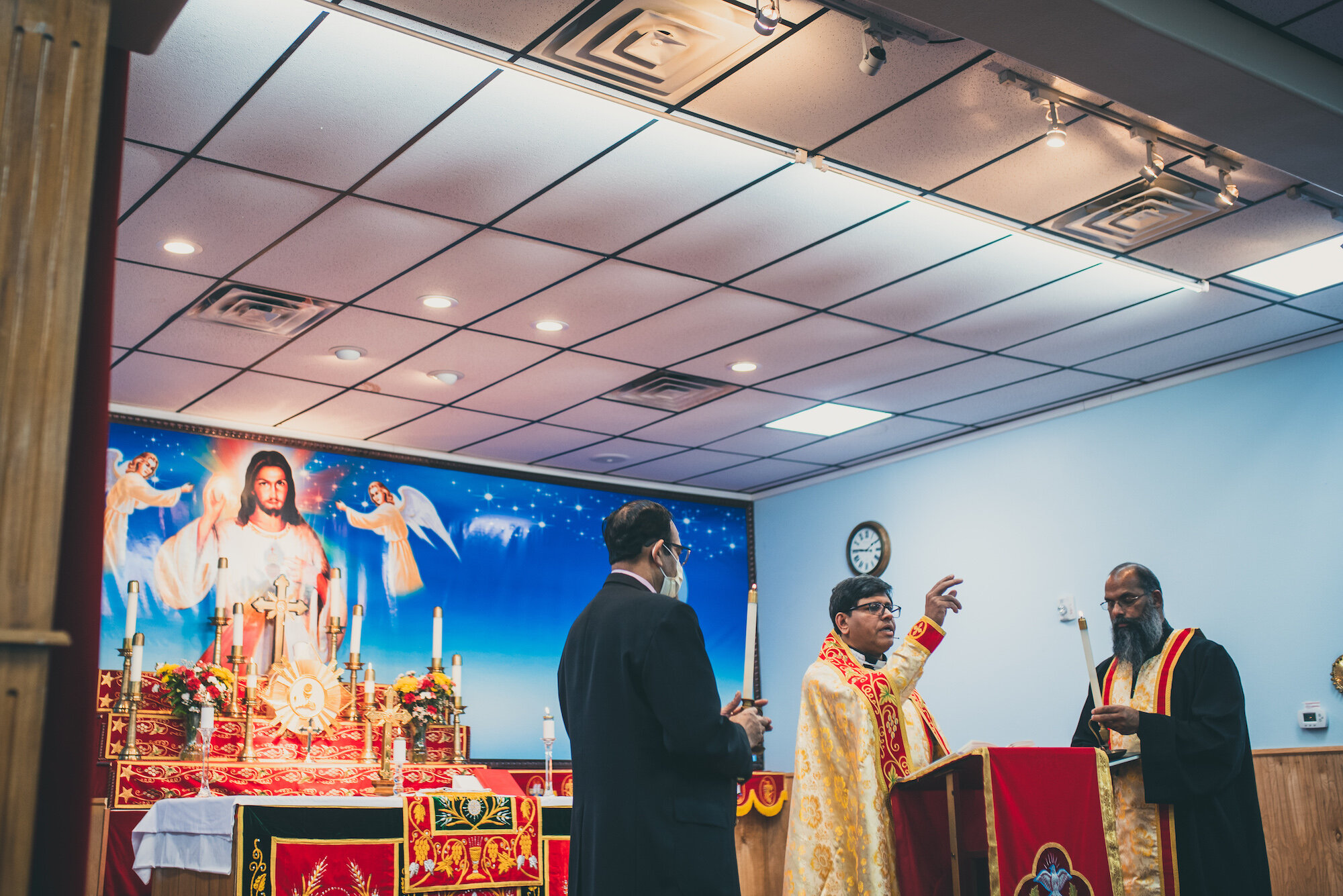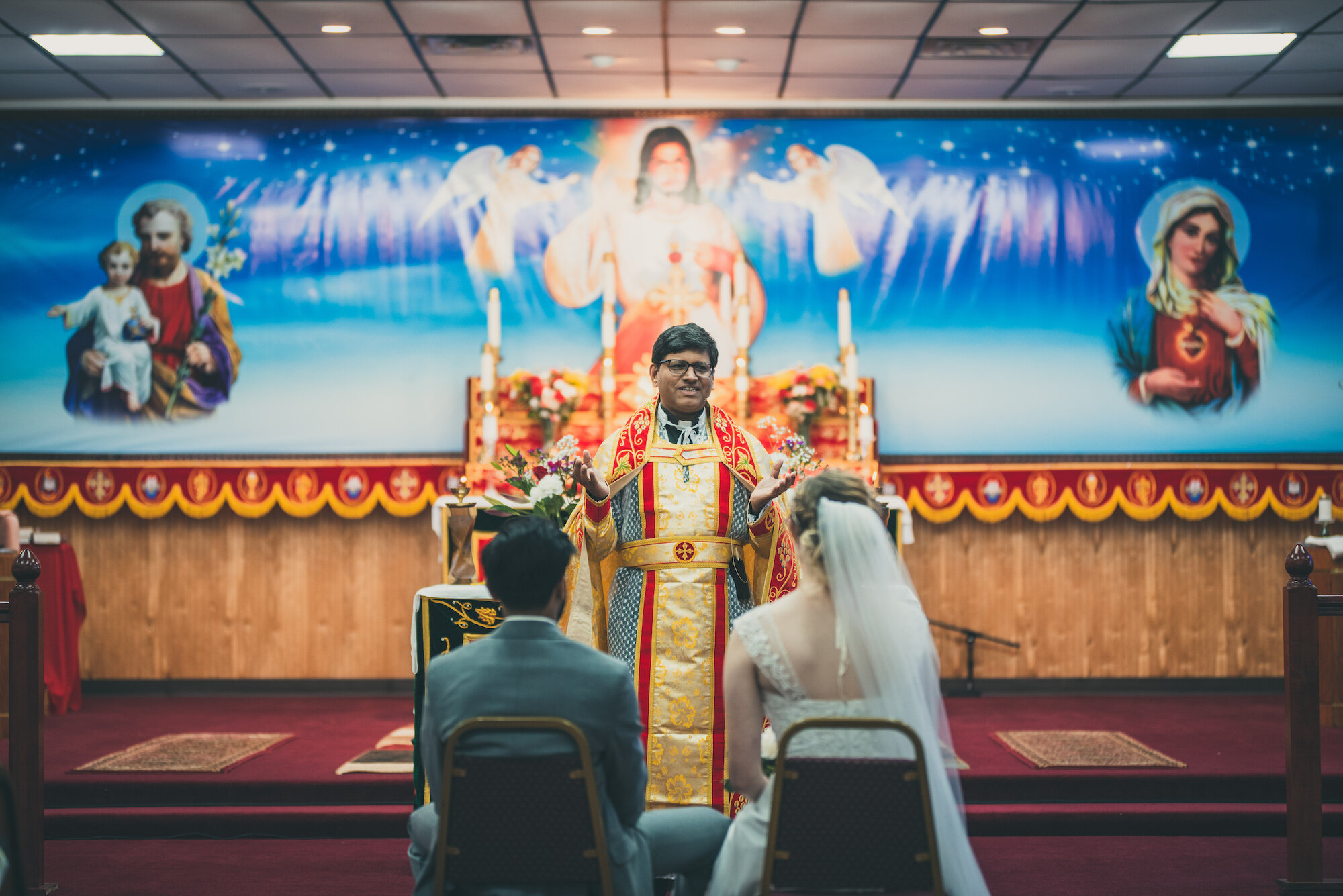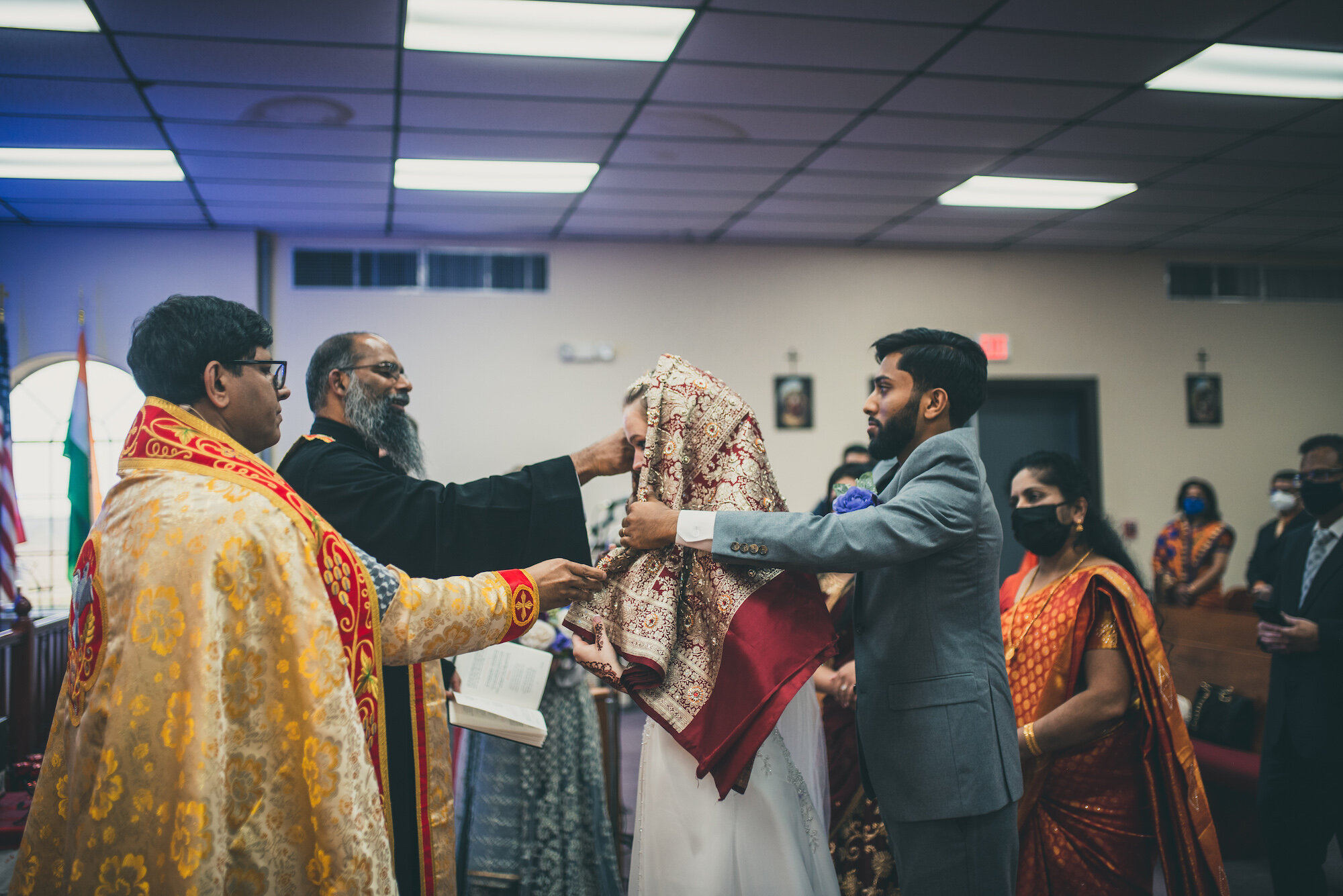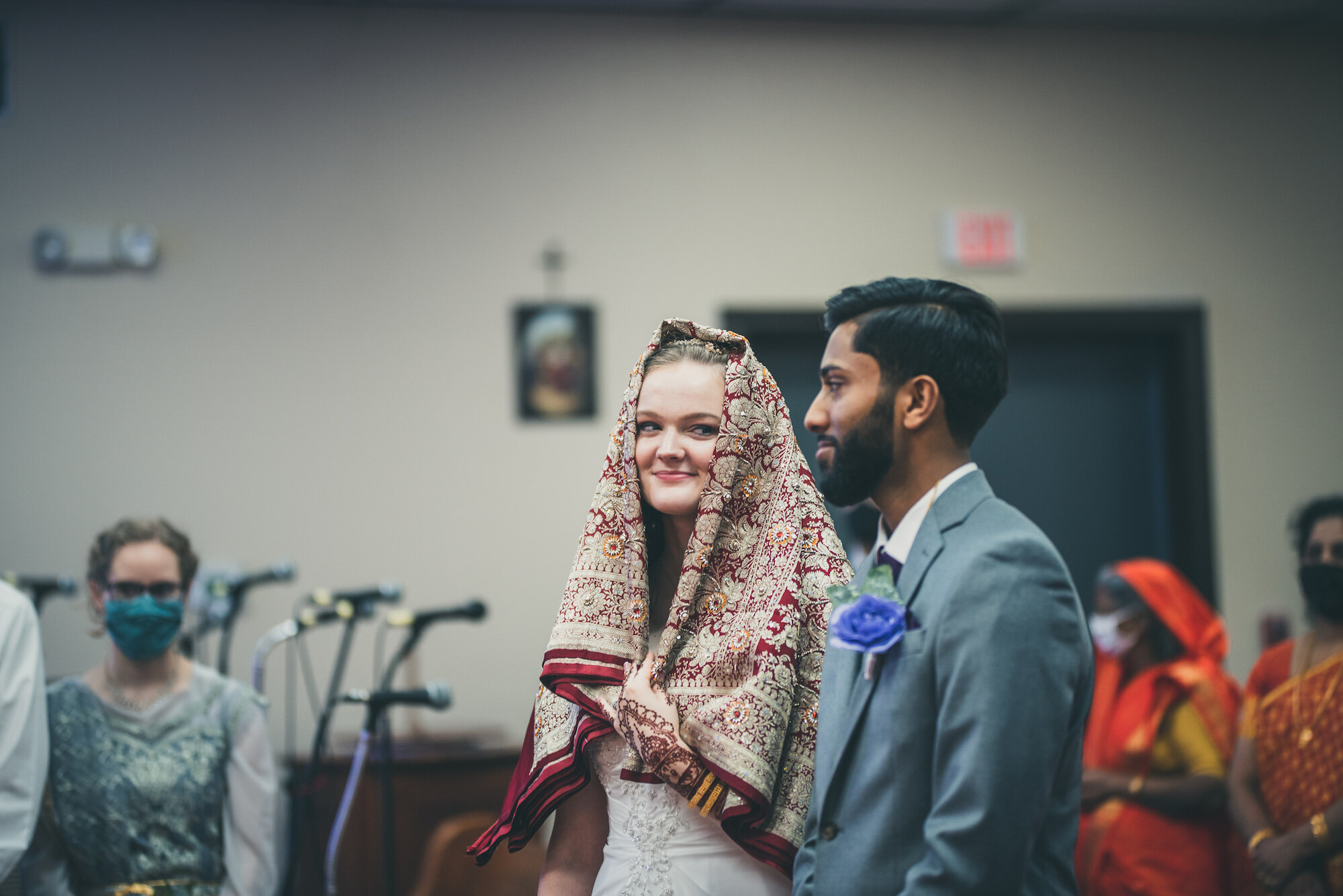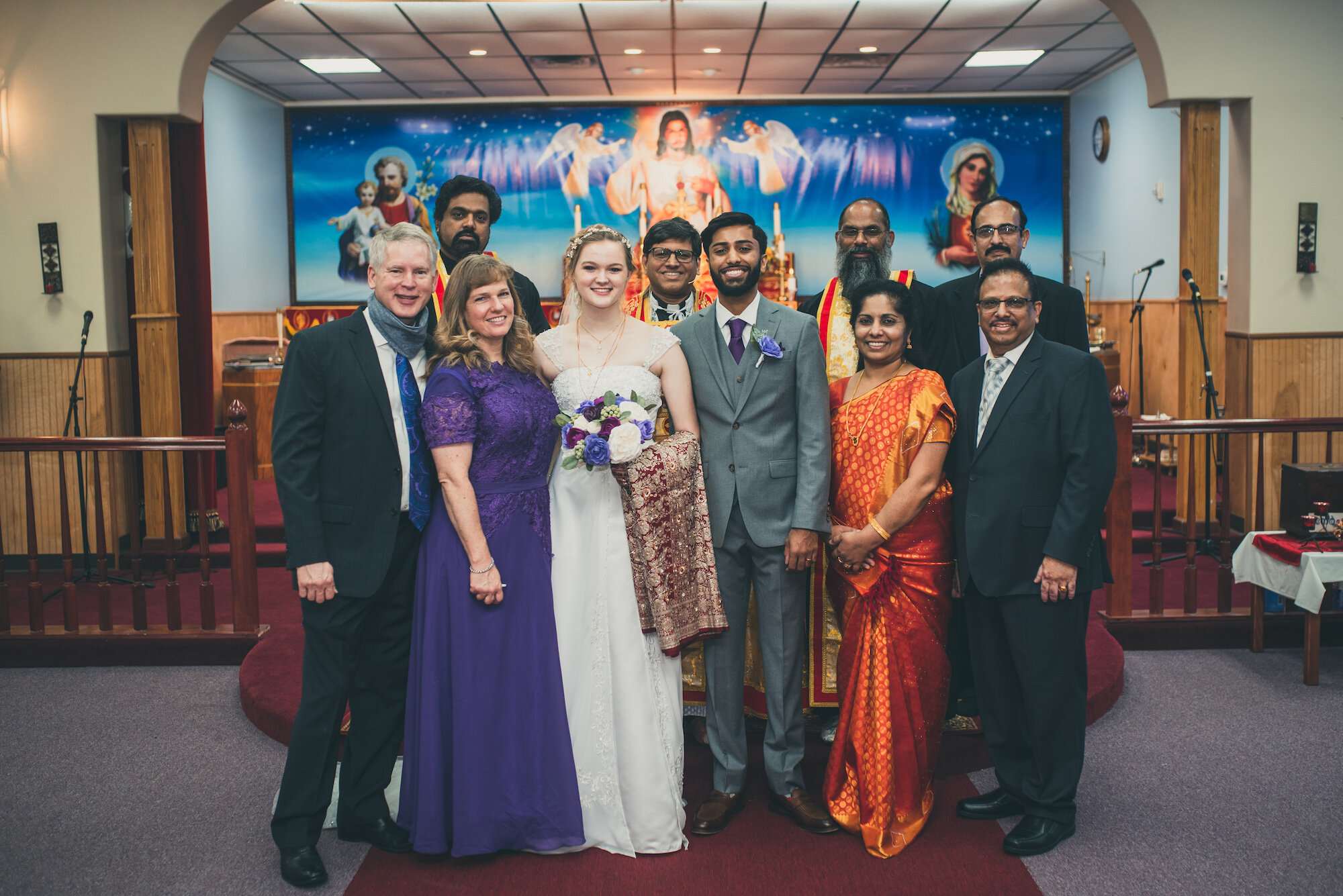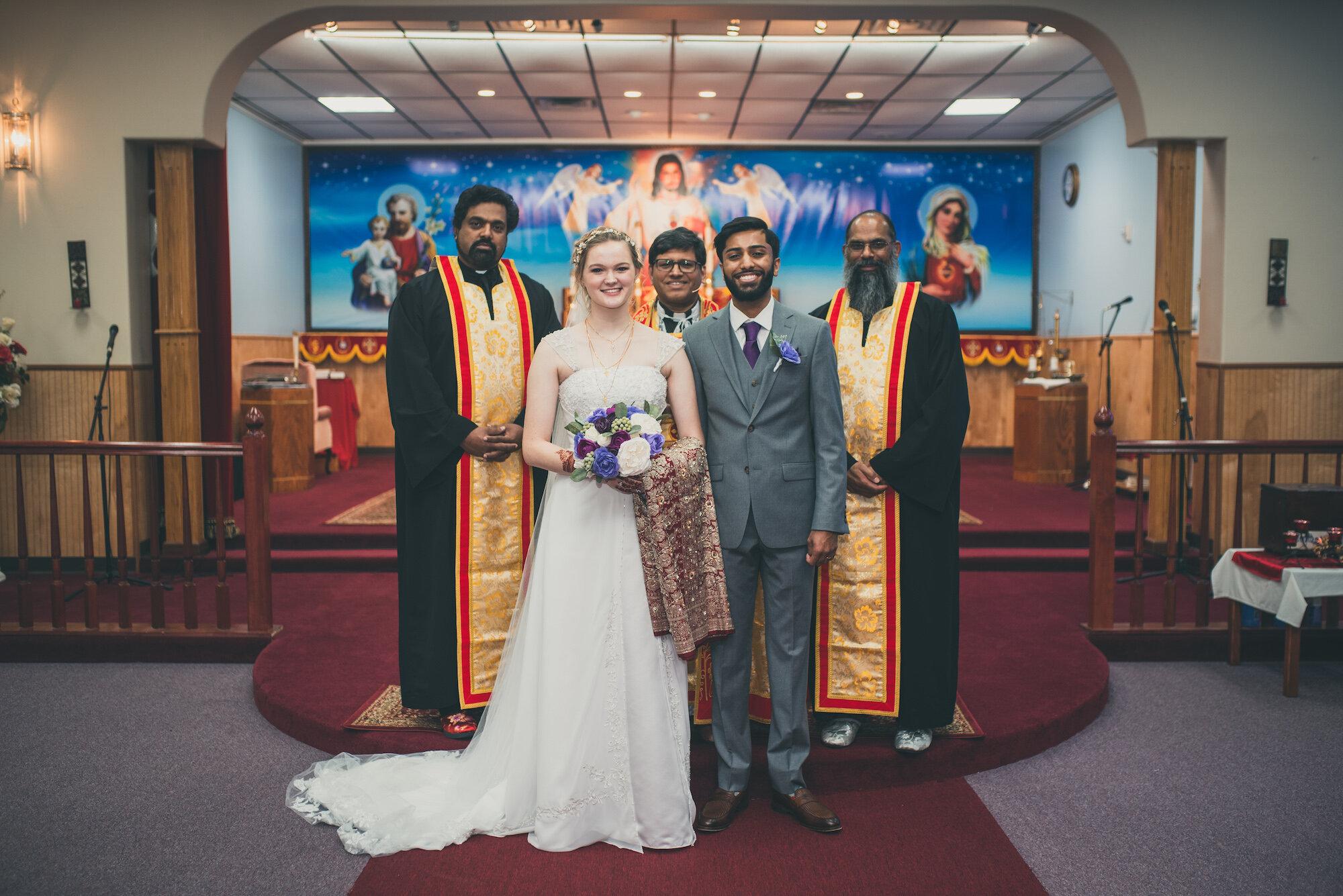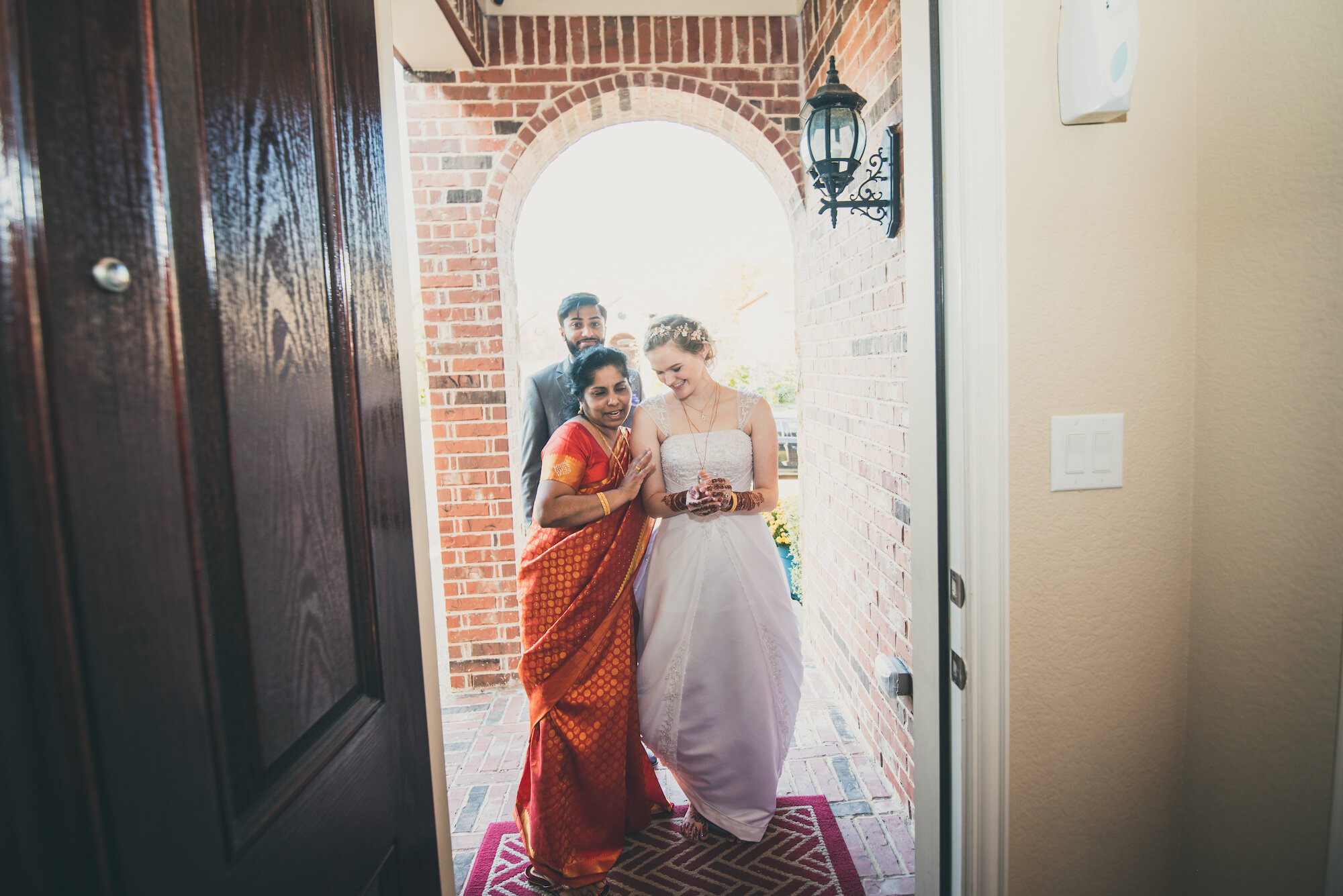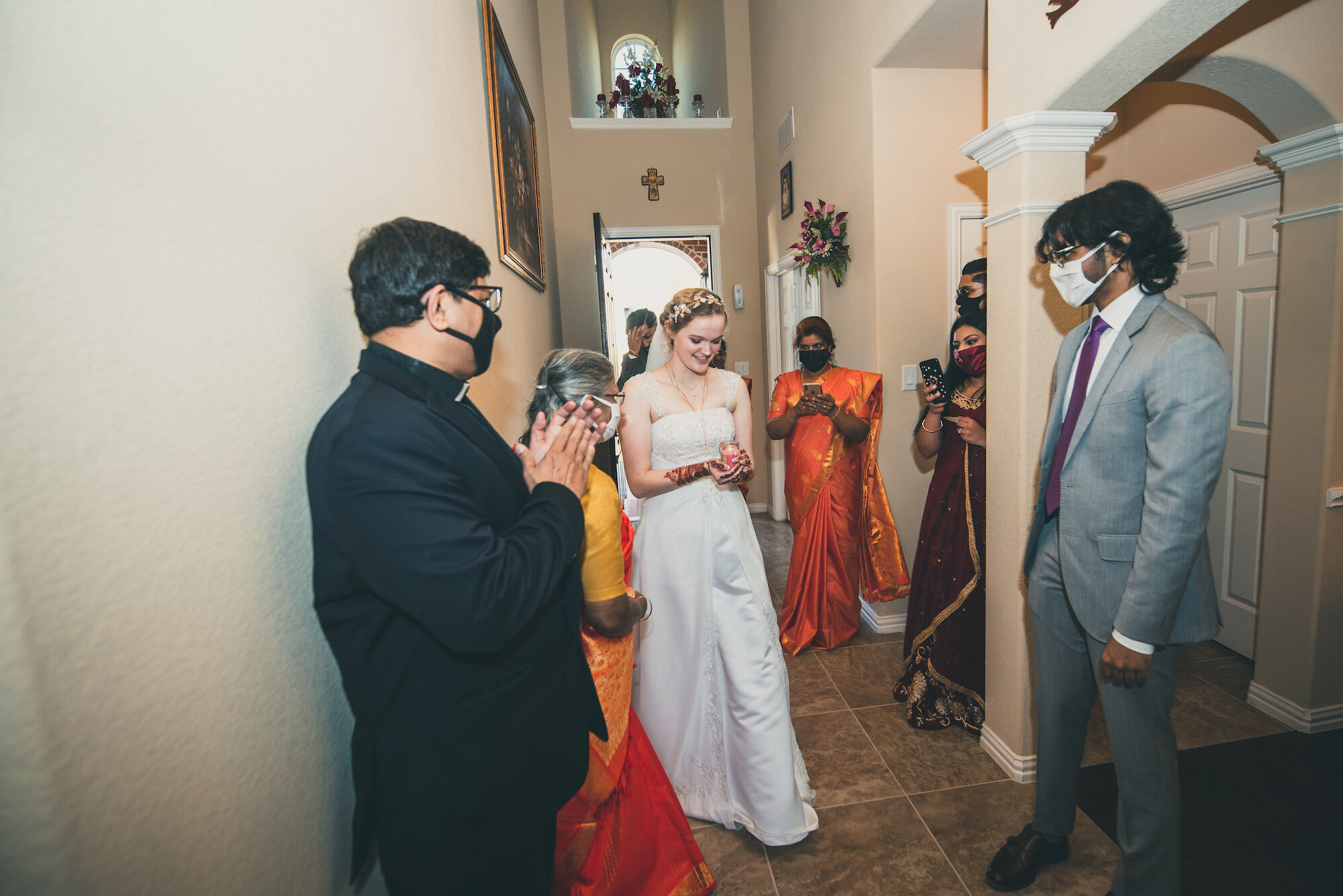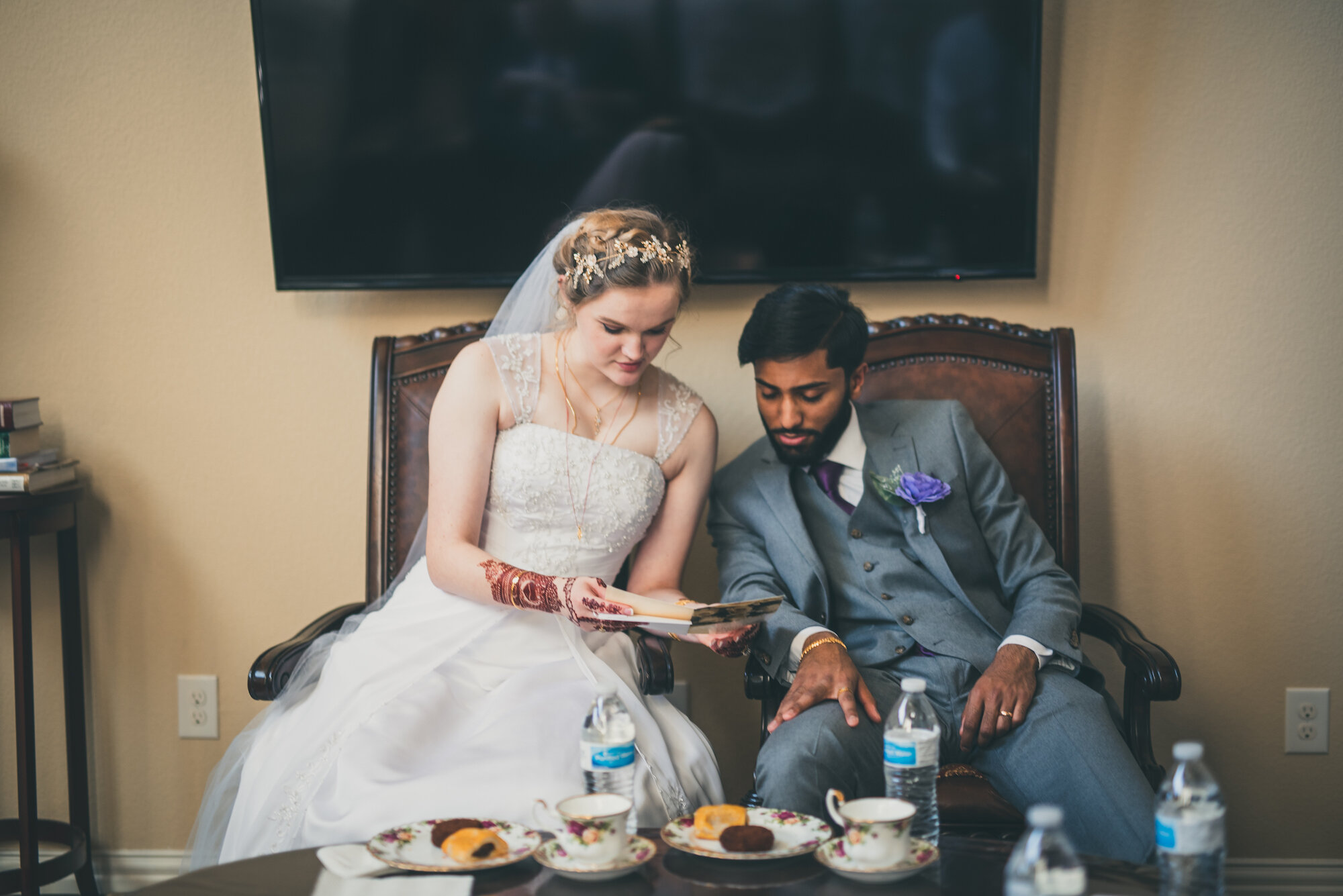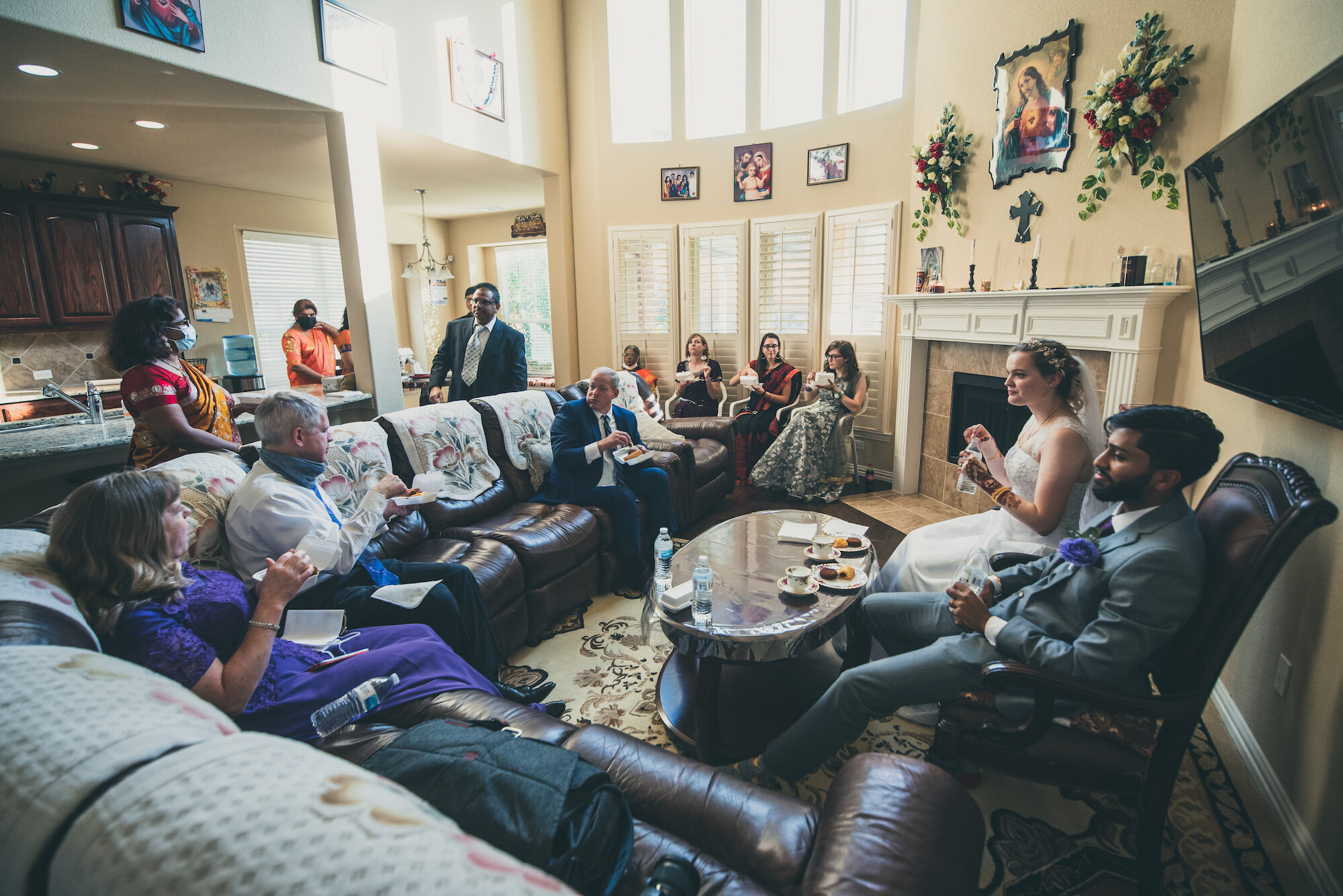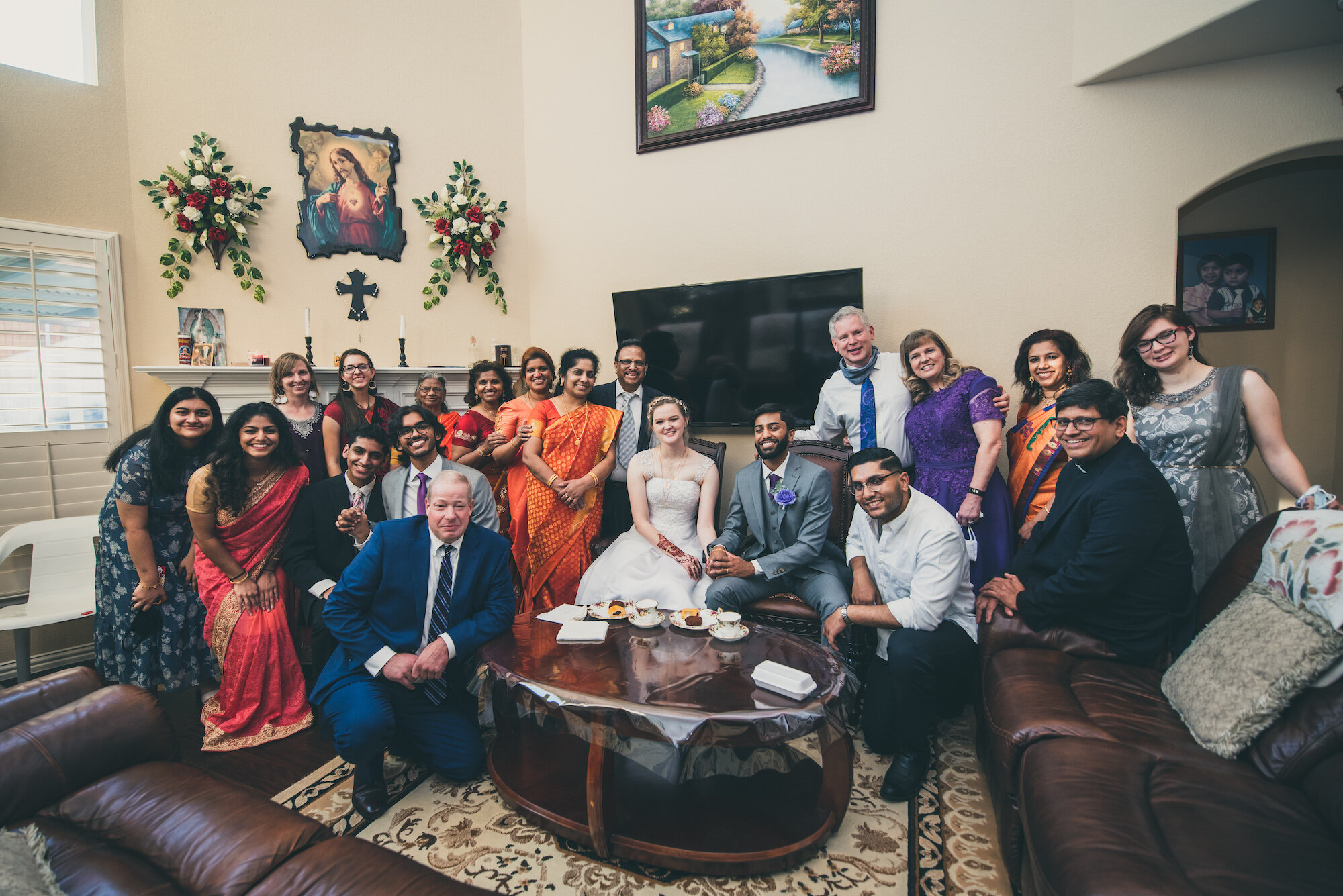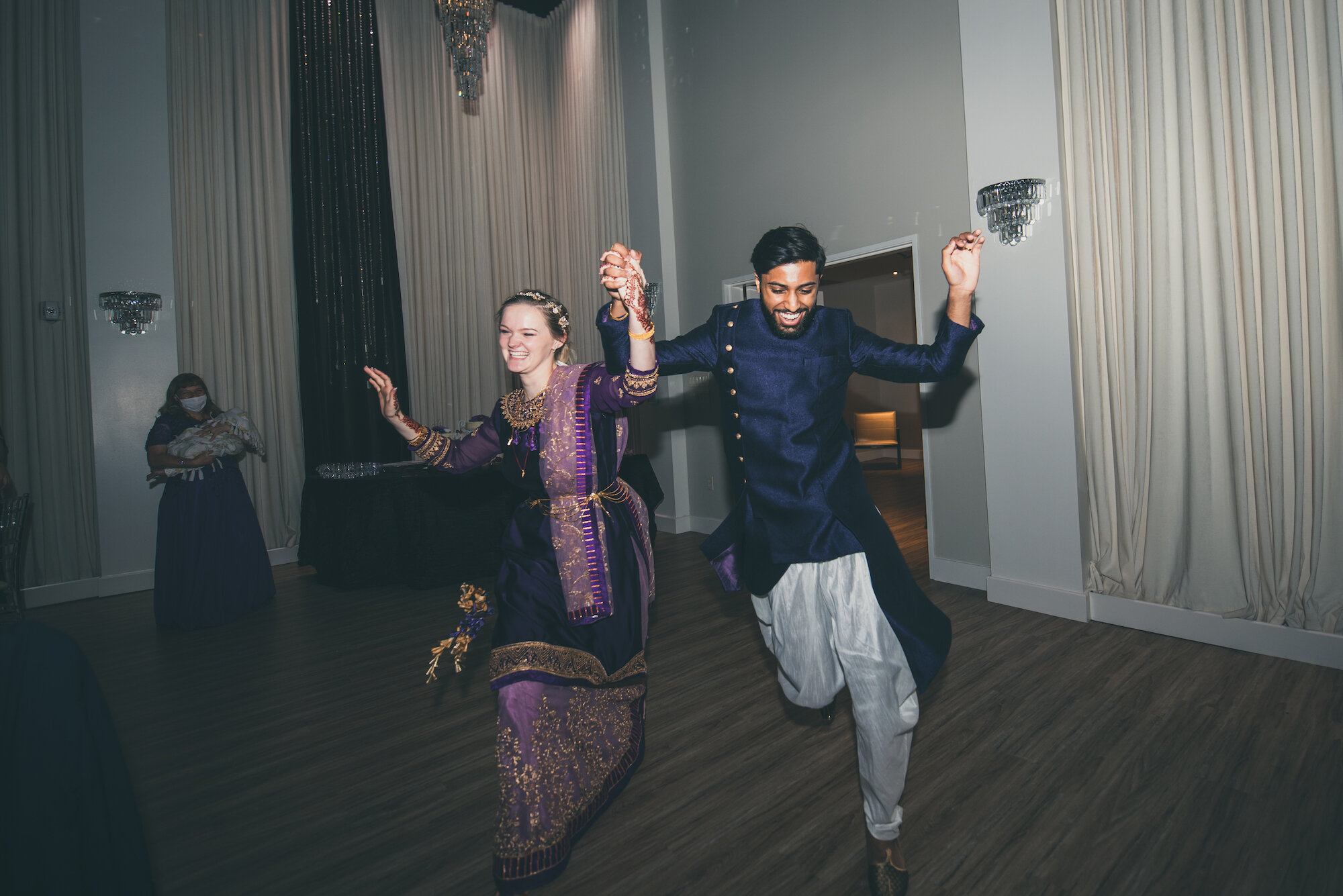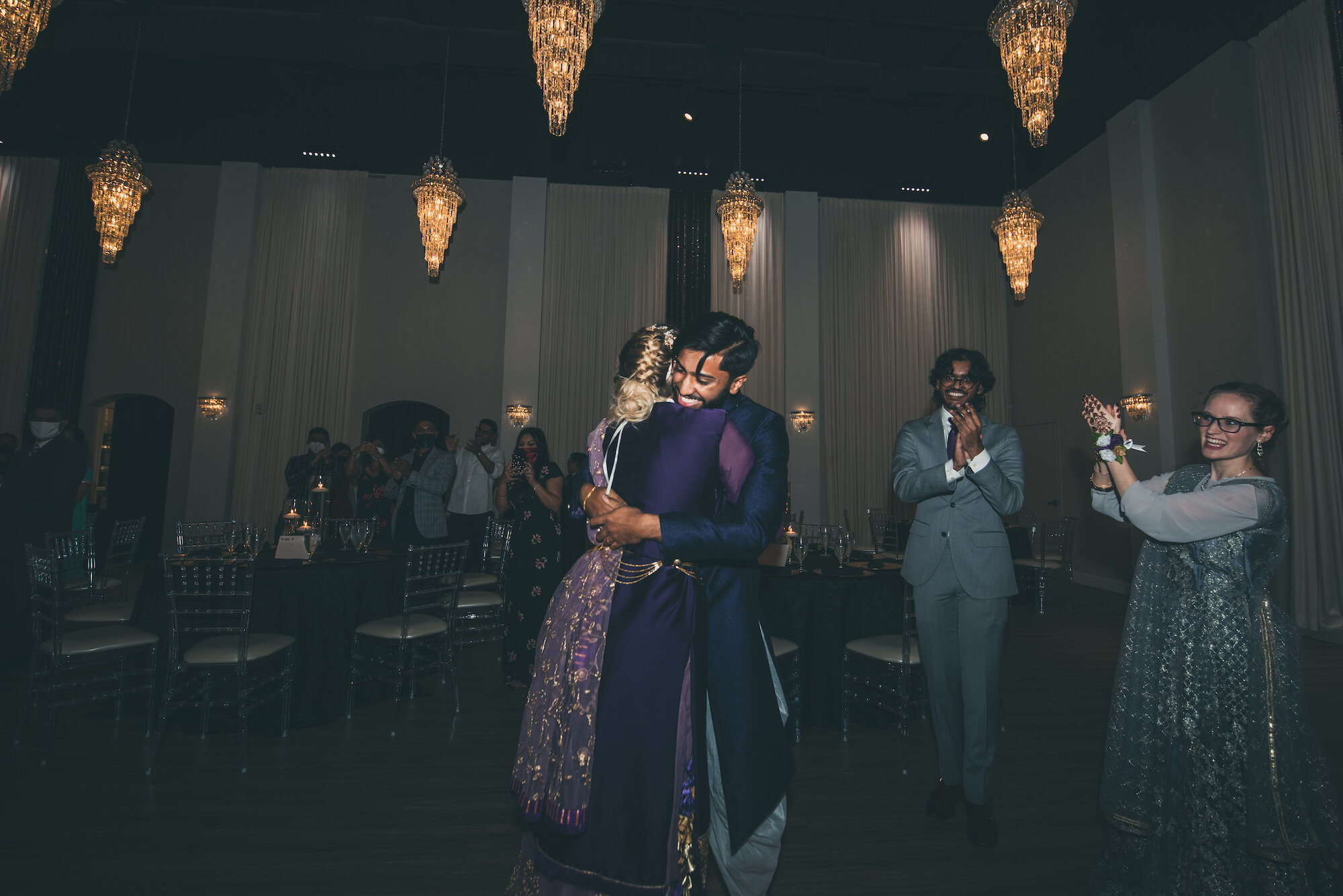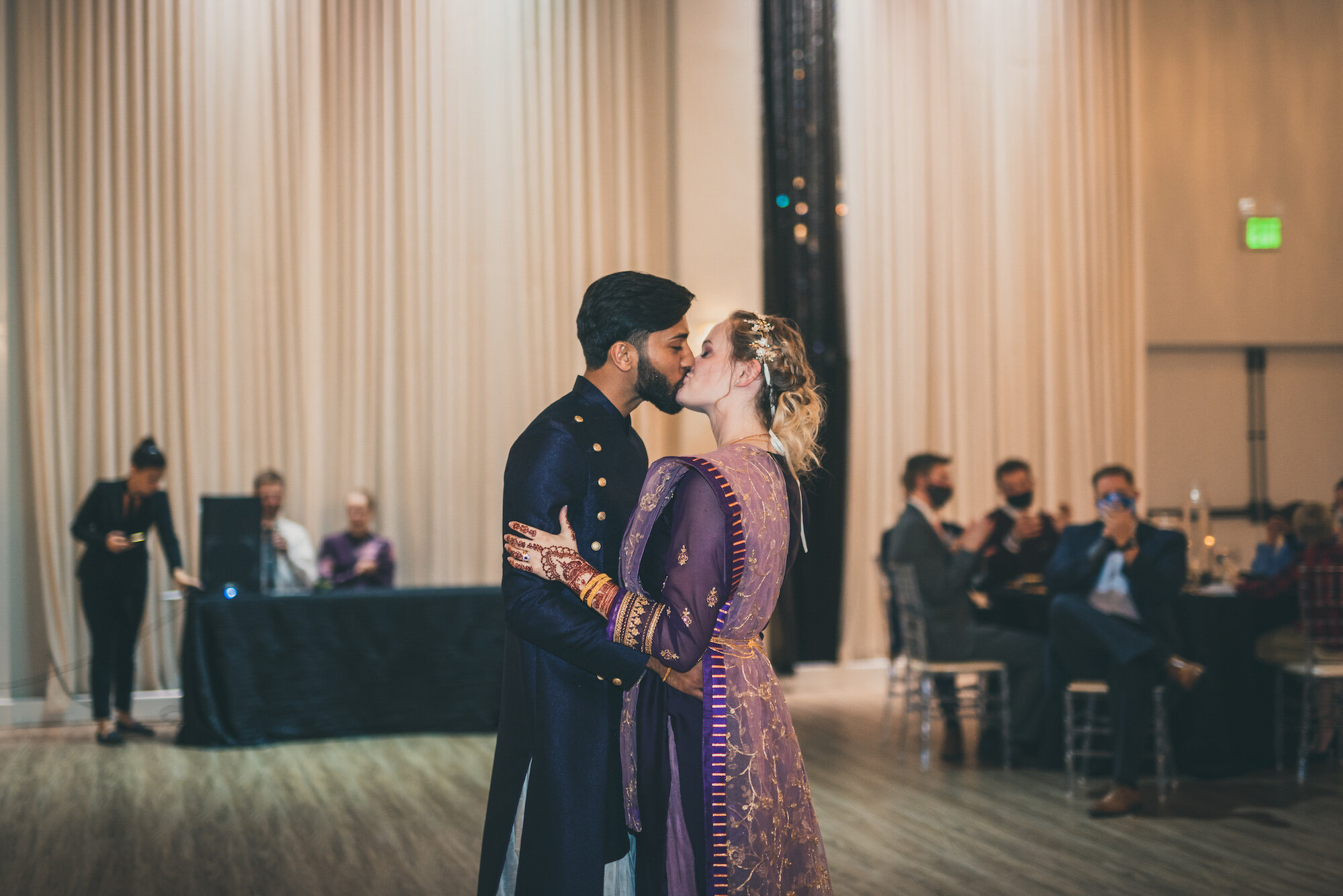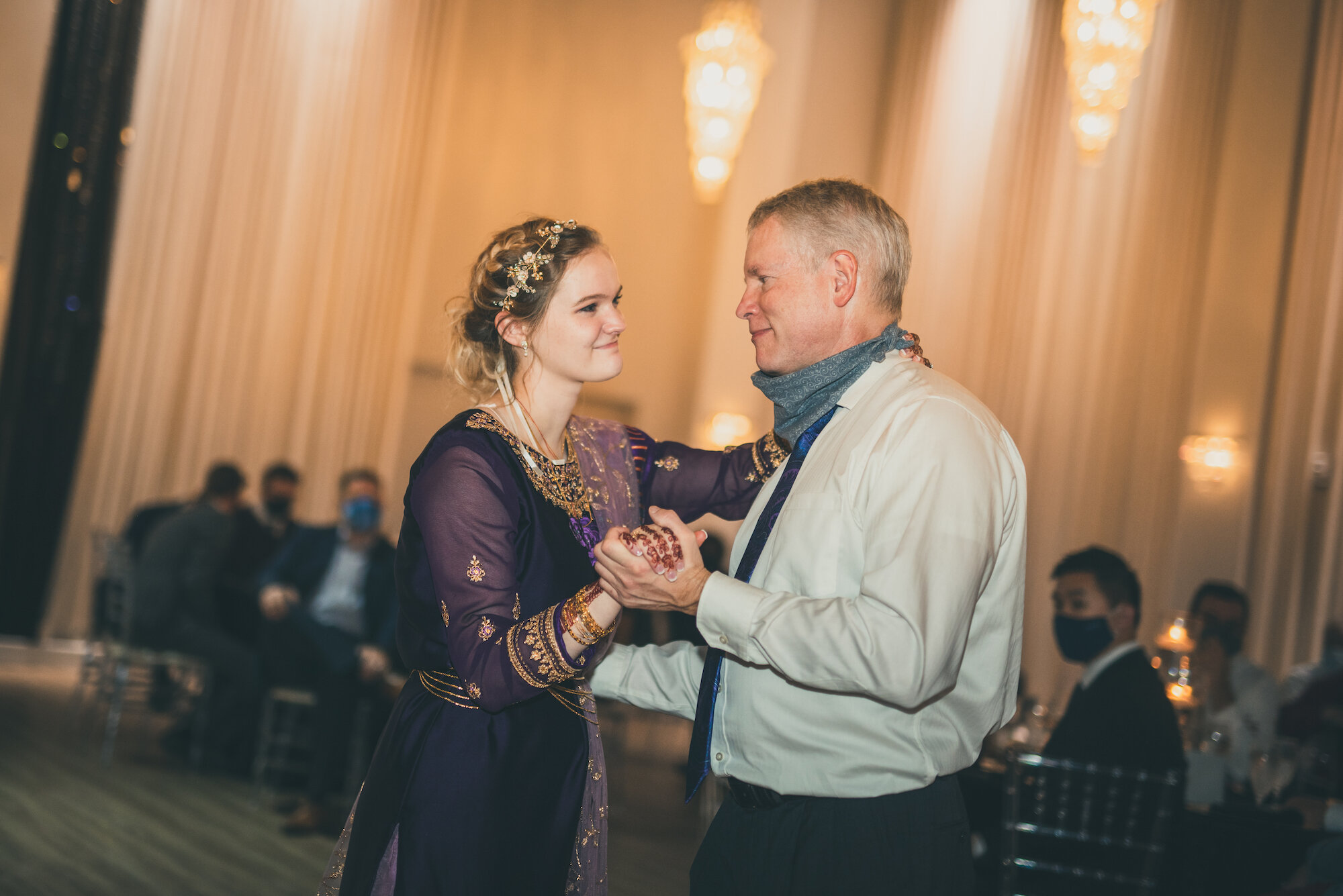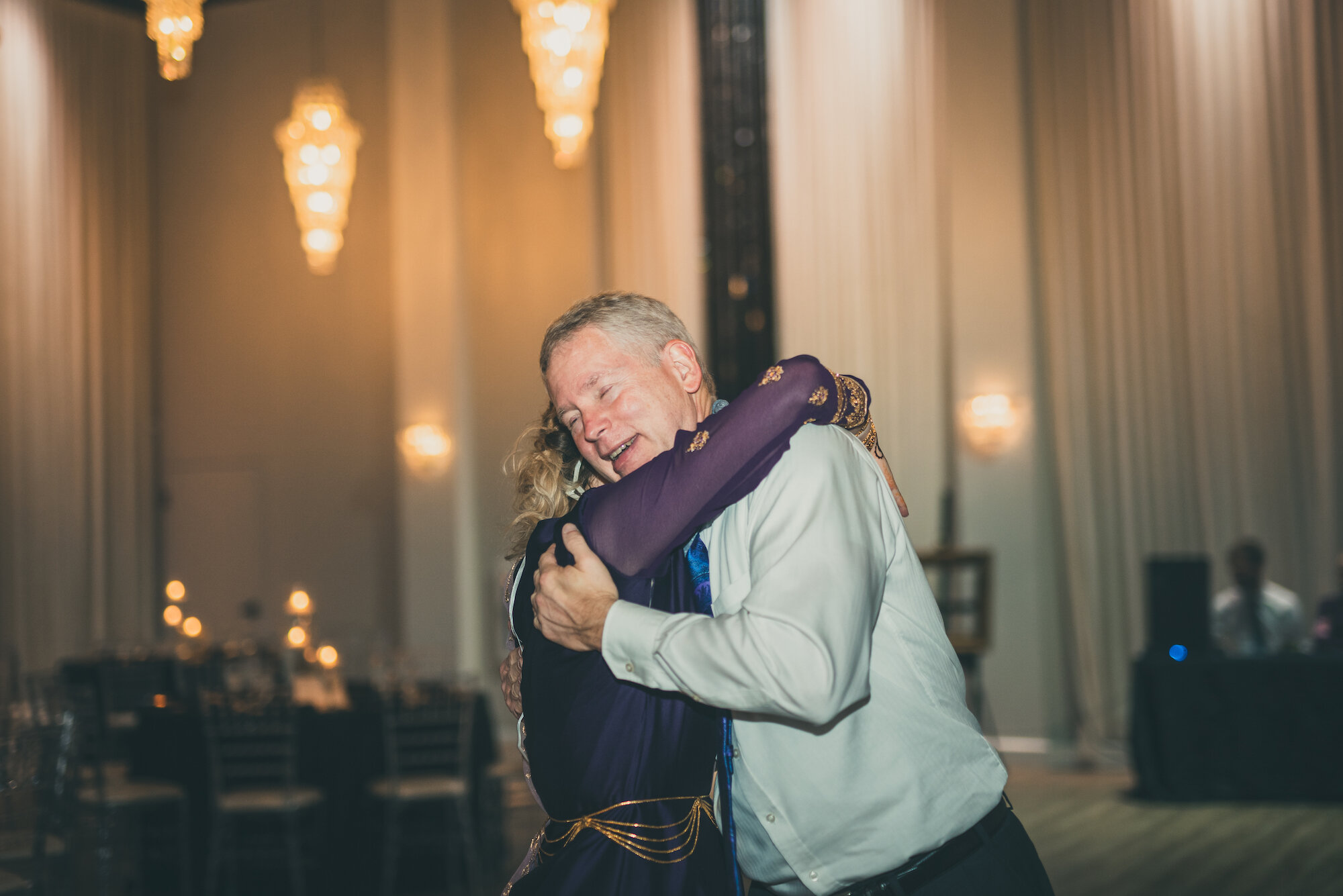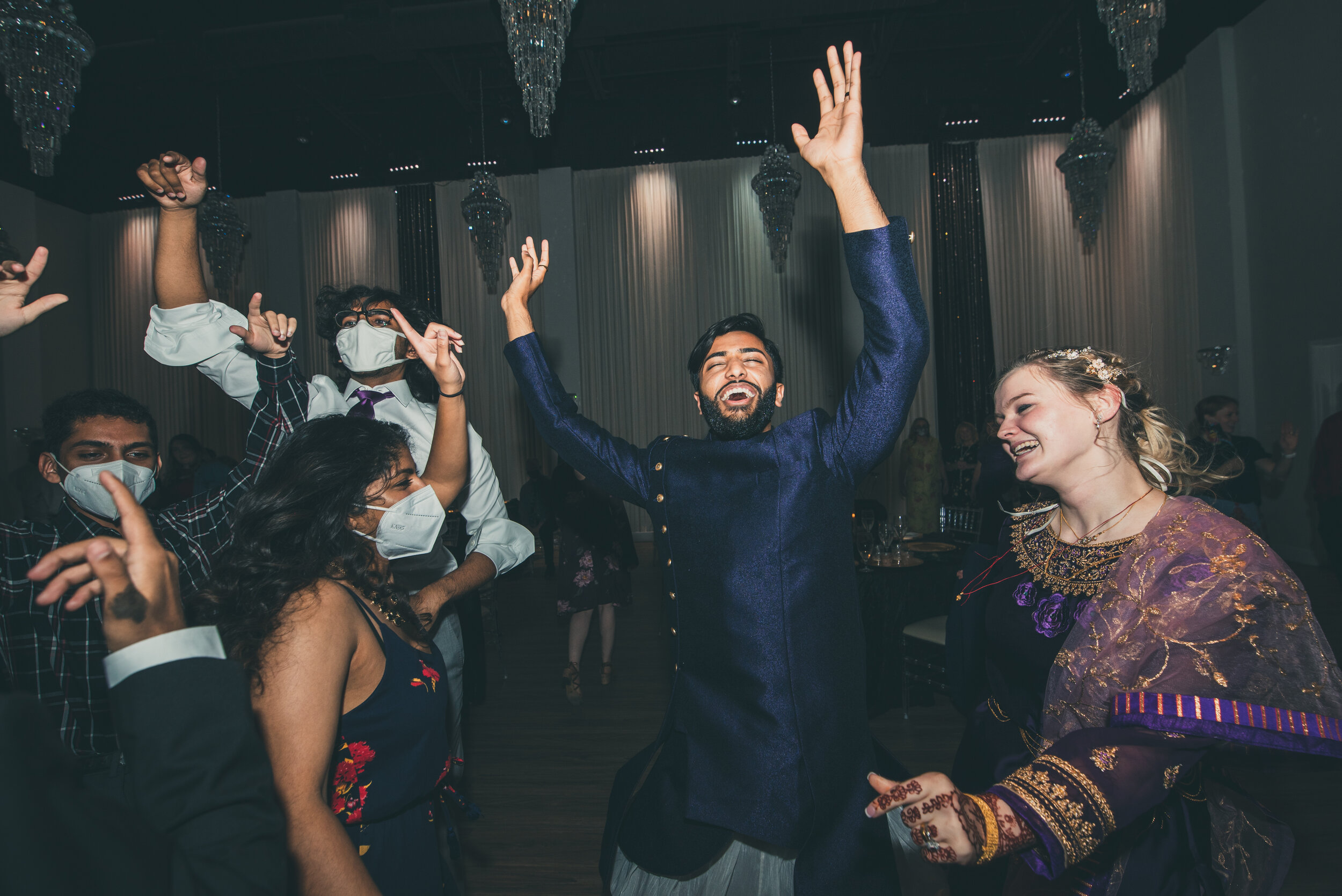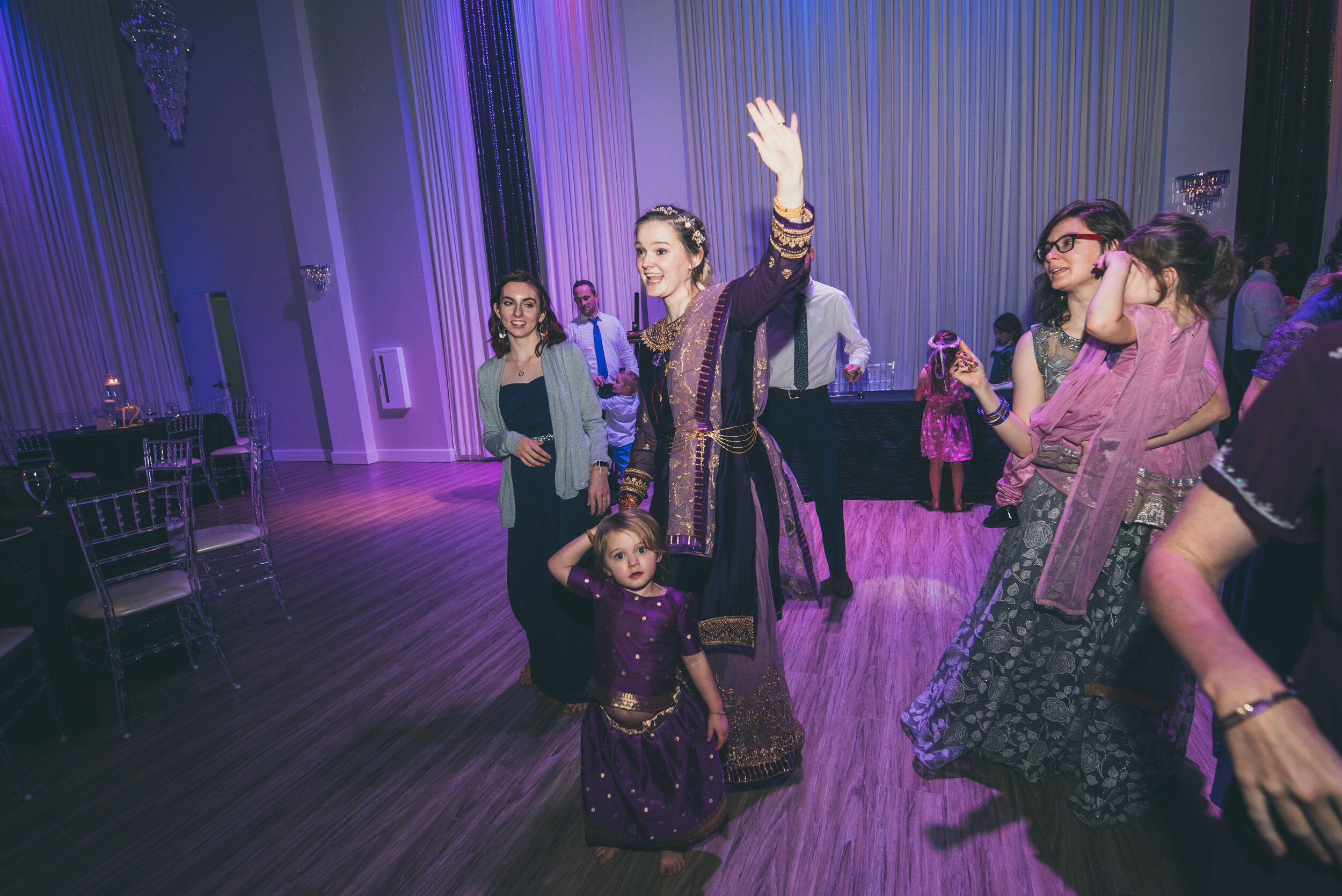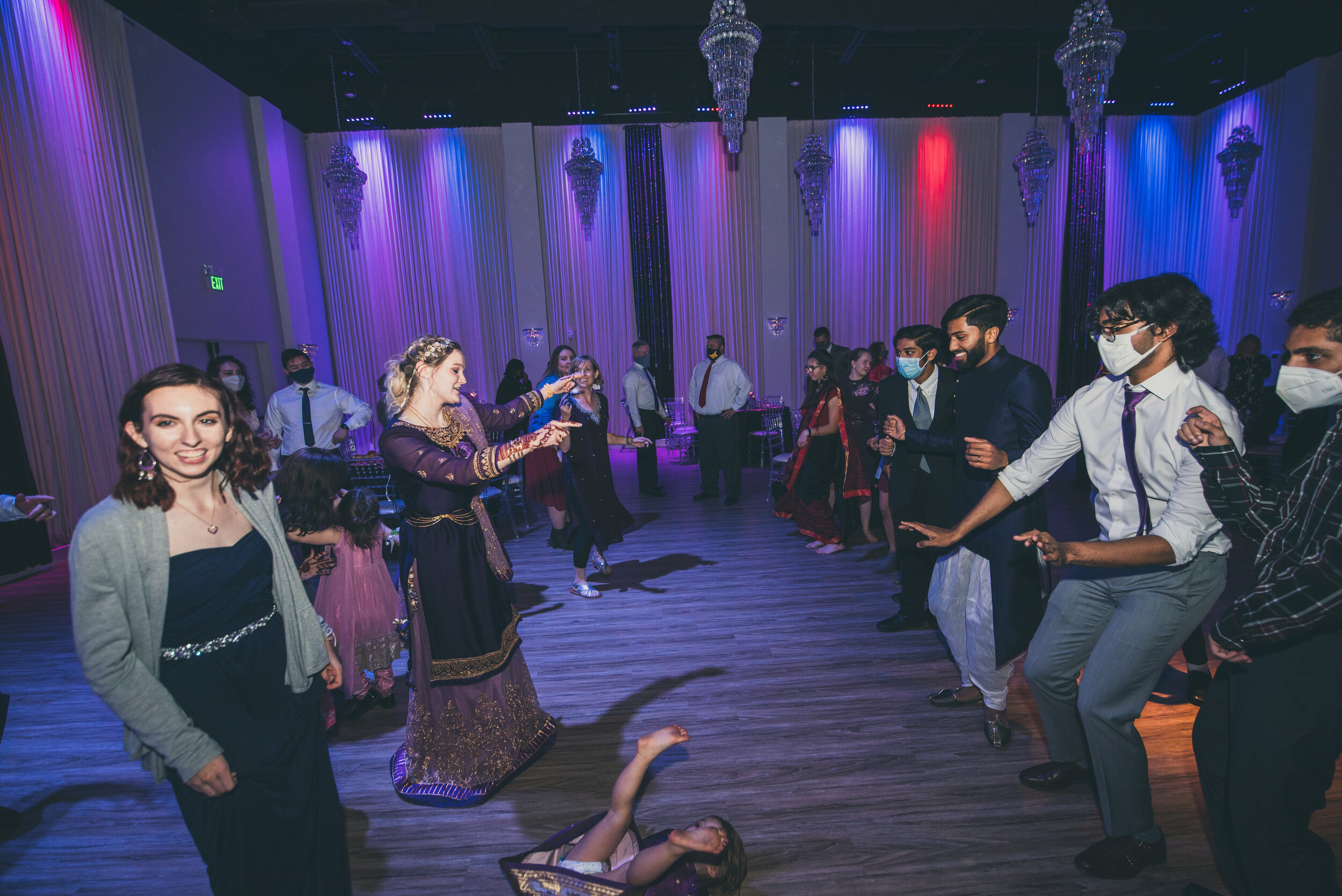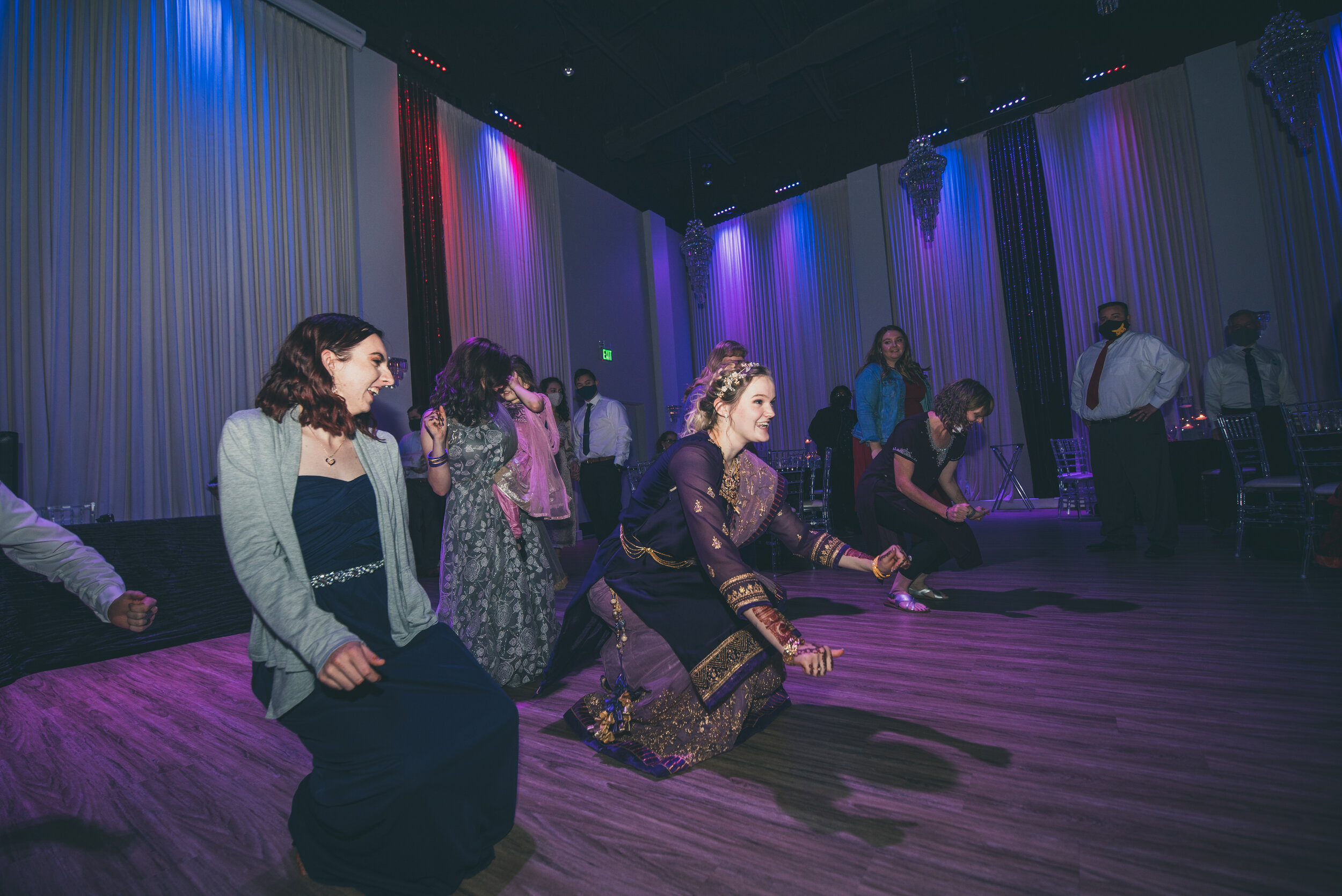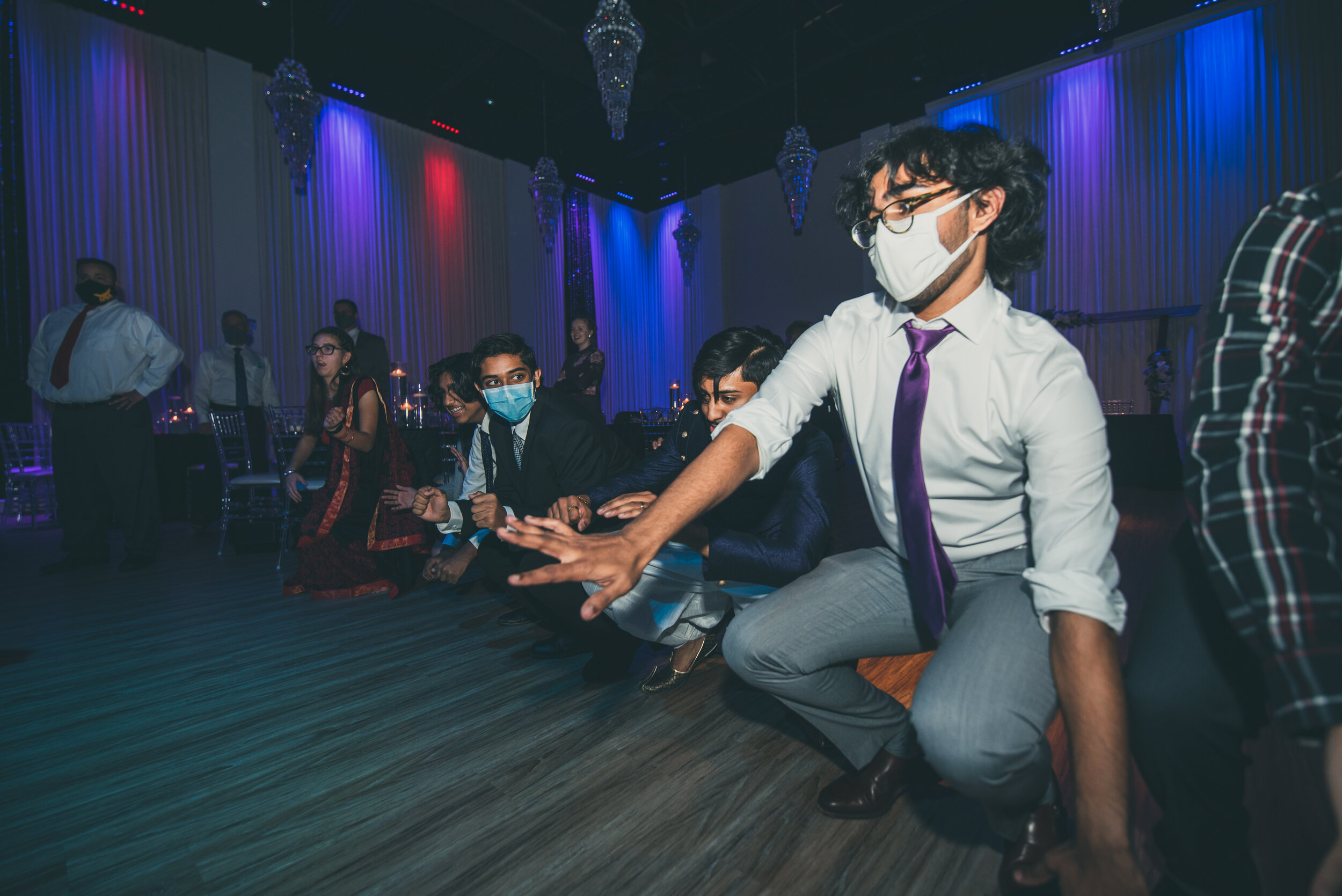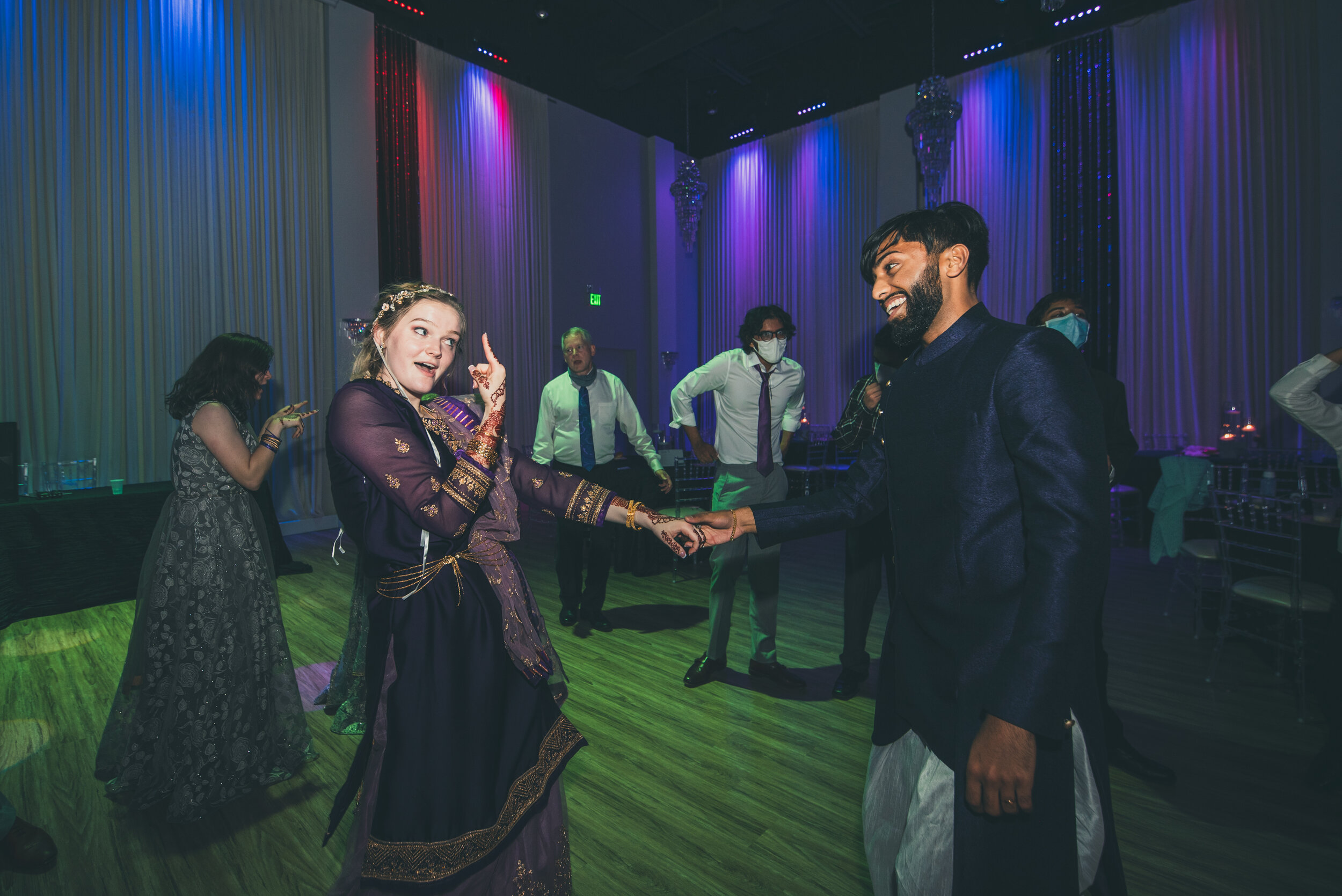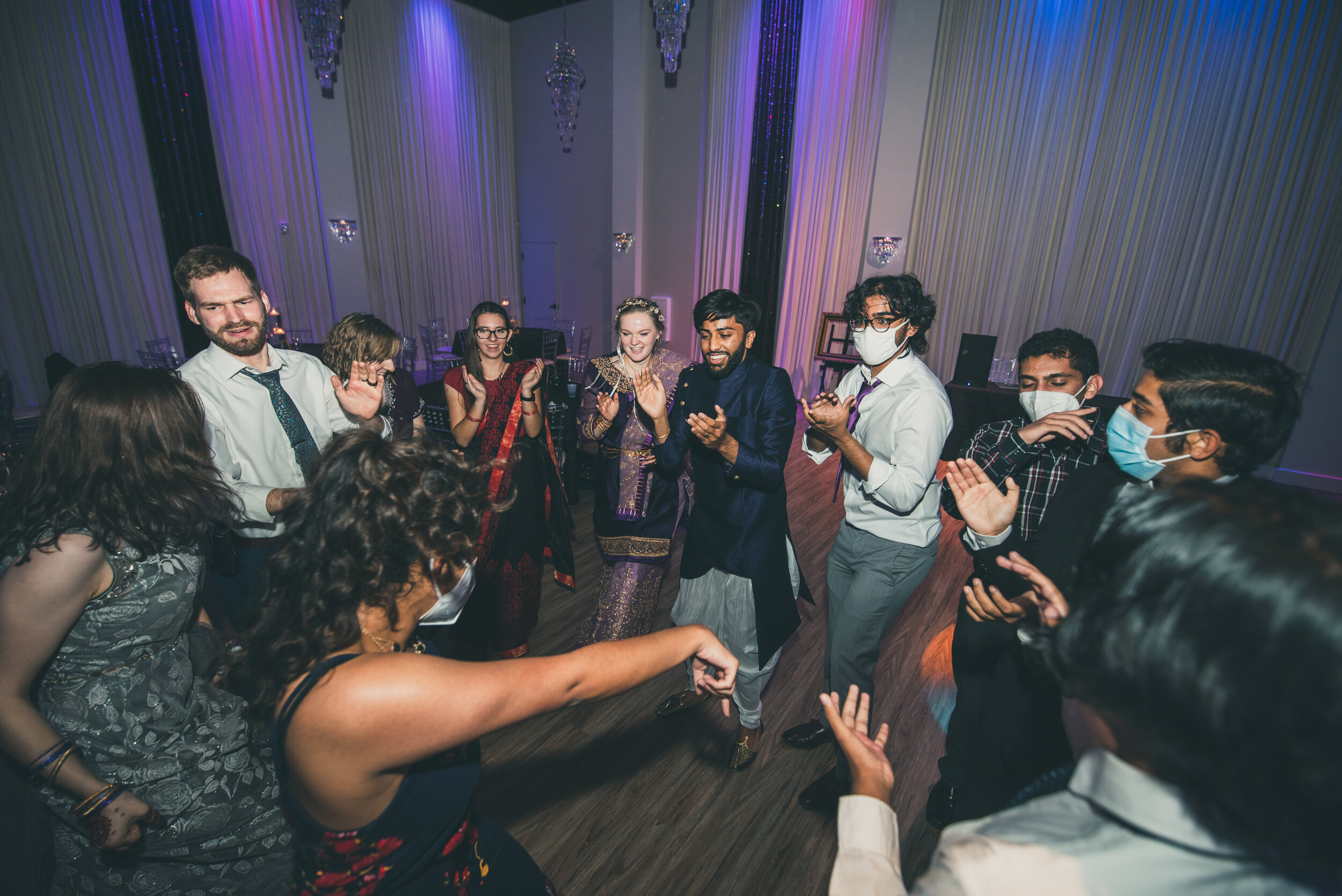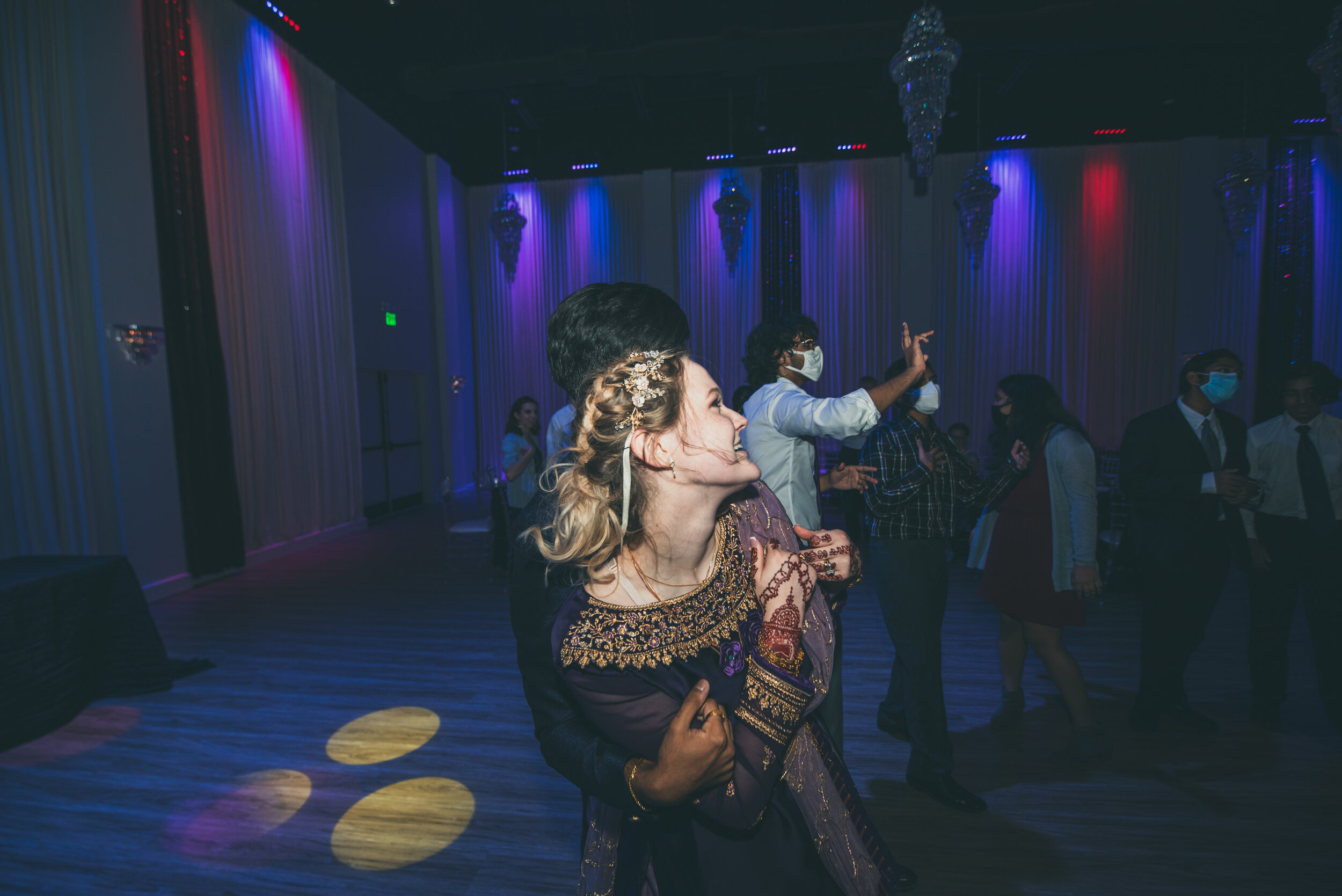A pair of high school sweethearts builds a worldview wiser than their years.
Angie + Jerry // McKinney, Texas
When Jerry's mother first visited his apartment, a year after he dropped out of college and moved away from home, she cried.
Dreading the worst for her son, who had been living on his own and making life choices she and her husband opposed, Jerry's mother was instead greeted by a clean, modern apartment located within a gated complex. Inside, she saw signs not of poverty and despair, but success and order: a tidy row of shoes lined next to the front door; a simple but well-chosen couch and dining table in the living room and kitchen; a vial of holy water and a small statue of Jesus placed on the fireplace mantle. A shock of relief overcame her, and she broke into tears.
Remembering the day, Jerry told me, "I think it was her way of accepting that I'm making my own decisions, and that it was working out.” He had been the first in his family (he has an older sister and brother) to drop out of college, a decision his parents derided. In their minds, the only path to a successful life was through college; to drop out was to write the first chapter in a story full of struggle and failure.
But Jerry disagreed, and yearned for his parents to acknowledge the differences in their upbringings. “I pointed out to my dad how his degree didn't do anything for him,” Jerry said, “and he replied, 'Yeah, but you're different.' And I was like, 'Yeah, I am different. Because I have more safety nets than you did.'"
Angie and Jerry with his parents
Jerry is a man guided more by instinct than by reflection, a fact he’s applied equally in his professional life, as when he dropped out of college, and his personal life, as when he proposed to Angie before either of them had even turned 20. But instinct does not mean whim, and behind each of his decisions has been a combination of conviction, focus, and buoyancy.
Angie, in contrast, is similar in degree but different in kind. If conviction and optimism manifest as hustle and strength in Jerry, they manifest as religious faith and reflection in Angie. Together, they make a balanced team, more mature than most couples their age while also innocent to many of the struggles they’ll face as they grow older, together.
Jerry and Angie on their wedding day
One afternoon, as I rode with Angie while she ran wedding errands, I listened as she reminisced about one of the cute things Jerry used to do for her in high school. "I only found out after we graduated," she said, "but he would come to school in the mornings listening to music, trying to find a new song he could play for me that he thought I'd like. I thought it was so sweet." I asked if the two of them, together, had "a song." A grin broke over Angie's face, as she began bobbing her head to the imaginary beat of DJ Khaled: "All I do is win, win, win no matter what!!!"
Jerry and Angie on their wedding day
Angie and Jerry are high school sweethearts. They met in choir, and became close during and after rehearsals. "We were competing in All-Region, so we'd have practices a lot," Angie said, "and since I didn't have a car yet, he drove me home. We'd sometimes just sit outside my house and talk for hours."
At first, their friendship was purely platonic; neither would describe their love as one of "first sight." "But as we talked more and more," Jerry said, starting to smirk, "I was thinking, ‘Yo, low key? She's getting a little prettier every time we talk.’" Angie looked at Jerry with a smile and side-eye of playful offense. "Not what you want to hear when you're about to get married," she said. Jerry chuckled back. "Hey, but look at you; you're gorgeous now!"
Jerry and Angie the very first time they met. “The thumbs up was the cringe joke we had going the entire night. We did it anytime things got awkward with a couple there,” Angie told me
Their friendship turned romantic in the platonically ideal way you'd expect of suburban high-school students: before school in the mornings, after choir practice in the afternoons, and on drives around the neighborhood over the weekends. Part of what connected Angie and Jerry was how neither fit in with many of their peers. "There were a lot of people who just really liked drama," Jerry said, "and so I really didn't talk to people in high school."
As their senior year drew on, both increasingly withdrew from the social groups around them. "Senior-itis hit us really hard," Angie said, "because we were both forward-thinking at that point. We were like, 'Okay, I'm ready to get out of high school. I'm done with these dumb classes that are doing nothing for me.' We wanted to move onto new things and all that comes with the future, while everyone else wanted to party and 'live it up.' And that's fine for some people, but we were both like, 'No, we don't want that.'"
Angie and Jerry on a date together in high school
Angie and Jerry at Senior prom
Angie and Jerry with her family at high school graduation
For Angie, who is the fifth of six siblings, it helped that she was already close with her large family. "It's kind of like living in a small community," she described, "where if you got mad at one person, you could just find someone else to be friendly with." Arguments were common, but so was forgiveness, and feuds rarely left deeper wounds. As Angie's father, Brant, told me, creating that sense of familial community was highly intentional, born from a desire to replicate the environment his own parents had created. "I just remember thinking how when I grew up, I'd like to have a home like that, too," he told me, "to have it serve as a kind of refuge for our kids and grandkids."
Angie (Hello Kitty shirt) with her siblings and father
Angie (striped blue shirt) with her brother and mother
For Jerry, who didn't have the same kind of family environment waiting for him at home, seclusion from his high-school peers came from a lifelong bent towards emotional independence. "I grew up a lot more like the rough kids, doing dumb stuff all the time and getting into fights," he explained to me. Jerry rarely talked to his family; he often snuck out of the house in the evenings, and the time he did spend at home was usually used by Jerry’s parents to remind him of their expectations.
Jerry (in white) with his siblings and parents
Jerry's mother and father are both immigrants from India. They met through an arranged marriage when Jerry's father, 26 years old at the time and already living in the United States, visited India to see his parents. During his visit, he decided that he wanted to get married; within a week, he had married Jerry’s mother. She stayed in India for a year while Jerry’s father returned to the US to solidify the foundations of their new life and finalize the immigration paperwork.
Jerry’s father and mother at their wedding in India
When Jerry's mother finally joined his father in the US, they began life in New York, before moving to Dallas just a few years later. "When you think of the American Dream, my dad basically pulled that off for himself, working hard and owning his own business," Jerry told me. (He runs a local business that sells commercial copiers.)
Jerry with his parents
Jerry's parents planted a deep sense of ambition and success in their son’s mind which, in practical terms, meant a career in medicine, engineering or law. But Jerry had different dreams for his life. "I definitely have the most American eyes out of my siblings," he said, sharing about the years he wanted to become a professional fighter or join the military. (His parents, and various teachers, persuaded him to drop both.)
After high school, without a clear idea of his future career, Jerry enrolled in college. He immediately wanted to drop out, and had just begun looking for jobs when a life insurance sales recruiter contacted him to see if he wanted to interview with their company. He got the job, and started in the fall of 2019
Jerry's initial goal was to make enough money to pay for a tattoo, which he guessed would cost about $1000. His bosses optimistically told him that he could make that much in a week; what they didn't say was how long it'd take to get there. For months, Jerry invested 80-100 hour weeks into learning how to sell life insurance, and subsequently making no sales.
Neither he nor his mentors at work could figure out why he was failing. "Everything I was doing was correct," Jerry told me. "I followed the script, I got referrals, I made the schedules, I had a good show ratio; I just couldn't close to save my life. I was making thousands of calls a week, and just getting bitched out constantly." He worked non-stop, and Angie, recalling those months, told me how she also felt Jerry's stress. "We weren't ever getting a date night, and I hardly ever saw him. It was rough."
Jerry’s parents worried, too, and fought with him to return to college to follow a more "stable" path. They hated seeing Jerry stray from their own expectations, but hated more seeing Jerry so stressed, overworked, and distraught. "I was crying, like, every day, and I still remember my mom and dad's faces," he told me, "how shocked they were and how bad they felt."
Eventually, Jerry did find some success. A mentor, sensing Jerry's exhaustion, told him to stop trying to sell in a manner that wasn't a natural reflection of his personality. "He told me, ‘Dude, chill out. You’re not naturally energetic, so stop doing that and just be yourself.’" Jerry recalled. The advice worked. Jerry, whose natural personality offers friendliness cut with a sober, practical form of authenticity, found that being himself was both less tiring and a better fit for talking about the somber topics of life insurance and death.
Jerry’s improvement at work also helped improve his relationship with his parents. "At least in the Indian community, money is honestly really important,” Jerry told me. “You throw money at someone's face, and they won't talk crap to you again. So when I started showing my checks to my parents, that's when they were kind of like, 'Oh,' and couldn't say much more."
Jerry on the wedding day
Jerry moved out of his parents' house in August 2020, while Angie still lived with her parents and younger brother before the wedding; our time together was spent shuffling between these two homes.
In Jerry's apartment, the mood was withdrawn; few decorations yet hung around the home, and a handful of Angie's unopened moving boxes made evidence that this was a physical home without, yet, an emotional attachment, filled with the anticipation of memories to be made rather than the nostalgia of memories already made.
But in Angie's childhood home, the atmosphere felt unfurled, of a space well lived-in, with furniture that placed comfort over aesthetics, family portraits that signaled intimacy, and biblical artwork that showed their faith. In the backyard was a small swimming pool surrounded by a greenhouse-dense assortment of peppers and berries blooming one last time before the arrival of winter in late November. (The wedding was on November 13th, 2020.)
Pictures of Angie and her family hanging in their home
I often hitched a ride to the home with Jerry, whom I noticed appeared noticeably at-ease inside it. One afternoon, after taking off his shoes and leaving them near the front door, Jerry fell into one of the couches in the living room. He swiped at his phone for a few minutes before falling asleep for a nap. Across from him in the kitchen, Angie's mother made ice cream cakes for the wedding. At the dining room table, Angie taught a lesson to students over Zoom for her job in education.
Evening arrived a few hours later, along with Angie's older siblings, who flew in from Utah. Soon, the quiet home filled with the sounds of reunion and excitement. Angie and her sisters painted their nails together; her brothers raced to see who could assemble a pair of lego sets the fastest; and her nieces and nephews shot small nerf guns at each other across the living room.
Angie and Jerry with their family an evening before the wedding
For dinner, Angie's mother ordered takeout from Golden Chick, a local fried chicken chain. As we all crowded around the dining room table, Angie's father led the family in a prayer. "Our Greatest Heavenly Father, we thank You very much for our many blessings. Thank you so much that everyone's been able to travel in safely. We have so many here to rejoice with, and thank You for thine great blessings upon us. Thank Thee also for this food, and we ask Thee to bless it so that it may strengthen and nourish our bodies. Please be with us throughout this evening."
He paused for a few seconds, deciding whether to say more, before concluding, simply, "So grateful. We say this in Jesus Christ's name, Amen."
Angie’s family having dinner one evening
Faith has always been important to Angie and her family. As a child, she remembers the act of going to church multiple times each week as more ritual than intention. "It wasn't really forced upon us," she noted. "It was more just part of our lives."
Angie with her father at her baptism
She told me about three lessons she drew from her faith, all of which she had learned more recently during a period of doubting:
One, that everyone could benefit from some kind of faith. "I cannot explain the science behind it," she said, "but having something you can believe in when you have those really rough days, knowing that they won't last forever. That longer perspective is really important. I may change; I may make dumb choices. But God loves me. That's unchanging. And that's amazing to me."
Angie on the wedding day
Two, that faith, as important as it is, doesn't come ahead of family. "In our church, family is the most emphasized thing," Angie told me, "because that's central to Heavenly Father's plan for us. And I know that even if I were to just completely walk away from the church, my family would still love me."
Angie and Jerry with her family
Three, that while Angie doesn't believe in forcing her own religion upon others, she still finds comfort in being able to talk about it and be heard. She told me, "I just struggled and struggled for so long with my faith in high school, thinking, 'I've grown up with this my whole life, but why are there things that I still don't know and understand?'"
Her confusion felt recursive, a confusion about the confusion, about why she had never questioned her faith before or paused to separate her own beliefs from those she inherited. "I was learning about all these terrible things happening in the world, about these other people's lives that I'd been so naive to. I was on a high horse about my religion, and I realized, ‘Wait… Why is God letting all these things happen to all these other people?’"
Angie didn't usually find clear answers to all her questions, but in Jerry, she at least found a willingness to listen. "Even when we didn't agree on things, he'd still ask about my views, and the fact that I could talk about religion with him, and that he'd even help me to clarify my thoughts. That was such a big point for me in our relationship."
Jerry and Angie on their wedding day
Jerry recently converted to the LDS church, not because Angie asked him to, but certainly because she exposed him to its ideas. His conversion came a few months after he began regularly meeting with a pair of the Church's missionaries. It was an about-face from his family's devoutly Catholic heritage.
Although India is predominantly Hindu (80% according to its most recent census) a small minority of the population, primarily in the far eastern regions of the country, practices Christianity. The religion was first introduced to India soon after Jesus' death, when Thomas, one of Jesus' 12 disciples in the New Testament, traveled there and began preaching throughout the region. A long and complicated history of Catholic missions, expansions, and contractions in the ensuing two millennia have lead to the 20 million practicing Catholics in present-day India.
Jerry's own family comes from this tradition. His uncle, in fact, is a Cardinal, and one of 200 other individuals who could theoretically become the next Pope. But, as with his divergent views on school, Jerry never took to his parents' Catholicism, and often got into trouble at church when he asked "inappropriate" questions.
A portrait hanging in Jerry’s parents’ home of his uncle, who is a Cardinal
"I think where this all started was when I was a little kid, probably five or six," he told me. "My family would do a prayer before dinner, and a lot of the time I'd get up in the middle of it and go to the bathroom. My mom was mad at me for doing that, so one day, as I opened the door after washing my hands, my mom just told me, 'There's a demon behind you! '"
Jerry freaked out; he looked back at the bathroom mirror, terrified, before sprinting back to the dinner table. "After that, I think I saw the way religion was being used as a threat," Jerry said, recounting another time when an altar boy threatened Jerry by saying he was going to hell for making a mistake during service.
He also began to find contradictions between Catholic doctrine and his own beliefs. Once in bible study, a youth leader taught that same-sex couples shouldn't have kids because they “can’t love them the same way a heterosexual couple can.” Jerry had responded to the youth leader with blithe sarcasm by referencing another youth leader’s traumatic childhood. “Oh yeah, so you know, the other youth leader's dad who beat him every day for 10 years definitely had a whole lot more love for him than good old Bob and James did with their kid.”
Despite his early incredulity towards Catholicism, Jerry was always still respectful of other religions. His early conversations with the Missionaries from Angie's church were cordial and cautious; he once even knew to correct himself from saying "Mormon" to using the church's full name, The Church of Jesus Christ of Latter-day Saints. "The missionaries were surprised," Jerry told me, "and replied that it was okay, because most people didn't even know that the church doesn't use Mormon anymore, let alone correct themselves."
Angie and Jerry with three missionaries
Jerry's initial meetings with the Missionaries were filled with a rugged share of skepticism; his experiences with Catholicism obviously gave him pause when approaching other religions. But, over the next three months, as he continued to meet with the Missionaries, Jerry felt more and more that they wielded religion as a tool for love, not fear. "It came a lot more from a place of understanding, trying to understand other people,” he told me, “and everything they were saying about the LDS Church just made so much sense to me.”
He recalled when he once became unexpectedly emotional. "I was doing the Missionary homework late one night," Jerry said, "and it was a conversion story of Bill Carpenter, who was a Catholic priest before he converted. I couldn't hold back my tears, and had chills constantly throughout the whole thing." He'd been brushing aside the Missionaries' encouragement to be baptized, but after listening to that story, Jerry asked if he could be baptized that weekend: September 12th, 2020, just a few weeks before the wedding.
Jerry with his missionaries on his baptism
At first, Jerry didn't tell his family about his conversion. "I kind of mentioned something about the Church to my family to test the waters," he said, "and I got a negative reaction, so I was like, ‘Okay, cool, I guess I'll tell them about it after the wedding.’”
If it were solely their choice, Jerry and Angie likely wouldn't have performed a Catholic ceremony. But when Jerry's family insisted upon it, he and Angie ultimately felt it important to honor their request. "Whether doing the Catholic ceremony is a political thing because of his uncle's place in the Catholic church, or a personal thing, it's still a big deal for his family, and so we want to respect that," Angie told me.
Angie and Jerry during their Catholic wedding ceremony
"I've always wanted Jerry's culture to be a part of our wedding as much as possible, and this is one big way to do that." The ceremony, she said, would have slight modifications since she isn’t Catholic, where items being blessed and placed on Jerry would simply be placed on Angie without a blessing.
Angie and Jerry during their Catholic wedding ceremony
"It's funny," Angie continued, "because in many ways, the Church of Jesus Christ of Latter-day Saints and the Catholic church have a lot of very similar teachings." She noted how, to her, both religions taught the same lessons for treating others and carrying oneself through the world. "But where things are different, they're very, very different," she added, noting the LDS church's belief that, until God appeared to Joseph Smith in 1820, the principles of Christian gospel were corrupted after Jesus and his apostles’ deaths, while Catholicism believed that it was never broken and continued through the priesthood from Jesus all the way to the present day.
During their pre-marital meetings with the priest at Jerry's family's church, Angie and Jerry were asked whether they could commit to raising their kids Catholic. They both said yes, which they told me wasn't just lip service. The important teachings—how to worship God, conduct oneself, and treat others—were functionally the same to them.
How Jerry and Angie would respect their family's faiths on their wedding day was the most emotionally tense task they had to consider. But as for any wedding, they had other considerations, too. Each of their families saw the wedding as a unique departure from tradition. For Jerry's family, the wedding would be far smaller; his sister's wedding, held just a few months earlier, had cost over $30,000. (His and Angie's was under $10,000.) For Angie's family, the wedding would be far larger; her siblings' weddings had always cost less than a thousand dollars.
Angie is both the fifth oldest of six children and the fifth of six to be married. Her family had grown accustomed to weddings and the patterns that lead to them, and anticipated Angie’s marrying Jerry well before she realized it herself. "They knew basically every step," she told me. "They were like, 'Yeah, you like him, right?' Then, 'Yeah, you're gonna date each other, right?' Then, 'Yeah, you're gonna get married, right?'"
Angie with her five siblings
Whether because of her older siblings' examples or because of the LDS Church's encouraging young marriage, Angie was the first to see her and Jerry's relationship through a long-term lens. "Legit, a month in, I'm over here, like, 'Wow, I think I really, really like this man,' while he's over here thinking 'Yeah, I'm probably gonna break up with this girl in a month.'" Angie said this without anger, fear, or sadness; in fact, her face brightened with a large smile, the issue clearly in the past and without power to influence her and Jerry's affection today.
Angie and Jerry in high school
I asked Jerry for clarification. "When we first started dating, we were having all these issues," he told me, "and I was like, ‘Man, I don't really know if I vibe with her, or if we're compatible like that.’ But I also thought back on the fact that my parents were in an arranged marriage, who'd barely met one another before they were married." Seeing his parent's relationship made it clear that work, not purity of love, was the key to a successful marriage. Their example gave him reason to pause and think whether his and Angie's early issues with communication were actual blockades or simply a normal part of being in a relationship with someone.
He shared a particularly concrete example of how he considered a long-term relationship with Angie. "The way I see it, when you're with a girl long-term, and thinking about marriage and a future and a family, you need to be ready for your daughter to be exactly like her,” Jerry said. “And as I kept talking to her, the more I was like, 'Yeah, if we had a daughter someday, I'd be okay with that.'"
"You don't have to start off with pure love to make something good come out of it," Jerry mused.
Angie and Jerry’s wedding bands
Where most people graduate from high school and begin their adult lives largely on their own, Angie and Jerry have done so together, an experience from which they've found much of the "good" Jerry talked about. Beth, Angie's older sister and best friend, told me, "They've kind of just grown together through the whole relationship. When they realized they might actually want to get married, they had to talk about how they'd raise their kids, and along that road, they both became more introspective, and began solidifying their beliefs."
Beth having her makeup done by Angie
Each influenced the others' personalities. Jerry's cousin, Jaibin, told me, "There was always a part of Jerry that was softer and kinder, but it hadn't really come out in the past, and one of his biggest personality changes has been how Angie brings that out. She's helped smooth him out a lot."
Jaibin continued. "I remember my own relationship with Jerry changing one Easter. We were eating together, and he was opening up about himself and his feelings. It was really cool to see that, because he'd always been kind of closed off, very straightforward. I think a lot of that correlates with Angie's personality." Angie, he said, was good at drawing out the lighter, wholesome energy within Jerry, adding with a small laugh, "He's surprisingly good around kids."
Jerry and Angie with Jaibin and his family
If Angie has smoothed Jerry with her lighter energy and ability to connect with people, then Jerry has sharpened Angie with his ambition and impatience for inanity. A mentor of his from work named John described it best to me. "I've learned, in dealing with so many people, when someone is just talking to their own reflection instead of talking to me," John told me. "Jerry never does that. He actually speaks to you, and he treats life like water rolling off a duck's back. That's not something most people his age have, that kind of wisdom that generally only comes with age."
Jerry and Angie also told me about how they functioned well as a pair, pointing out stresses the other was blind to and arguing fairly with one another. "I think I realized that I could be with Jerry for the rest of my life when I saw that we worked really well together, and that we constantly helped each other aim to improve in whatever way possible," Angie told me. "Exercising, communicating, or just being a better person. Even when we argued, we just wanted each other to improve and to see each other succeed."
Jerry and Angie on their wedding day
I asked what they felt differed between their view of marriage and that of their peers. "Within our Church, I don't think it's about being pressured to get married young," Angie said. "It's just different from wider culture, which pressures you to not get married at all." I asked Brant, her father, a similar question "I don't have a problem with marriage being younger or older," he said. "When it's right, it's right. But I do firmly feel now that the world has some pretty crazy expectations for marriage, that everything is going to be a honeymoon phase. That is so crazy, ridiculous and unrealistic."
He shared a bit about his relationship with Angie's mother. "We've gone through times when it was oh so romantic. But there are also times when you just feel like you're roommates. And, frankly, not very good roommates. But if you move forward with the faith that the good will come back again, just as the bad comes back, and you both put effort into it, working towards that good, you find that it always does come back."
Of all the romantic moments Angie and Jerry have shared together, their proposal was perhaps the least so, and, as Jerry had already done so many times before, he admitted to mostly trusting instinct.
Jerry and Angie had gotten takeout and driven to White Rock Lake, a water reservoir northeast of Dallas surrounded by grassy parks. As they ate, Angie began telling Jerry about her day, focusing on one particularly dramatic co-worker who'd been talking about flat-earth theories. "I was like, 'Baby, listen to this, because it's crazy.' And I was just going on and on and on."
After half an hour, Jerry, who had long finished his food and was patiently waiting for a way to turn the conversation in a more romantic direction, gave up. He stood up, knelt to the ground, pulled out the ring, and asked, "Will you marry me?" Angie, caught off guard, remained silent. Jerry repeated the question, and Angie, finally realizing what he was doing, said yes.
Angie and Jerry in his car after he proposed
I laughed along with them at the absurdity of the story. Jerry commented, "Dude, she started talking about her coworker, and I was like ‘Okay, sure,’ and then I sat there, waiting for her to shut up. And when I kinda knew she wouldn't, I just proposed." Angie chuckled. "Honestly, he was probably right," she said.
The proposal itself, rather than how it was done, was more important to both of them anyway. "In my head, I'd already married her, and didn't feel like I needed a ring to symbolize that. But I knew she wanted that security." In the moment, both were genuinely happy to be engaged. But they also shared about some of their doubts, too, something I've rarely heard other couples express quite as openly.
"We'd been going through a rough patch right before," Jerry told me, "and after I proposed, it just went away, and I was like, ‘What? How did those problems just go away? Would they come back? ’" Angie explained the situation to me. "I'd given him an ultimatum when he was working these crazy hours: it's either work, or me. And I'd done that because I'd kept talking to him about needing to prioritize me over work, not just now, but later, too, when we had a family. And I didn't think it clicked in his mind." Jerry recalled the incident from his perspective, too. "She told me that, and I stopped, canceled all of my appointments, and drove straight to her. I was honestly mad; it felt like a breach of trust in some ways, to propose something without giving a chance to talk about it."
Angie told me that seeing Jerry come straight to her after she made the ultimatum was the reassurance she didn't know she needed. "When he actually did come, I was like, ‘Oh.. you really do care about me.’ It had been tough to see that he did, because every other time, he'd picked work over me, and he wasn't being honest with himself that that's what he was doing." A similar feeling, they both reflected, was present after the engagement; Jerry proposing signaled to Angie that she didn't need to feel insecure anymore about Jerry's commitment to her.
I admit that I felt somewhat nervous as they told me about this story; proposals rarely solve problems in the long-term, even if they feel euphoric in the short-term. I wondered aloud if Jerry could admit this too. "Yeah, for a few months after, I was kind of worried about it," he said. "I wasn't sure I proposed for the right reasons, and I absolutely didn't want a divorce no matter what. If these were the issues we were going through before marriage, how would it be after?" The following months, though, gave him confidence in the decision. Doubt would only creep back in after the wedding.
Work does not often play an important role in a couple's story; I strive to make sure to represent what's actually important to someone when I write about them, and for many people, their jobs are simply a means to support the more important parts of life, like family or leisure. But work, particularly Jerry's, has played a more fundamental role in his and Angie's relationship than in most other relationships I’ve written about.
Jerry remembers the way one of his clients once asked him about his work: "Don't take this the wrong way, but all you do is talk about death all day, huh?" Talking about life insurance is like holding a piece of ice: at first, it feels intensely dry, stiff, and cold. But after just a bit of time, it melts and turns to liquid, fluid and able to fill any space around it. To think about life insurance is to think about the possibility of your future death; to think about your future death is to think about your present life; and suddenly, you are no longer thinking about the specifics of different policies or coverages, but the meaning of life itself.
Jerry noted the emotional contradictions in his work. "People let me into their homes, get comfortable with me, talk about death with me,” he said. “But they also forget my name.” His clients come from all kinds of backgrounds; one story that stuck out to Jerry was that of a single Black mother. "I haven't met anyone else who was crying as hard," he said. "She kept repeating the same phrase, talking about her having kids: 'I can't take back what I did.' And I could tell she loves them, but that she also had a sense of regret in her head for having them too, with a guy who didn't stay in her life." Talking about death, he learned, was a proxy for talking about the most meaningful, or fearful, parts of life.
Speaking about his work, Jerry held a tone of nuance and confidence similar to others passionate about and good at their work, whether a successful artist or a well-known CEO. "Photography is your art," he said to me. "Sales, talking with people; that's mine. I hate it when people ask what tricks I use, because I'm like, it's not a fun trick. It's a conversation, a process."
When I asked him to elaborate further, he told me that what felt like "tricks" were simply having a keen sense of observation and an ability to listen to and guide conversations in his chosen direction. A script helped, he said, but not more than an ability to build rapport with people, often through small but impactful ways. "I sat down in front of an Indian couple once, and was giving an example and used the name Raj," he told me. "And they just all immediately lit up, because they probably could now actually picture someone. I've never gotten referrals like I did from that conversation."
One evening, he walked me through an abridged version of his pitch, a controlled, precise script that began light on emotion and heavy on upfront no-strings-attached benefits. Gently but steadily, he transitioned to the topic of death, priming me to start thinking about a subject most people actively avoid thinking about. Eventually, at the very end, he laid out specifics of his company's policies and rates.
Though he said he didn't like the comparison, as he spoke, I couldn't help but feel like a magician was showing me the methods behind their most famous ruse. Just as a good magic trick can still be entertaining even when you know its secrets, good salesmanship can still take you on an emotional journey even when you already know its destination.
I thought of my own process for talking to couples about this project; how I'd mentally created a "script" for myself over dozens of calls that had been refined to navigate most effectively between a couple's emotions—excitement and skepticism are most common—and how I learned something new from each call. When I shared this, Jerry picked up on the similarities immediately. "You're selling, too," he said. "Not a product necessarily, but yourself. Your process, and trust."
Jerry FaceTiming with Angie at his office
While Angie's own future career plans aren't quite as solidified as Jerry's, she still feels a strong direction: teaching. "Jerry and I used to teach swim lessons together, and he always told me I was really good at teaching,” she said to me. Before the wedding, she took online classes part-time at a local community college, and worked part-time as a special-needs teacher. She told me about the challenges of the latter. "A lot of the kids are nonverbal, and need a lot of help with navigating life, and having to teach online just makes it even harder."
Despite their youth (Angie just turned 20 right before the wedding, and Jerry not long before that) both feel well on their way towards the future they hope to build together. Jerry's consistent, healthy paychecks keep both of them financially secure, and Jerry's parents, whose three children have all left the house, offered to give their large, lovely home in Garland to Jerry and Angie if they took out a mortgage for them to live in a smaller, cheaper home instead.
Jerry has always found it natural to dream about the future through the lens of his finances. He said, without any hesitation, that being wealthy was a big goal for him, and that reaching progressively higher levels of affluence, and the security that brings, drove him to spend his youth working as hard as possible. "I want to be able to make six figures earlier than later; to make as much as I can, and work harder sooner rather than later," he said, "so that Angie and I and our future family can be in a good place earlier and I can spend more time with them."
Angie doesn't feel quite the same way. "He was talking about money with some of my family one day, and it clearly wasn't awkward for him, since those are normal conversations in his family—what you want to be, what you want to make—but in my family, we don't really talk about that kind of stuff, and I had to kinda nudge him off of the topic."
The morning of Angie and Jerry's wedding began with a visually chaotic array of people, makeup, hair straighteners, food wrappers, dresses, and shoes filling the small living room of Angie's childhood home. But despite the visual chaos, the room felt emotionally orderly. The men wrapped themselves into suits and ties, the women helped each other with their hair and makeup, and even the kids sat (mostly) patiently as their parents helped them into their own small suits and dresses and light dustings of makeup or twirls of their hair. Angie laughed easily; if she was nervous, she didn't show it.
Angie with her family at home getting ready for the wedding
(Angie's oldest sister, Jessica, hand-made sets of Sari and Lahenga, traditional Indian formal wear, from colorful sheaths of fabric she'd bought online after asking for permission from Jerry's family to wear them at the wedding. The previous day, Angie had also gone with her sisters to get henna done by @hennahouseasma. Hers included a special design: a graduation cap, to signify her and Jerry being high school sweethearts.)
Angie and her siblings having henna done before the wedding
Jerry and Angie held two ceremonies: one in Angie's LDS church and conducted by her Bishop, and one in Jerry's parents' Catholic church conducted by a trio of priests. Their LDS ceremony, held in the church's high-ceilinged gym with thinly carpeted blue floors, and which only lasted 15 minutes after a short blessing by the Bishop and the exchange of rings and vows, contrasted with their Catholic ceremony, held in a low-ceilinged church on red carpet, and which lasted an hour and a half to include rites, prayers, blessings, chants, and a communion.
Photos from Angie and Jerry’s LDS ceremony
Photos from Angie and Jerry’s Catholic ceremony
We visited Jerry's parent's home after both ceremonies so his family could physically and symbolically welcome Angie and her family. They had prepared two nice chairs in the living room for Jerry and Angie to sit on, and everyone else crowded on couches or in the kitchen enjoying tea and some snacks, like samosas and puff pastries.
Angie, as a guest and in her wedding dress, sat with perfect posture, while Jerry, in his own childhood home and wearing a suit similar to what he often wore for work, slumped into his own chair next to Angie. (He sat up after I pointed out that the pictures would probably look better if he didn't slump.)
Angie, Jerry, and their families at Jerry’s home
After chatting and taking group pictures for an hour, Angie's family took their leave to help decorate and prepare the reception venue. Angie, Jerry and I left a few minutes later to fit in a short portrait session, too.
Before they entered the reception, Jerry and Angie changed into traditional Indian clothing, Angie wearing a purple Lahenga and Jerry wearing a matching Sherwani with traditional pointed shoes. When Beware of The Boys, a twangy, upbeat song by Punjabi MC, began playing, the doors to the banquet hall swung open and Jerry and Angie bounded in. They shared in a first dance to Brett Young's In Case You Didn't Know, before Angie danced with her father.
Jerry and Angie’s entrance and first dances
After a buffet-style dinner, Angie's brother, Ken, began playing a mix of both American songs, which would bring Angie's side of the family to the dance floor, and Indian songs, which would bring Jerry’s family to dance in a manner that Angie described cheerily as "so Bollywood," Jerry and Angie spinning with one another as people formed circles around them, or mirroring one another in long line dances.
It was the first wedding I'd been to in months that had dancing, and though I have to admit a healthy amount of anxiety about the pandemic’s persistent danger, I also felt an equal measure of exuberance, like when bright and streaky beams of sunlight break through a thick ceiling of rainclouds to remind you, however temporary, of the feeling of warmth.
Angie and Jerry dancing at their wedding reception
Young in Portrait of a Young Couple is not about someone's age, but about the spirit of youthful optimism that a couple experiences alongside their decision to be married. But I recognize that that optimism can change; in years, yes, but also in mere weeks or months.
As with all stories I write for this project, it takes quite a while, generally 3-6 months, before I can send the first draft of a couple’s story to them for review and fact-checking. By the time I sent what was written above to Angie and Jerry, it was already June of 2021, a full half year after their wedding, during which time their young lives had changed dramatically.
The biggest news: the two were now expecting a son, due sometime in November 2021, right around their anniversary. "The first trimester was horrible," Angie winced. "There was a period I couldn't hold down any food or water without throwing it up. Even the taste of toothpaste on my tongue would make me feel terrible." When we talked, Angie was firmly in the second trimester, and thankfully having a much better time.
Angie and Jerry celebrating their pregnancy
Of equally interesting news to me was Angie and Jerry's reaction to the story. "It's kinda funny reading it now, because, dude, it feels like we're completely different people," Jerry said to me. "The emphasis on work; I'm totally opposite that now." He recently left the life insurance agency he worked at at the time of the wedding due to a toxic environment, and had also adjusted his view of work and success after he and Angie found out they were pregnant. "I'm trying to find balance now with work," he said, "because I already know it's gonna be hard to whenever we have our son. And I feel now that, clearly, money isn't everything."
Jerry and Angie sometime after their wedding, around Christmas 2020
"It's crazy how quickly life changes," he said with an air of fascination. "But it's also cool to have it documented, because that really was how we were right before we got married. Our kids are gonna be like, 'Wait, you talked like that? You thought that way?'"
I chuckled, and noted my appreciation for their maturity to realize their own youth and, in ways, relative immaturity being married so young and so quickly. "I think my favorite part reading the story," Angie added, a huge smile spreading across her face, "was realizing, wow, you can tell that we're the youngest couple. Like, in comparison to some of your other stories? Yeah, we are children."
Angie and Jerry on a date sometime after their wedding
I asked what their relationship had been like since being married; for many couples, particularly those who were together for many years beforehand, the institution of marriage had little to no effect on their relationship. Angie and Jerry were notably different. "I think expectations were a big source of conflict," Angie shared. "I felt so distraught about when Jerry and I were fighting, because I was thinking, 'I married him because I love him and he's my best friend, but why does it not feel that way? I hate fighting with him, so why are we fighting so much?' And my dad's answer was that I needed to stop trying to change Jerry, and that I needed to just love him first. And I thought, oh shoot, that's true. Because everything that had been annoying me were just things I did differently than him."
"We both started going to therapy for a bit for anxiety and stress," Angie said, "and then we went together a few times, because we were just constantly fighting. There was a point where it hit and we were like, ‘Oh my gosh, are we headed towards divorce?’"
I was struck by the levity with which they shared this with me; even while discussing what should have been a fairly heavy topic, the tone of our conversation still felt upbeat and undimmed. Their youth, it seemed to me, lent a sort of permission to feel inexperienced, a pass for not always knowing how to handle their emotions. "I don't think there was much of a honeymoon period, to be honest," Jerry said. "Our honeymoon period was while we were dating. And now, there are both rough patches, and also moments where it's just awesome."
Angie and Jerry on a trip together in 2021
They shared about overcoming issues—defining personal space, merging lifestyles, addressing whether they actually still liked each other, even though they loved each other—that are familiar to any couple learning to build a life together. Some of those lessons may feel obvious, and strange not to have been resolved before the wedding. But marriage is unique for every couple. The issues which build strength in one relationship may be the cause for cracks in another.
That they’ve only just begun to confront some of these ideas shows the reality of Angie and Jerry’s youth and, perhaps, naivety. But I also thought back to something Jerry had told me many months before, when he’d been reflecting on the success of his parents’ arranged marriage, and on the viability of his and Angie’s relationship: work, not purity of love, would build a lasting marriage. And if their first six months together were any sign of the next six, and then the sixty years after that, it was that they were willing, and happy, to put in that work.

